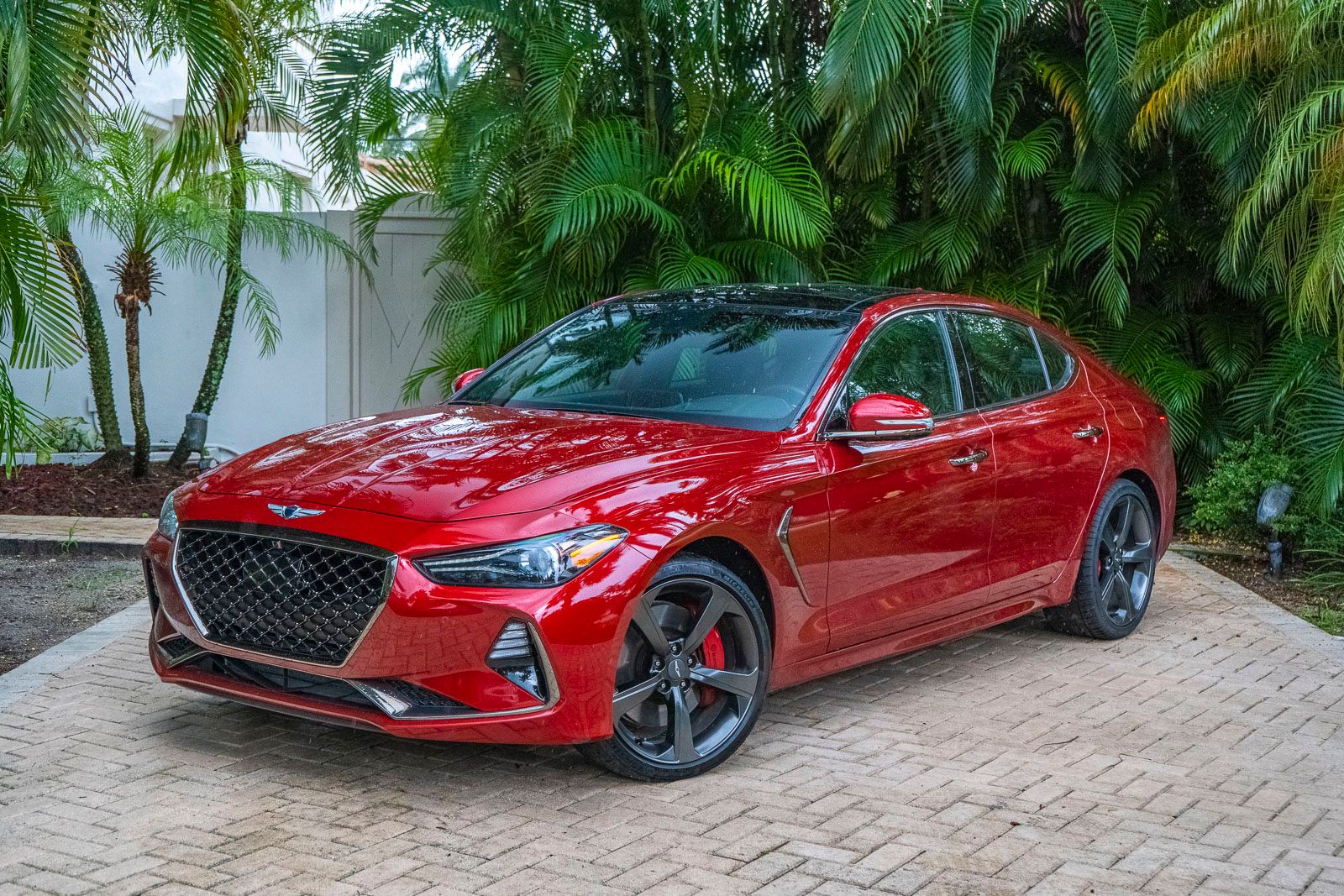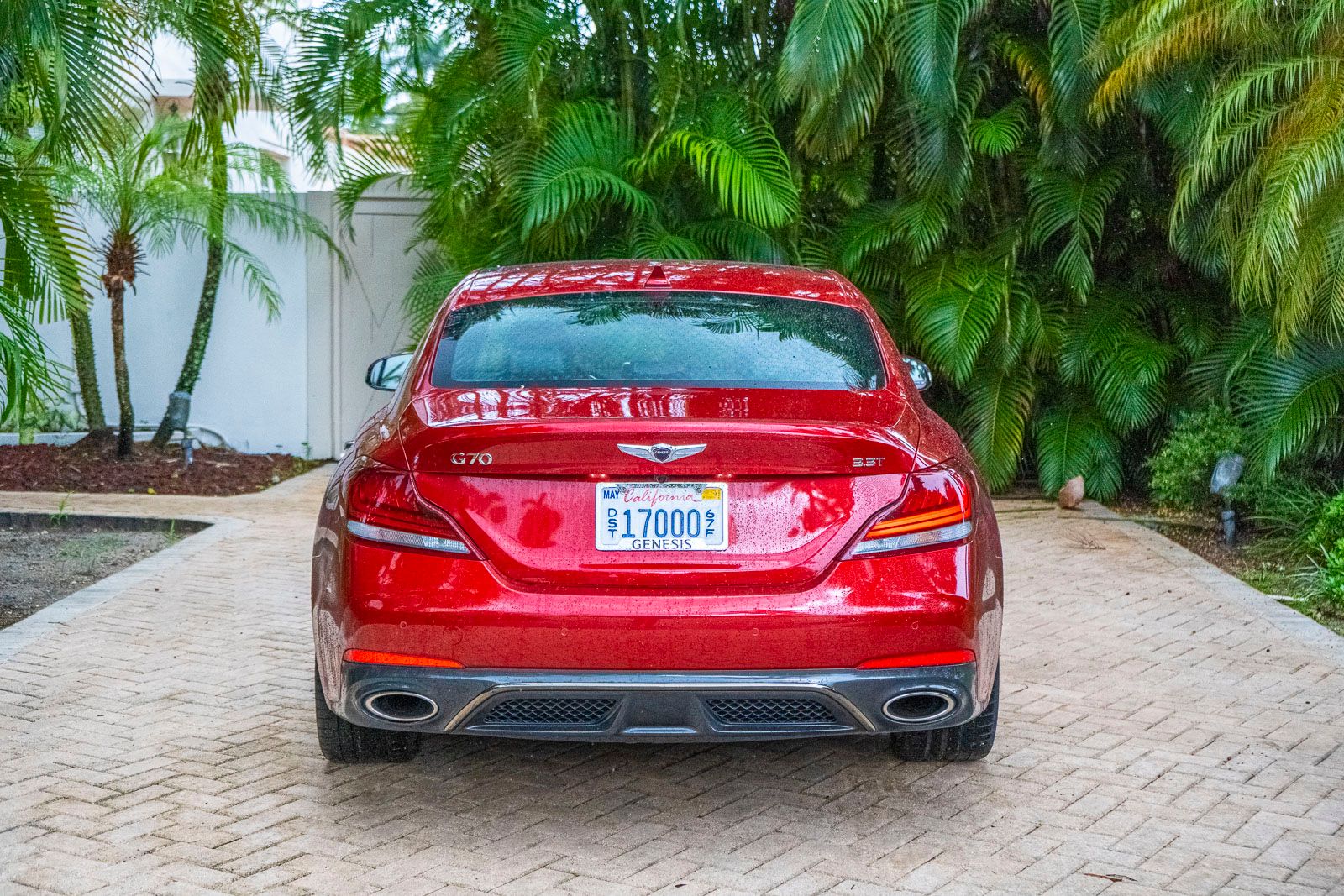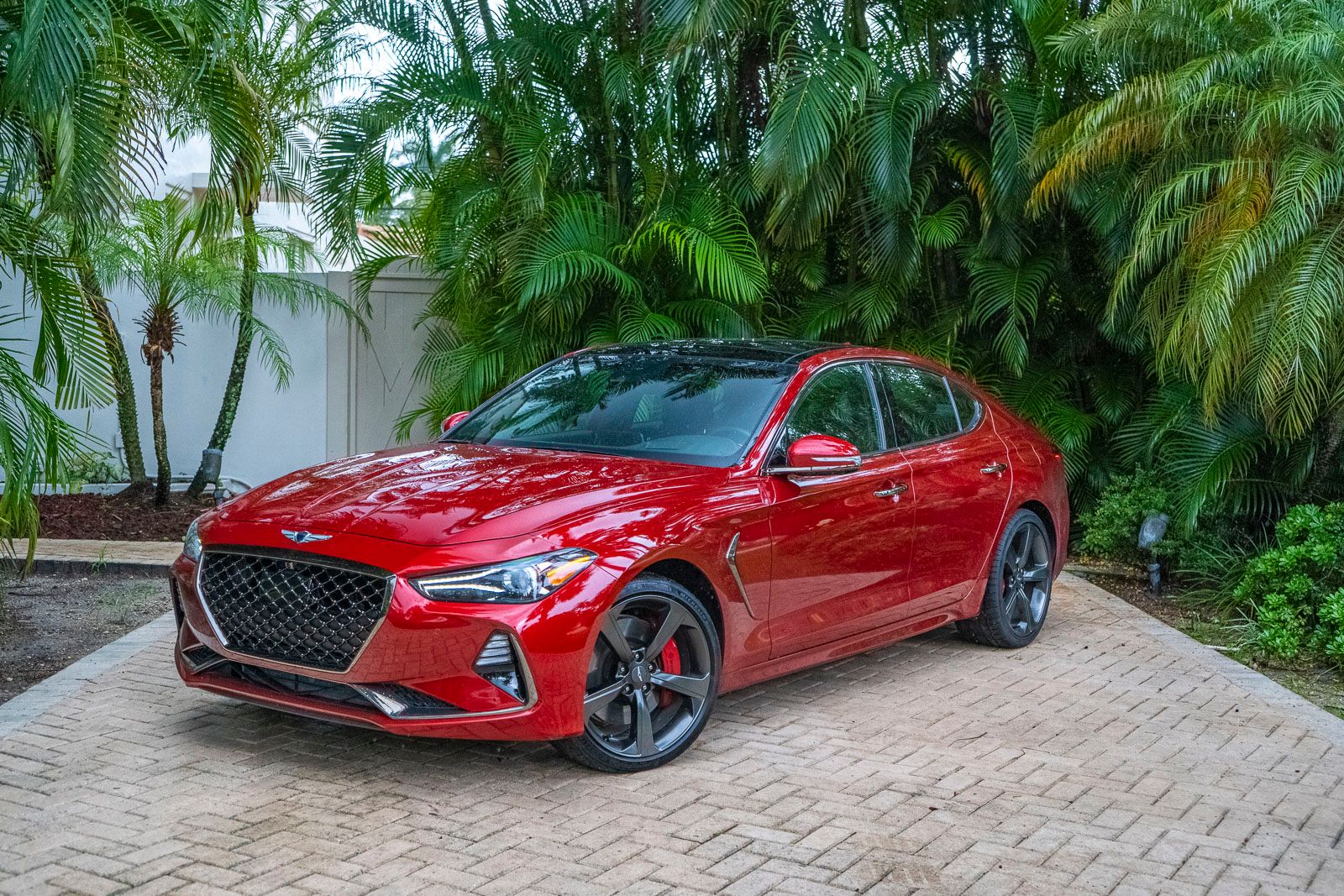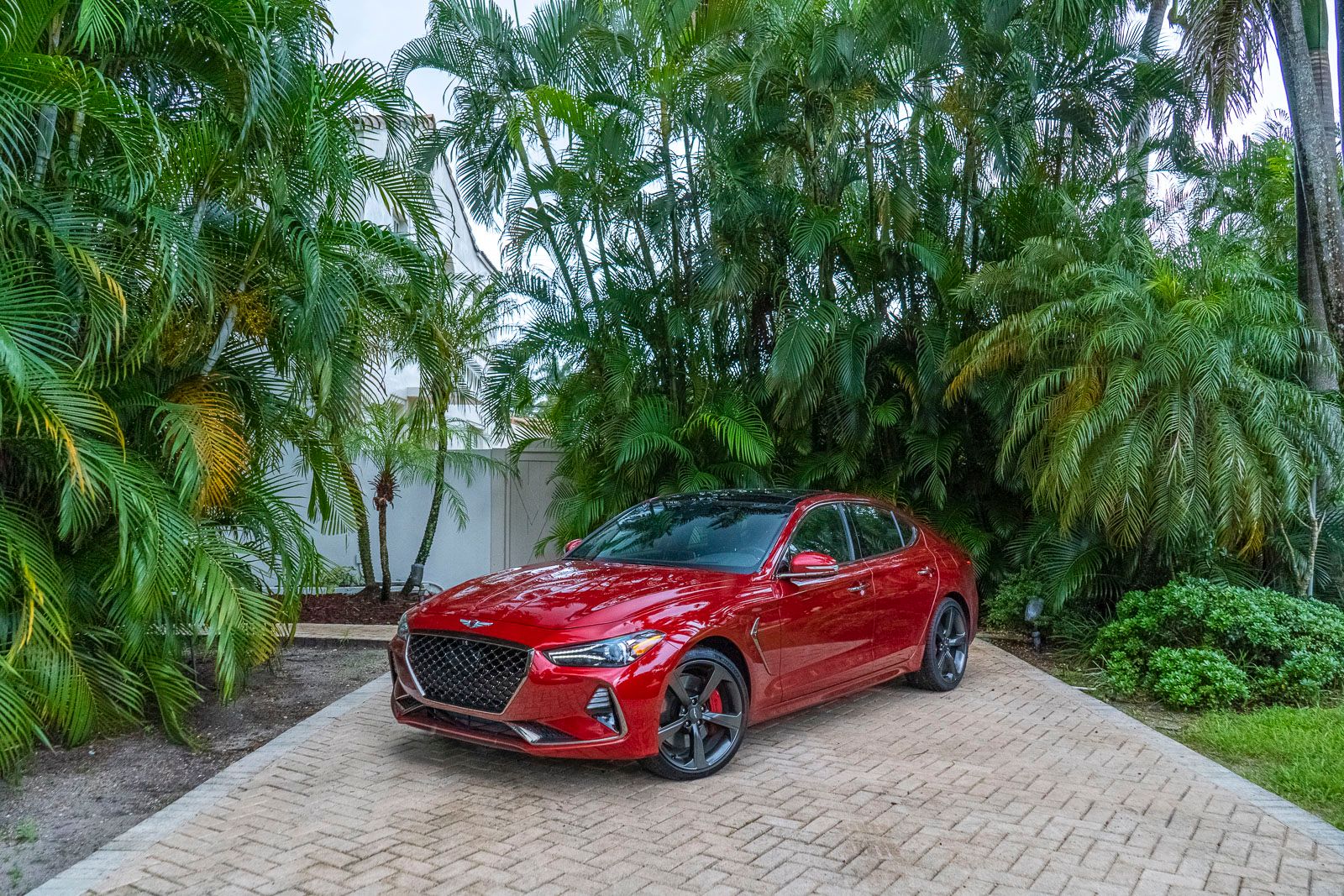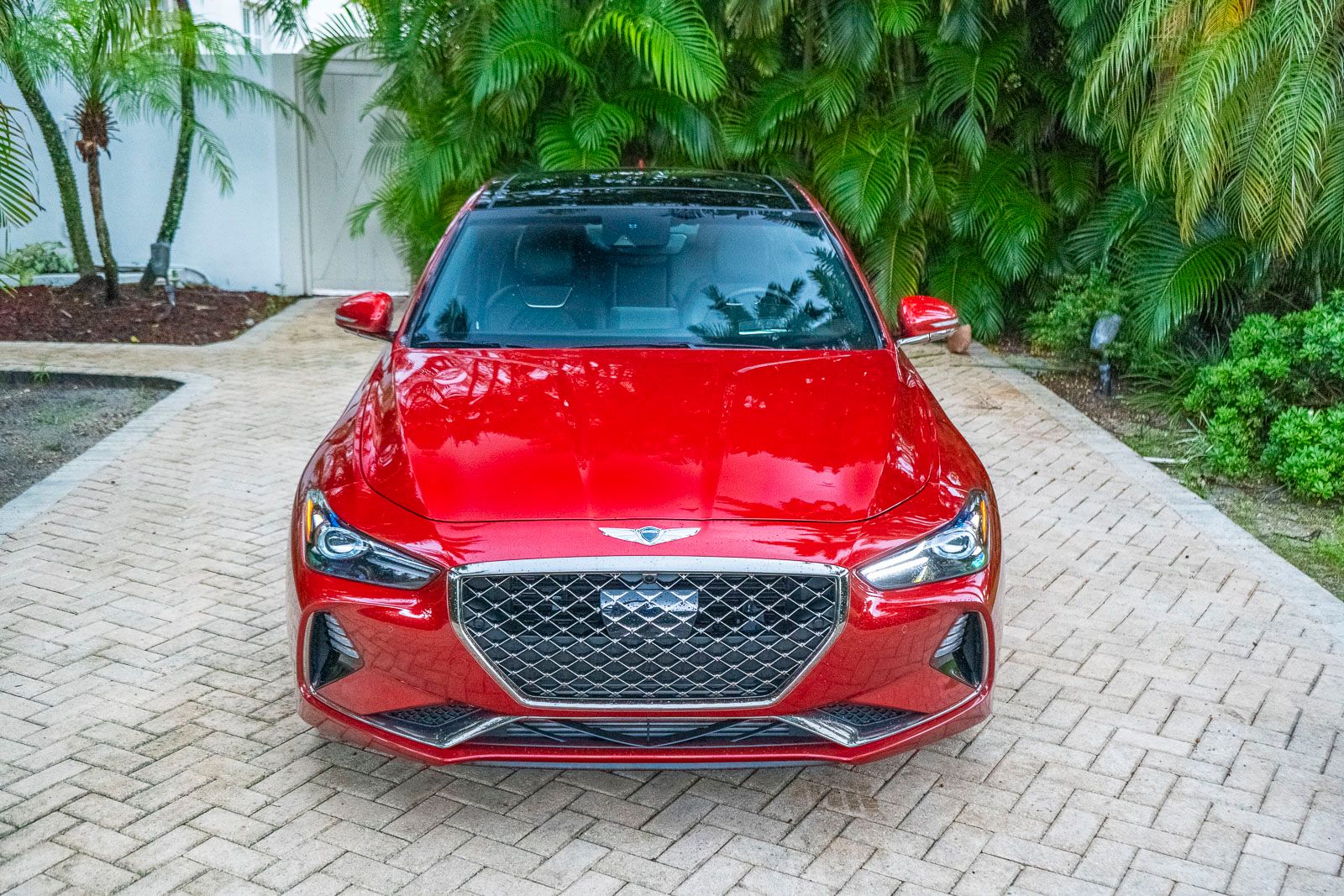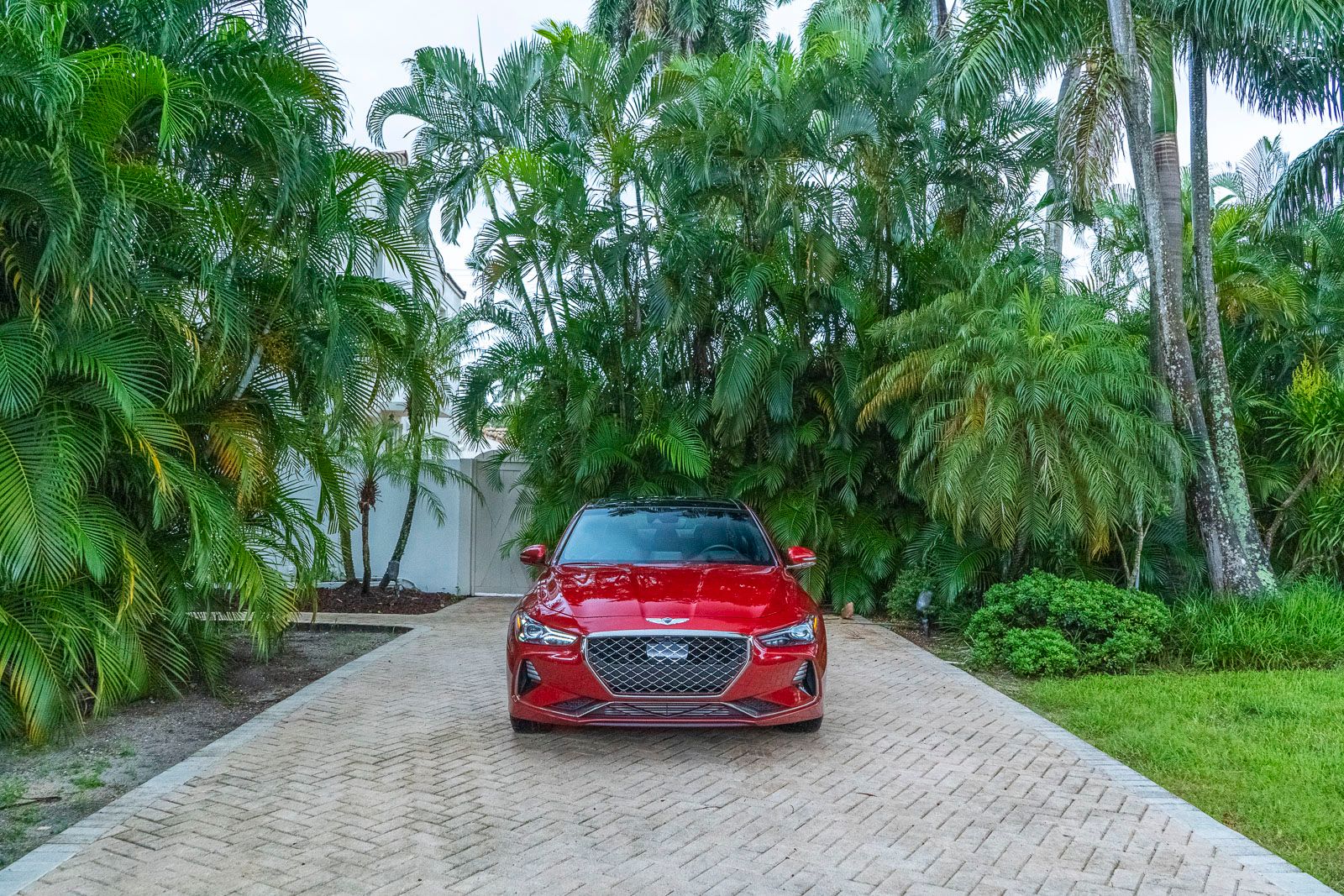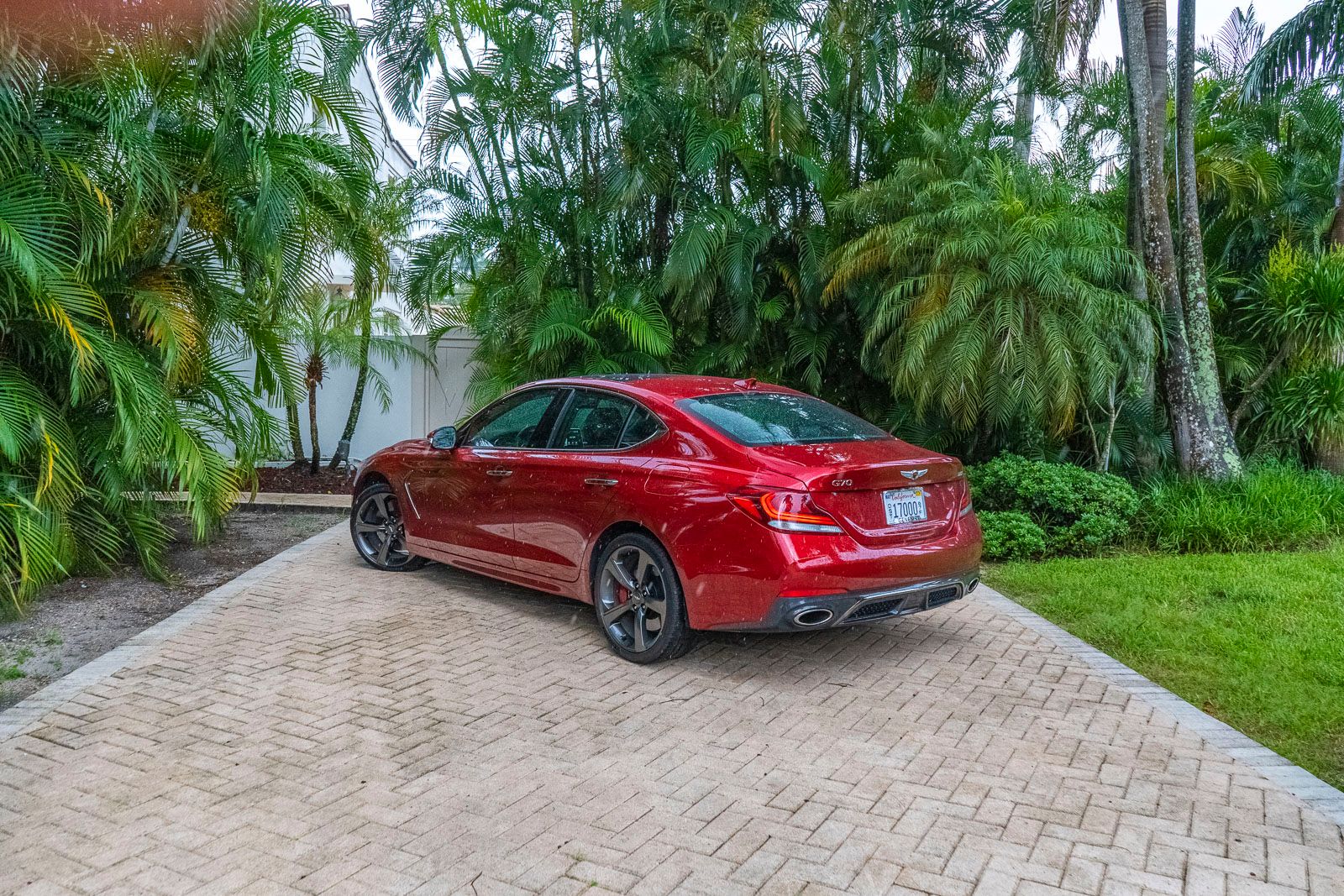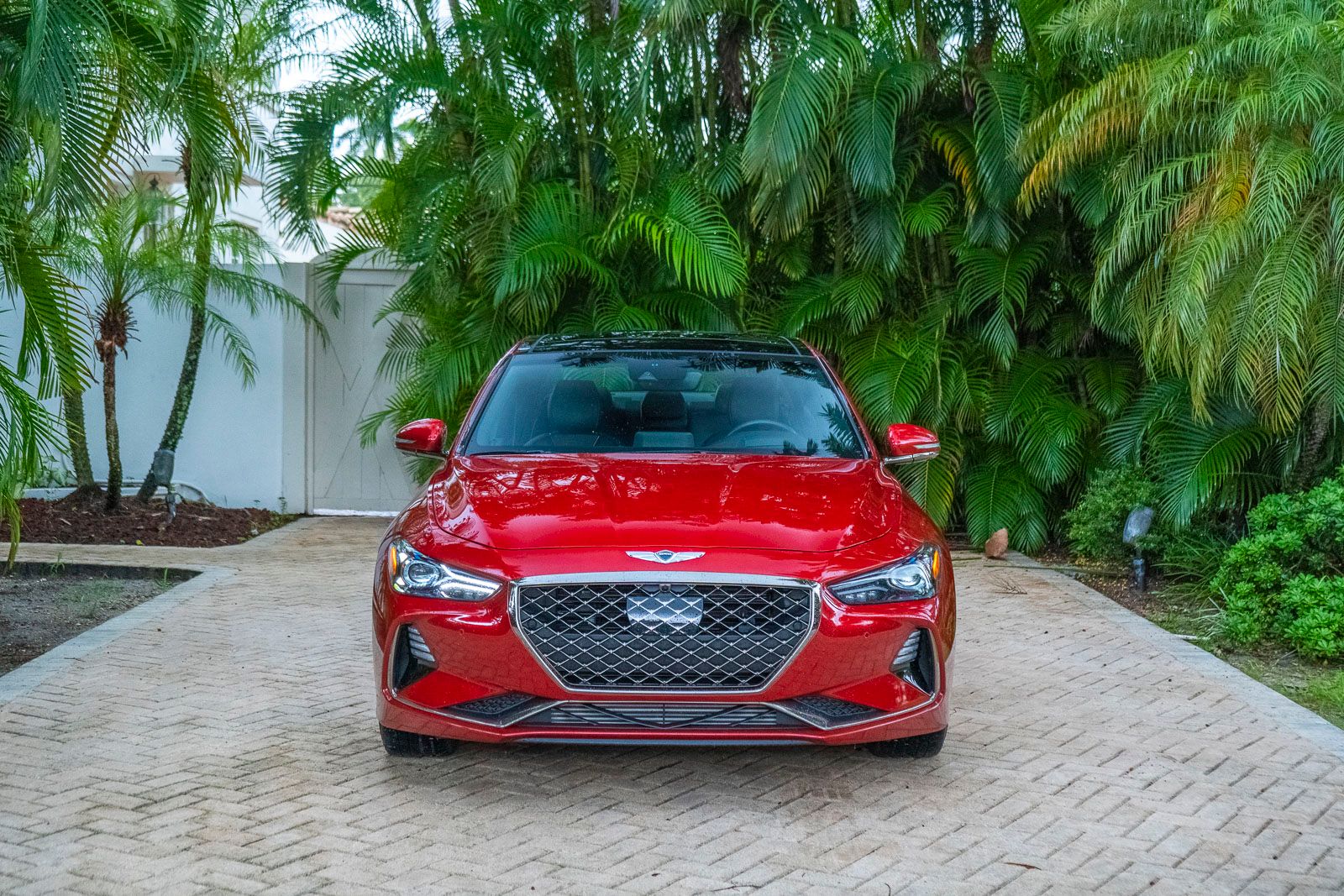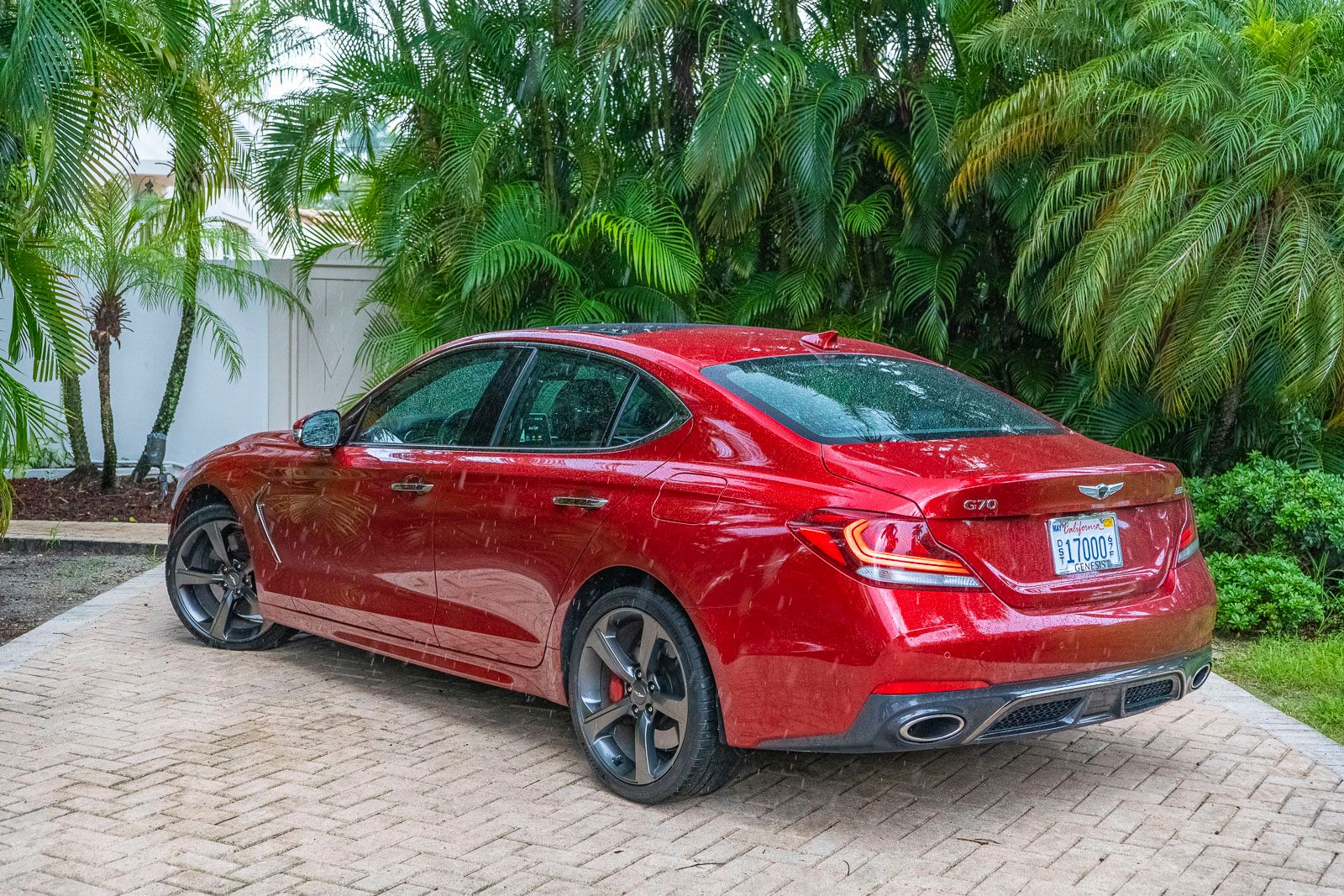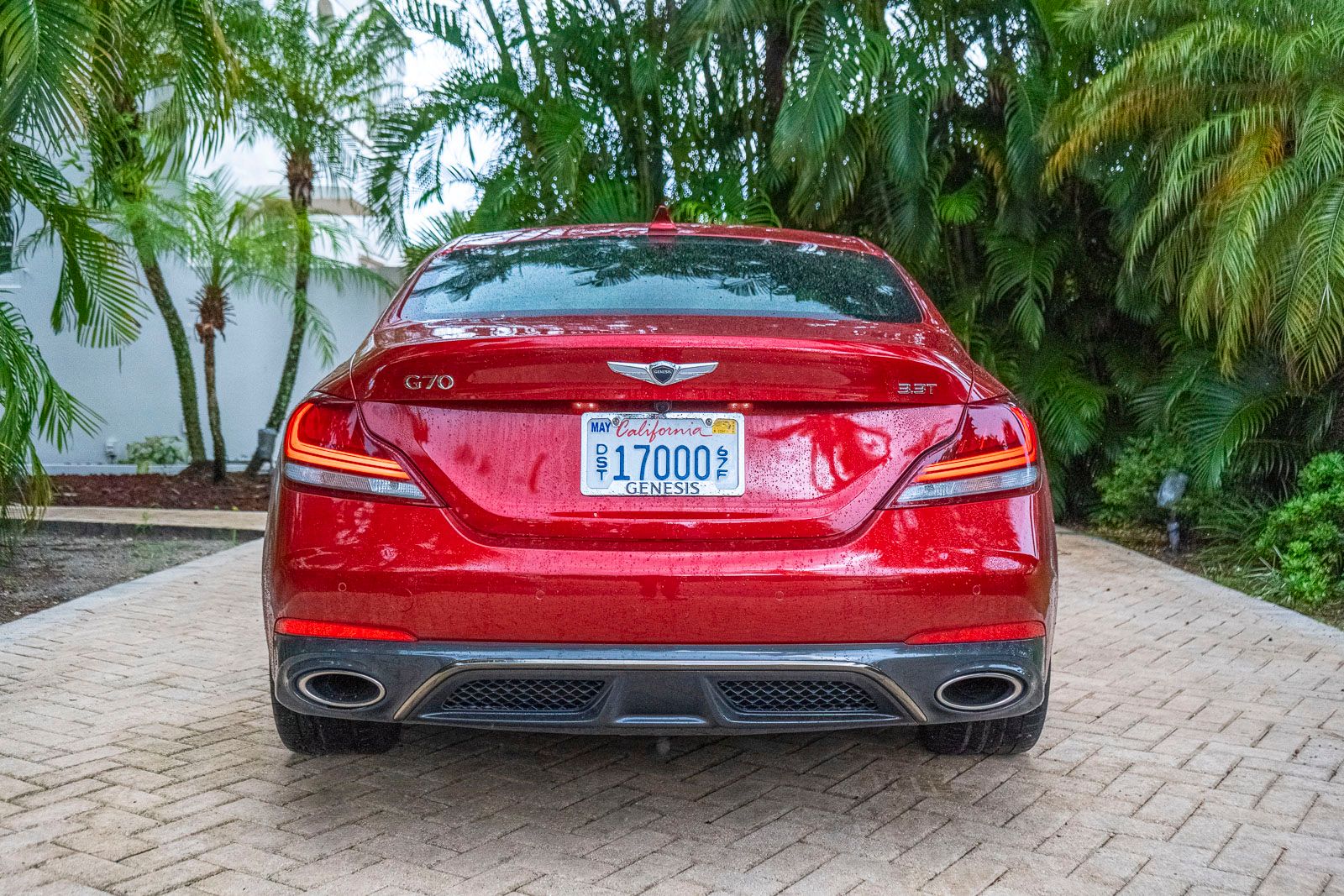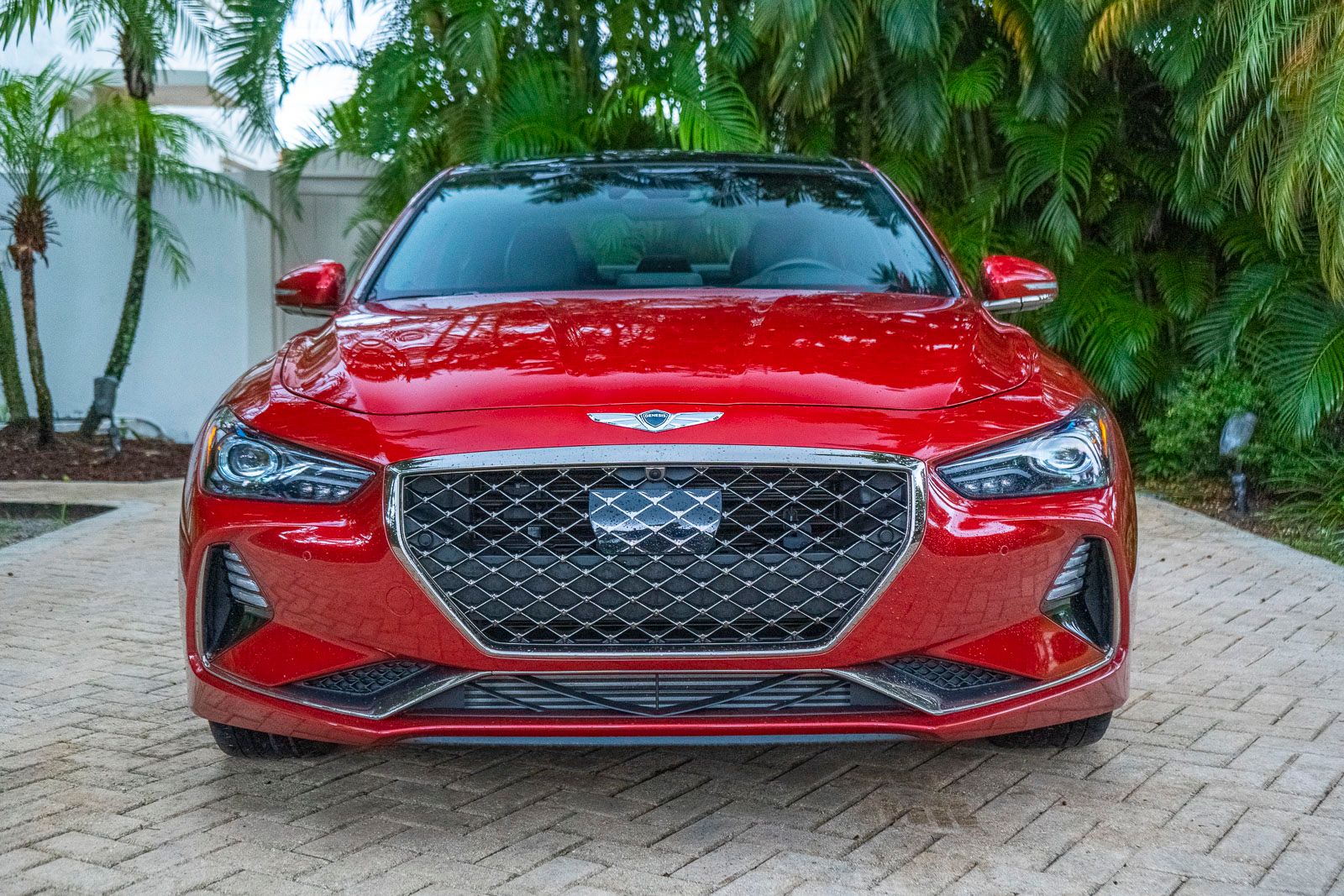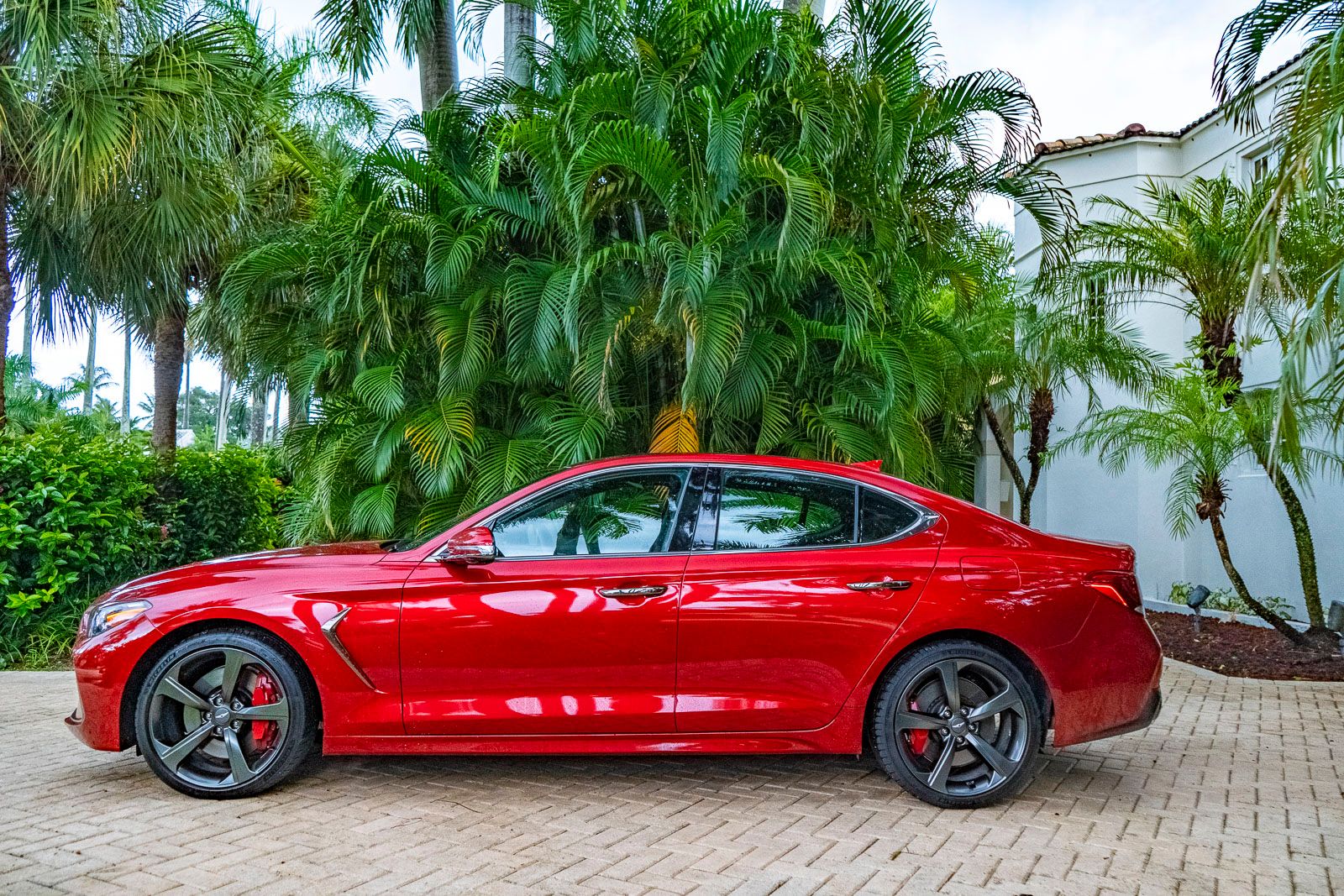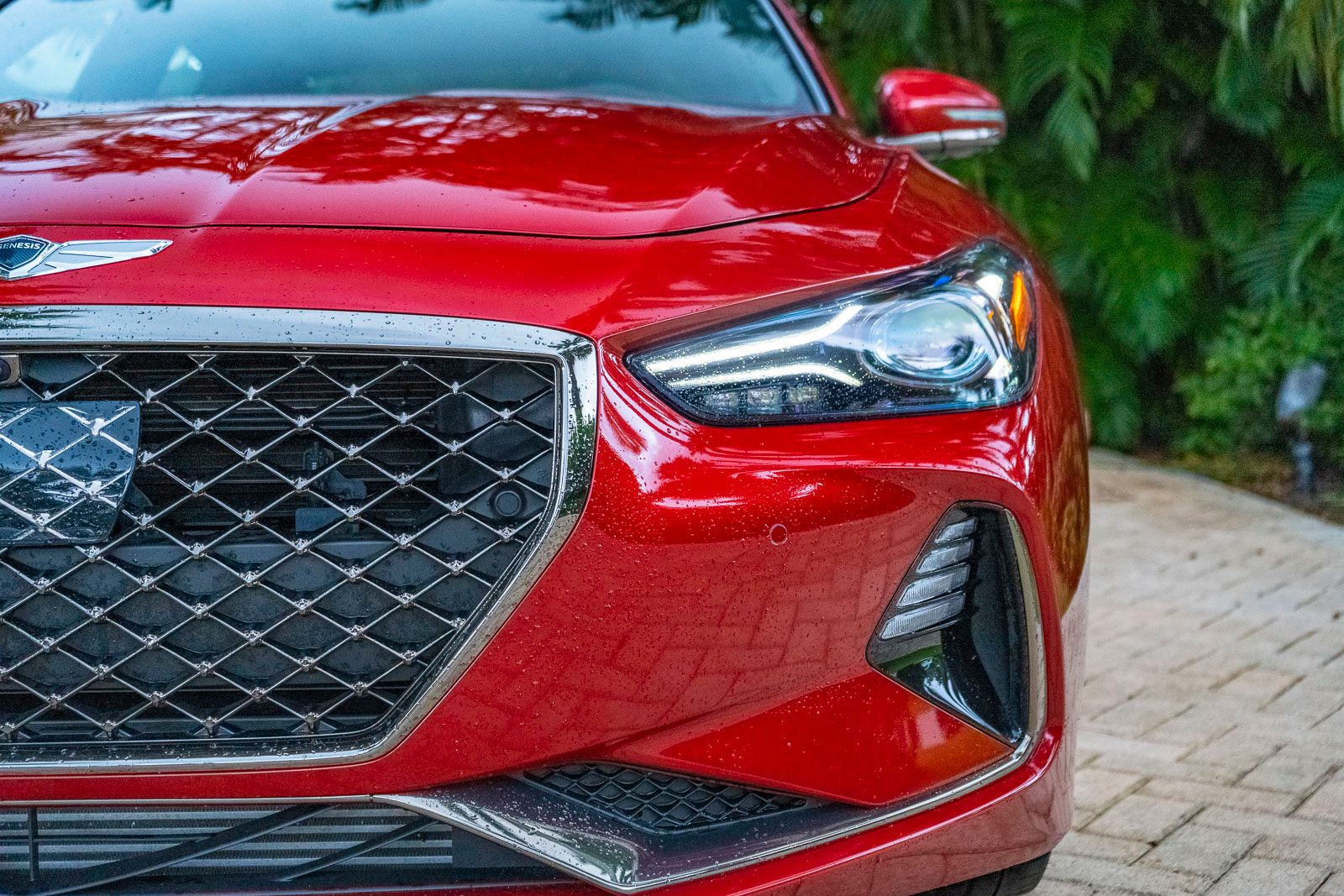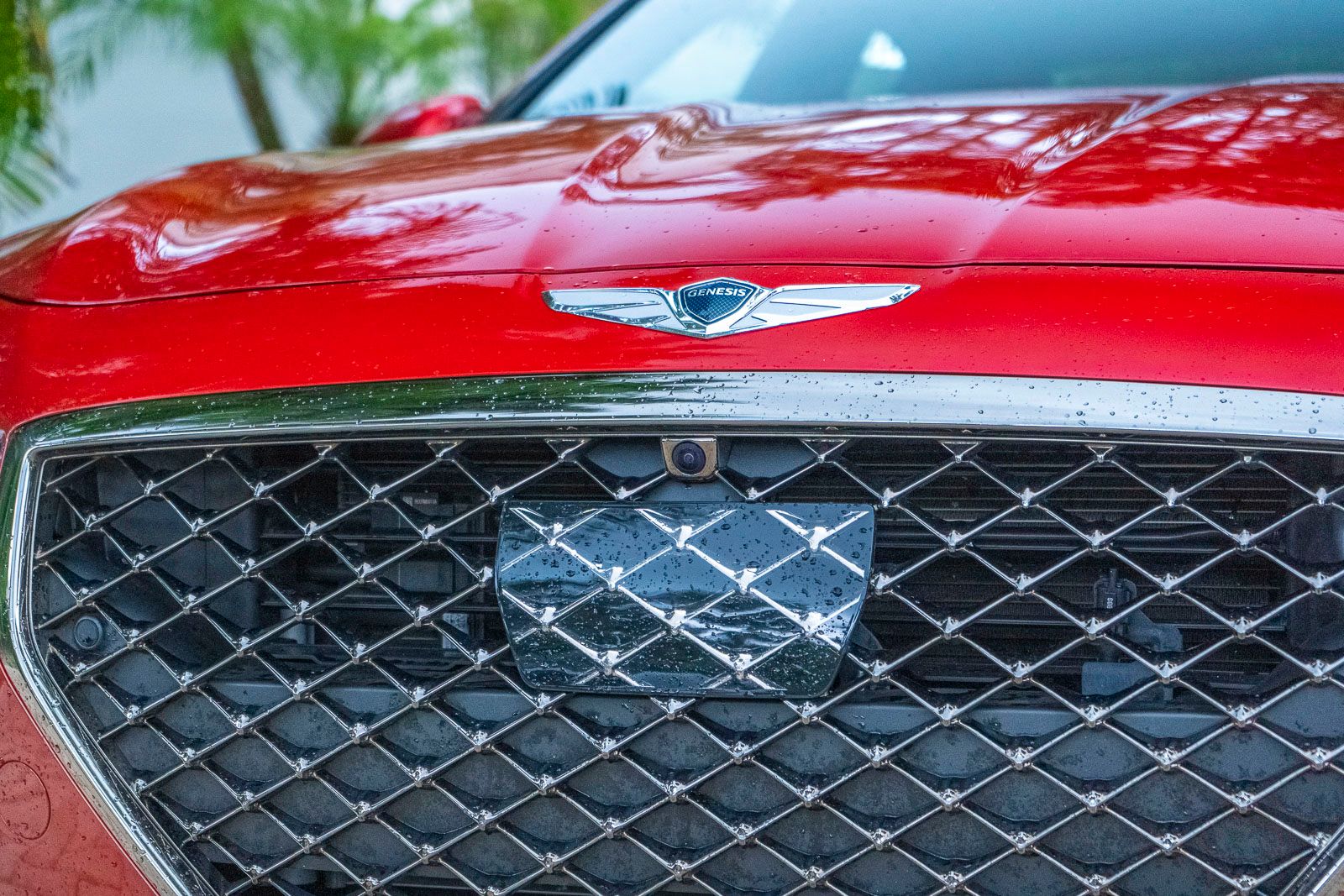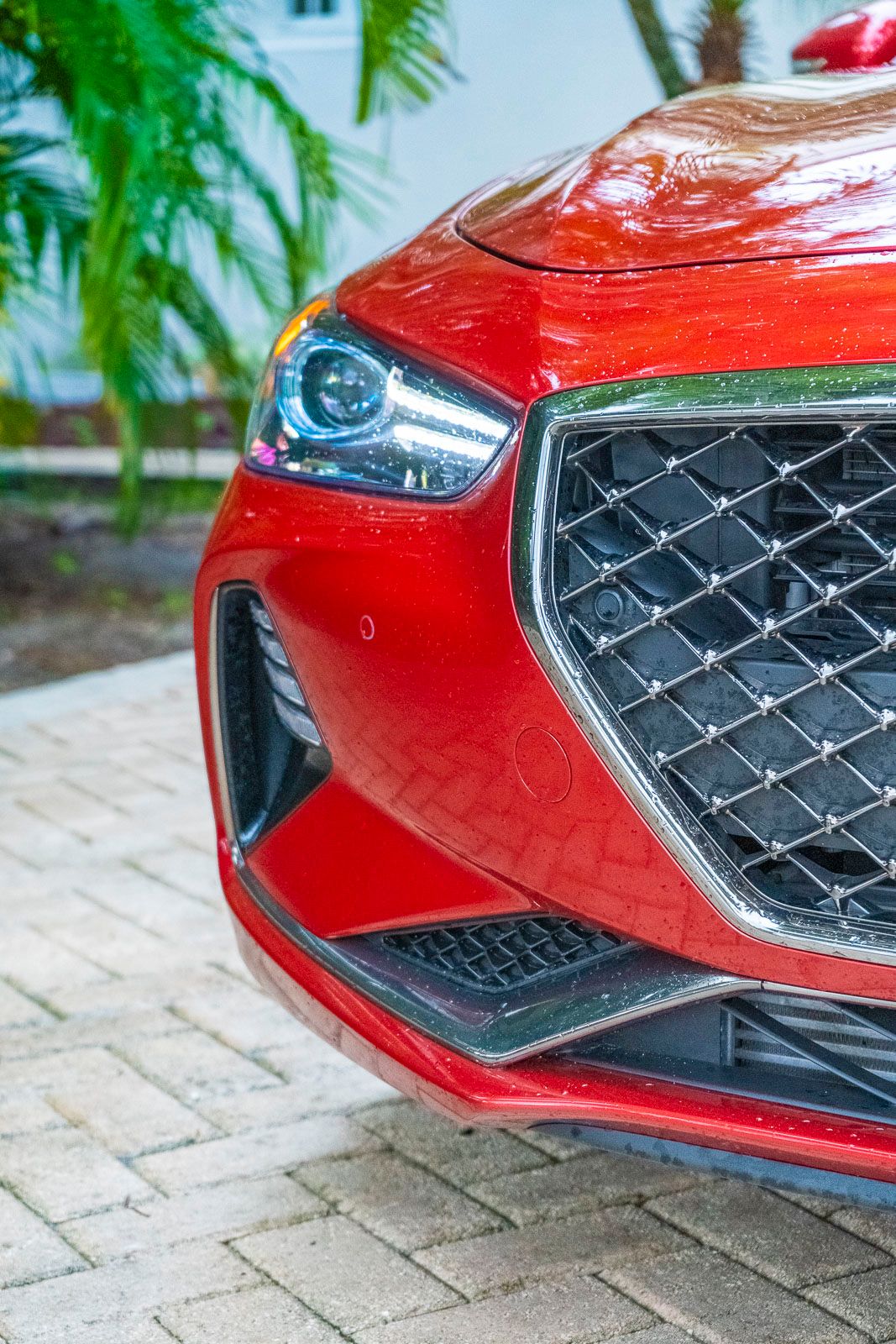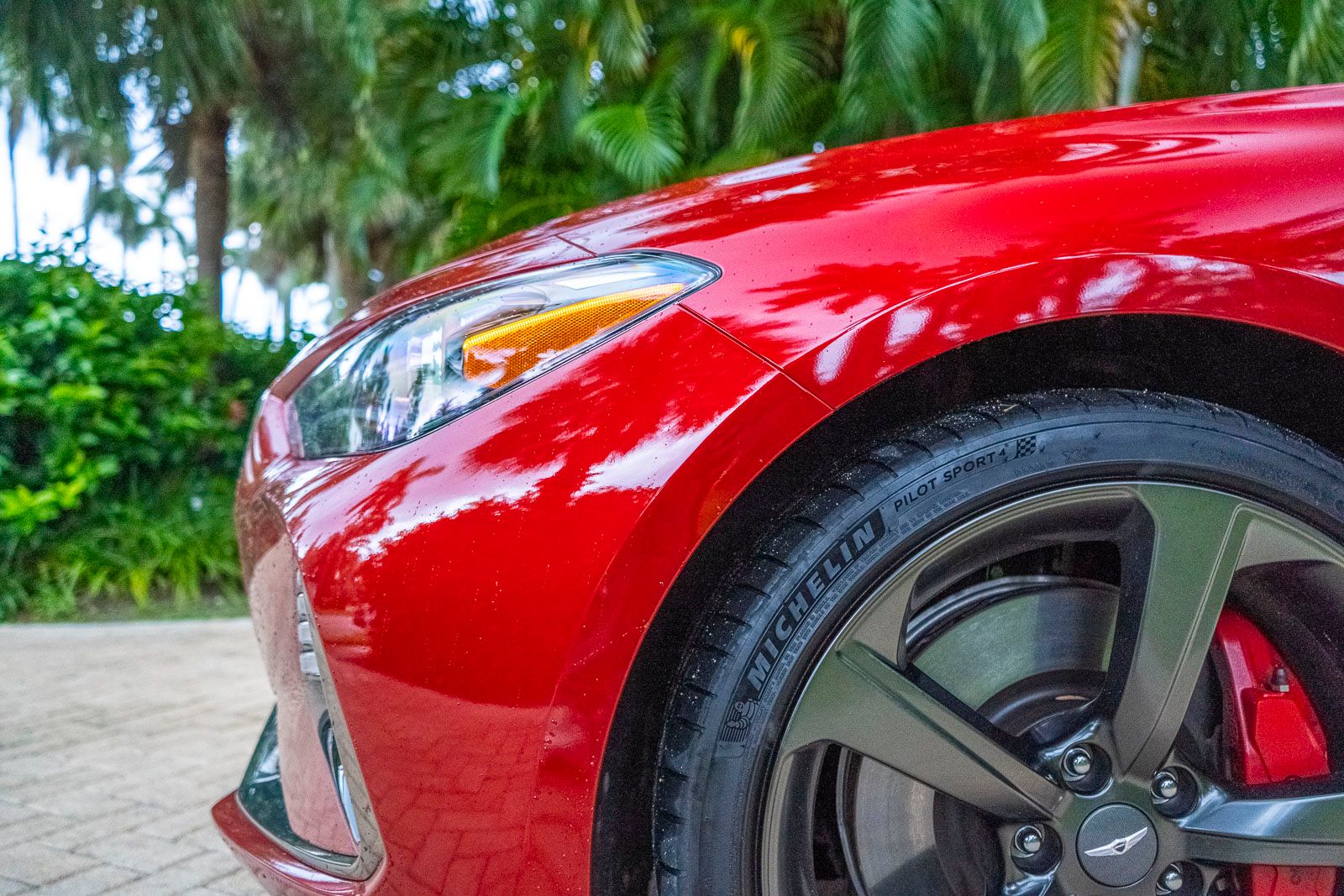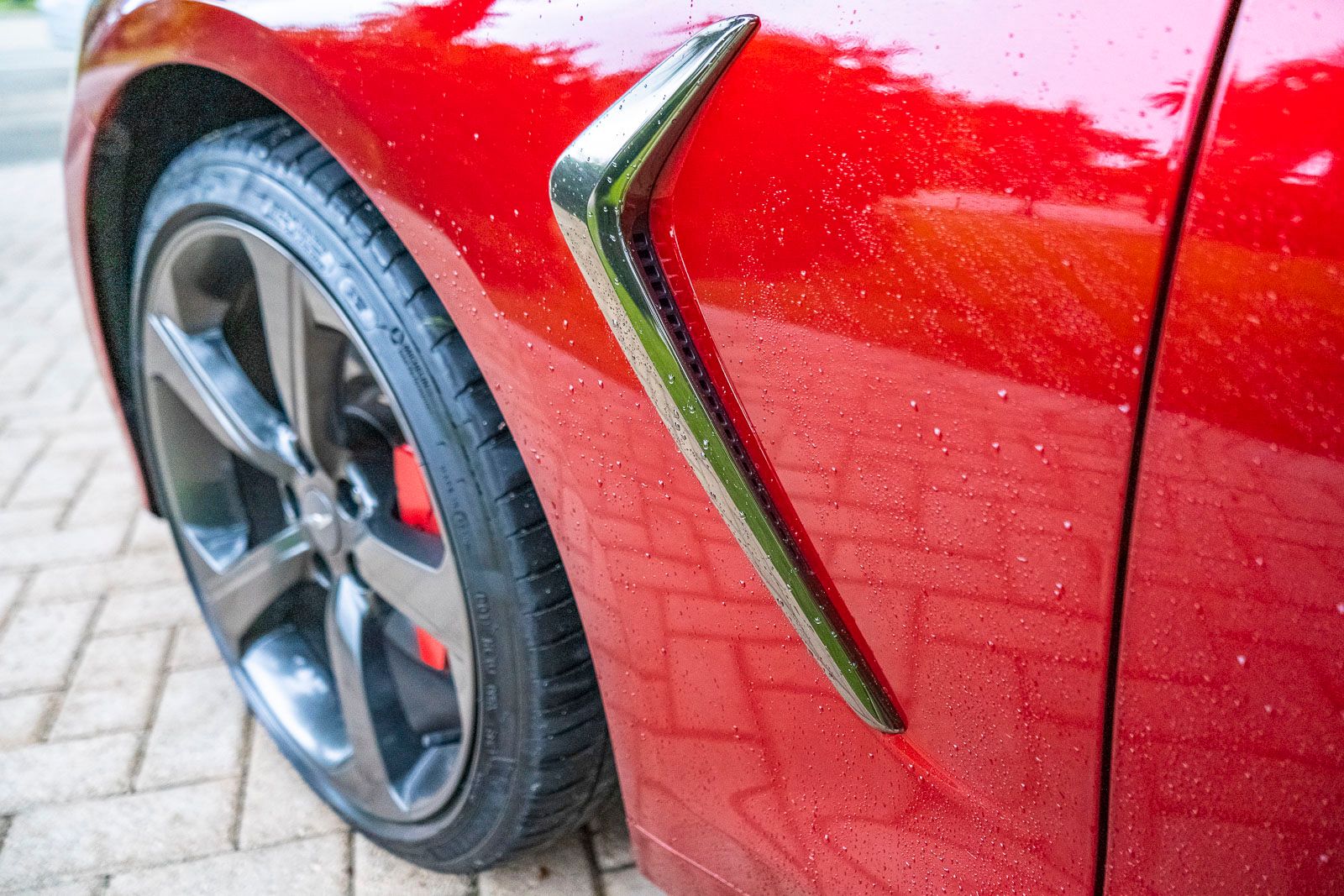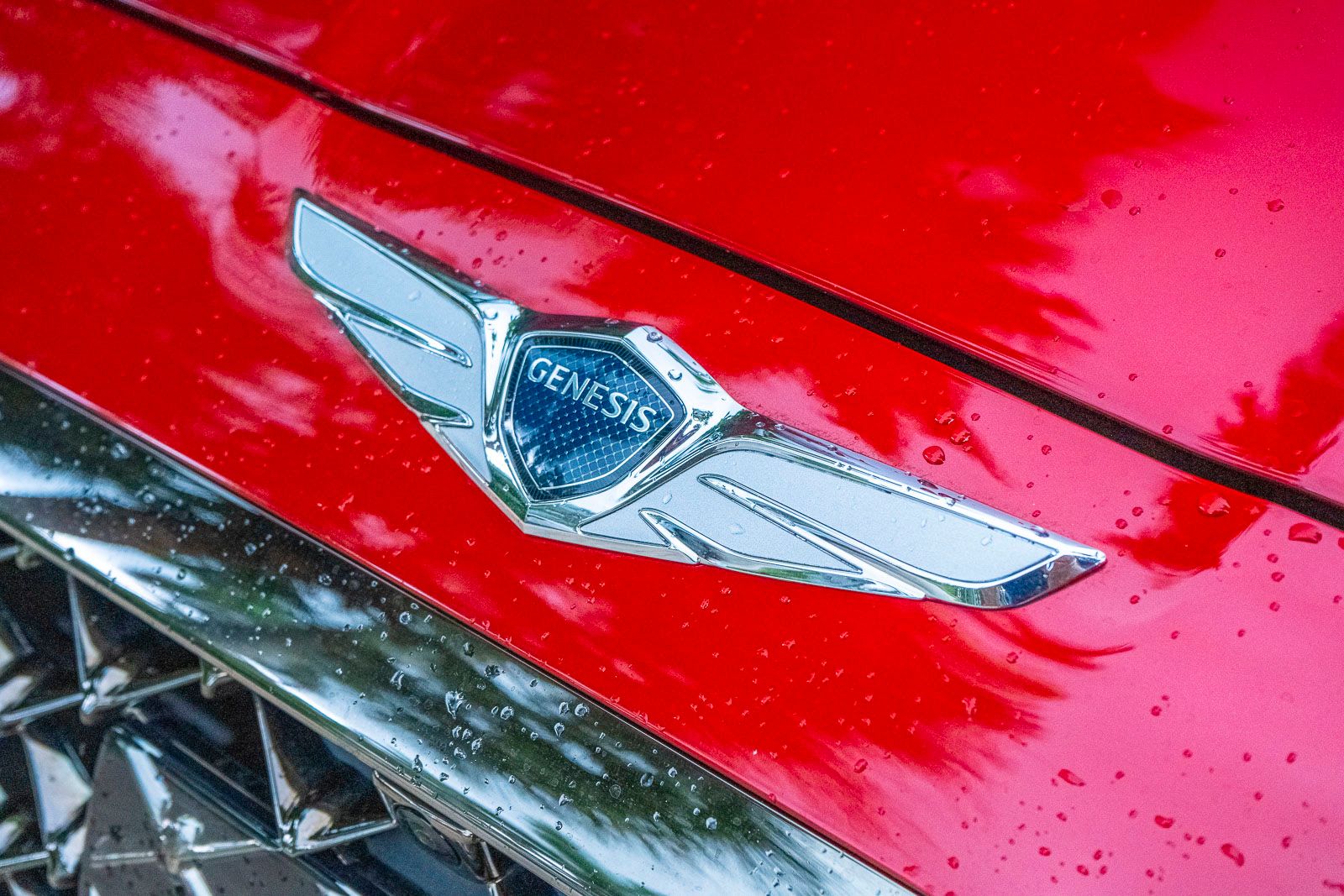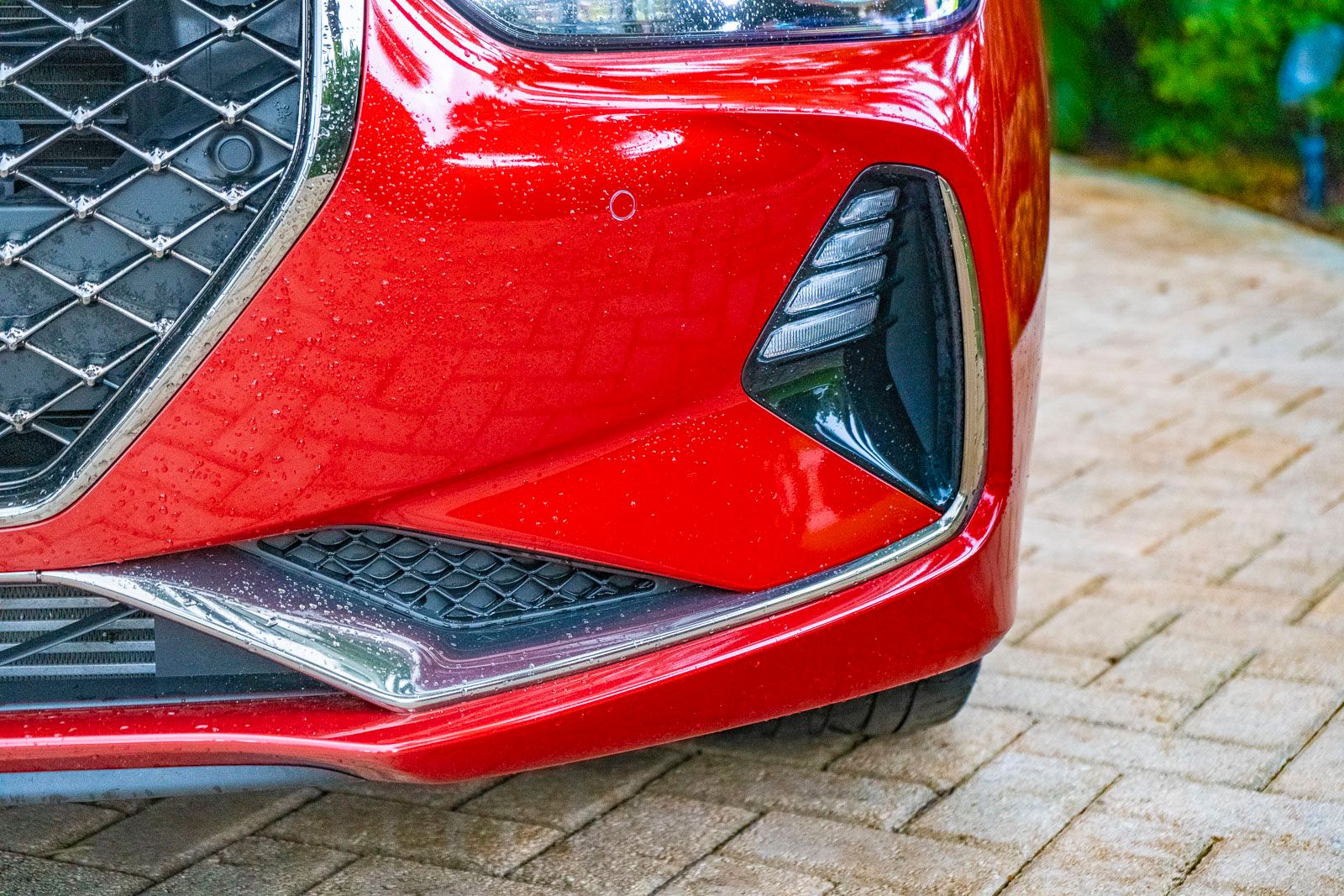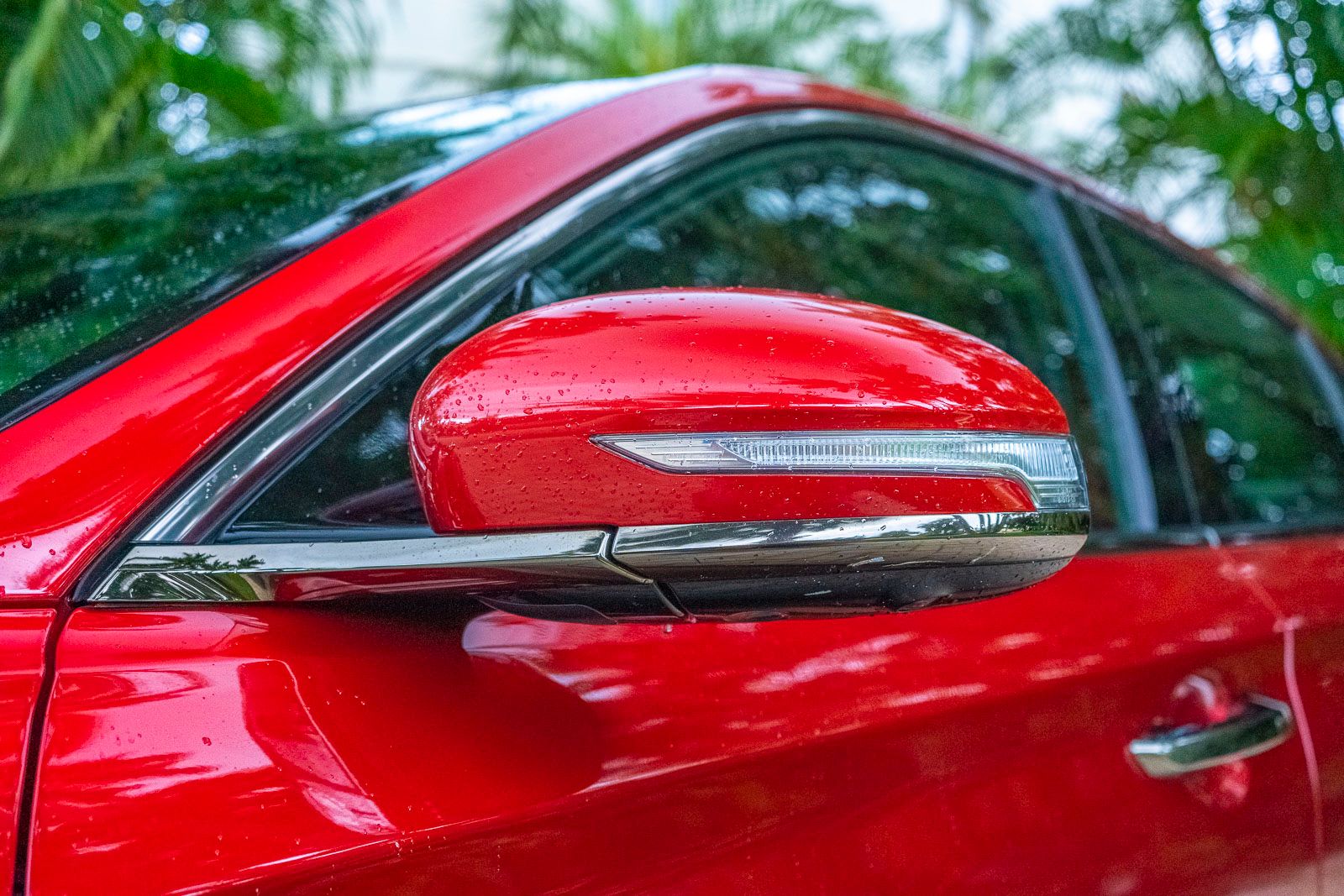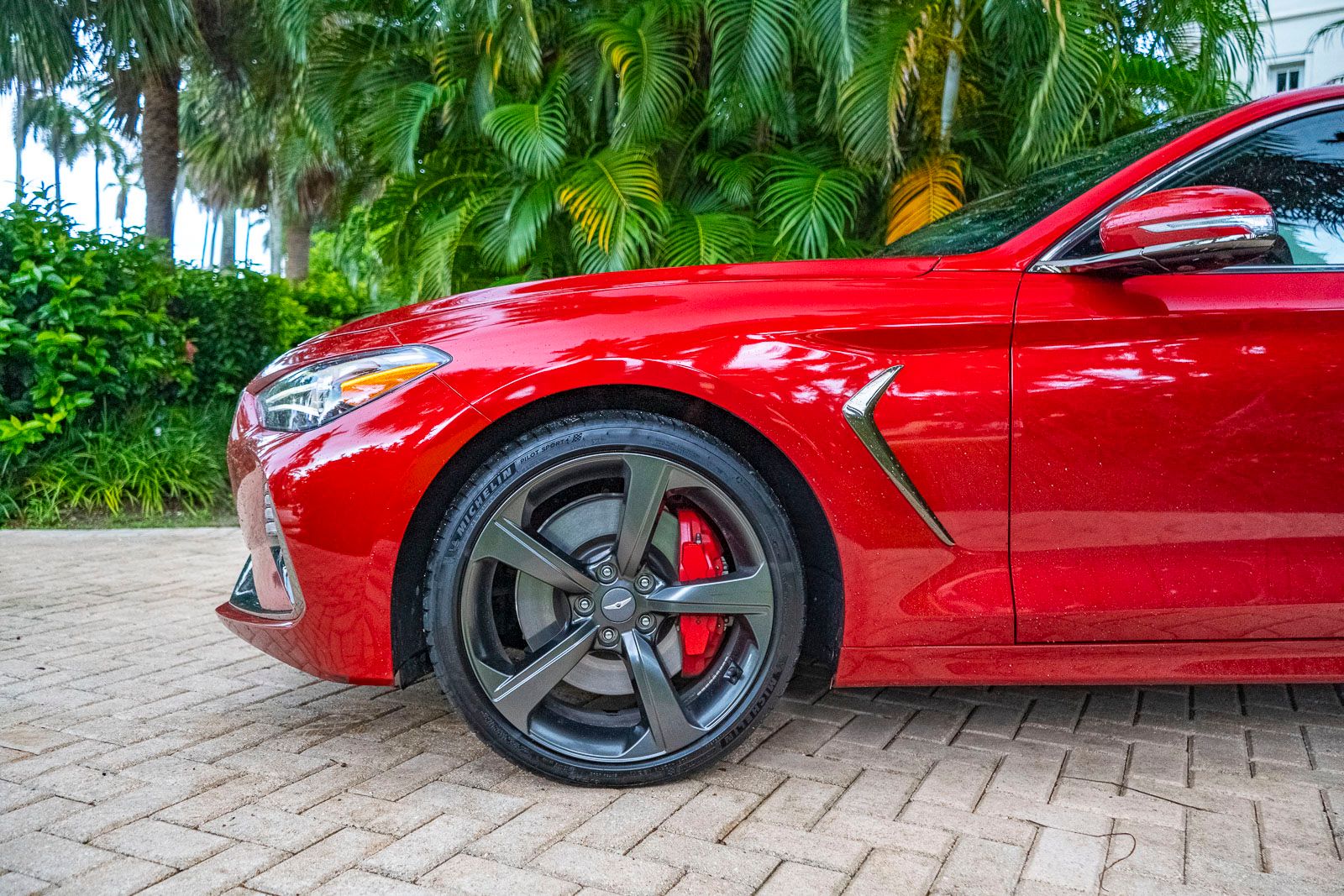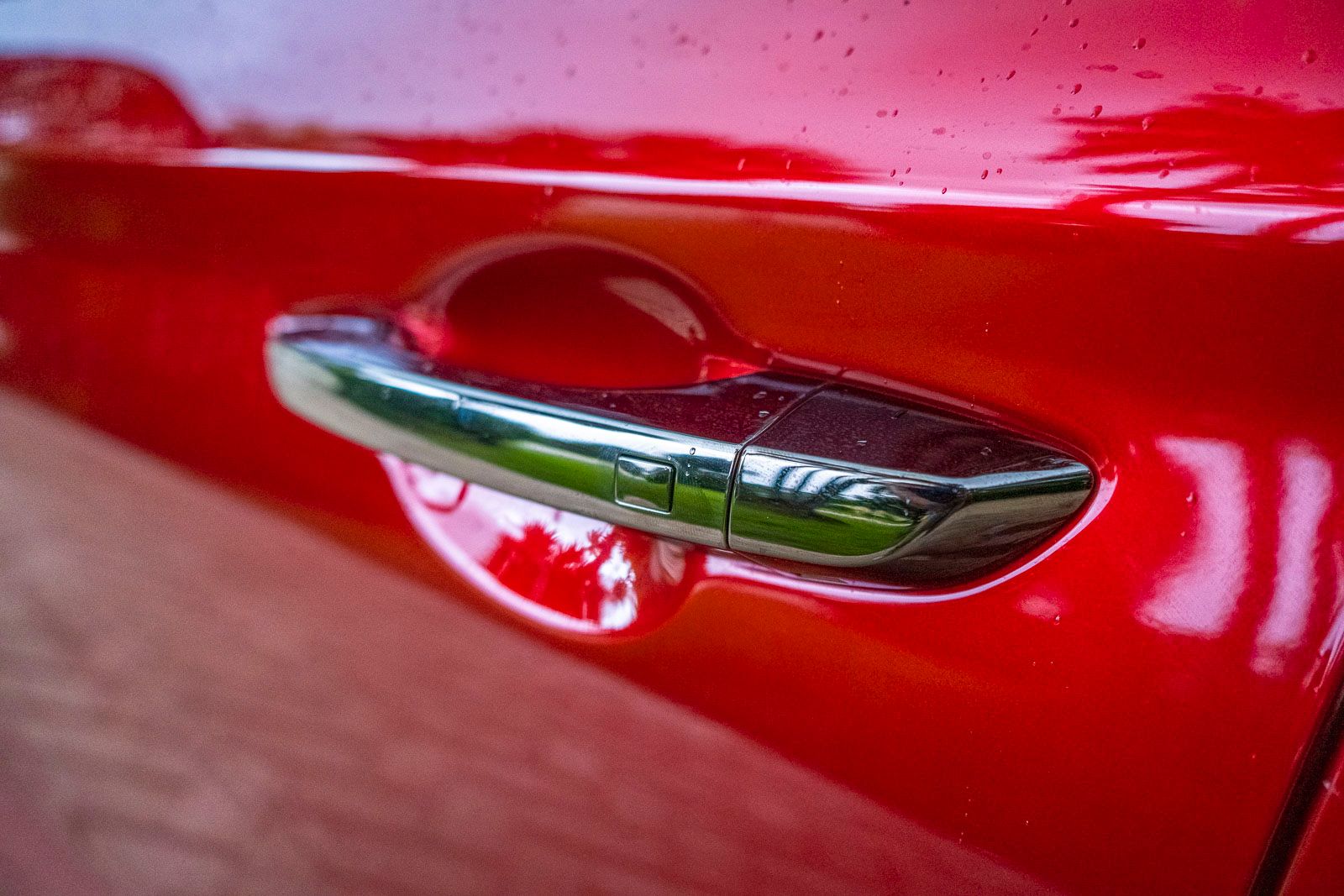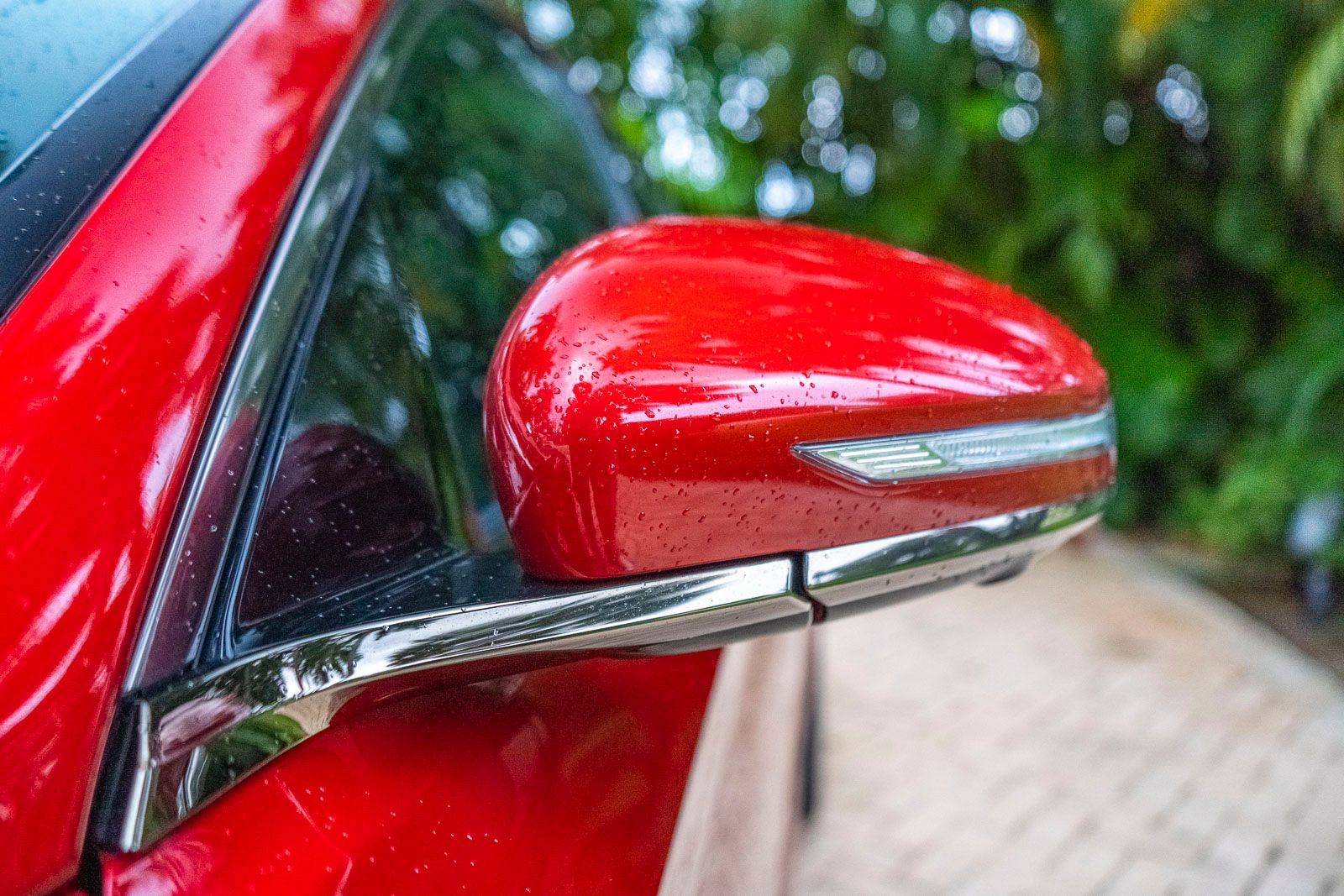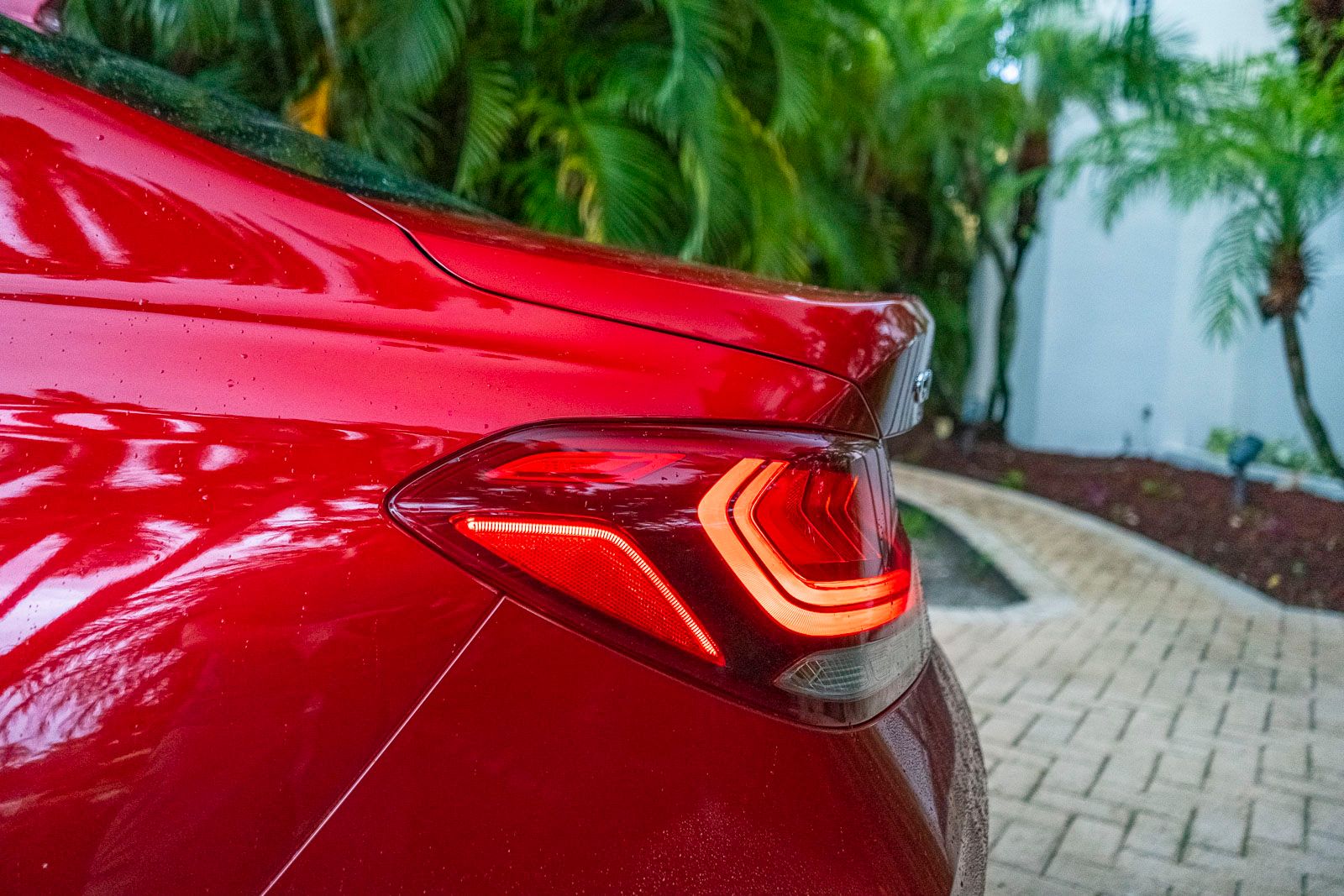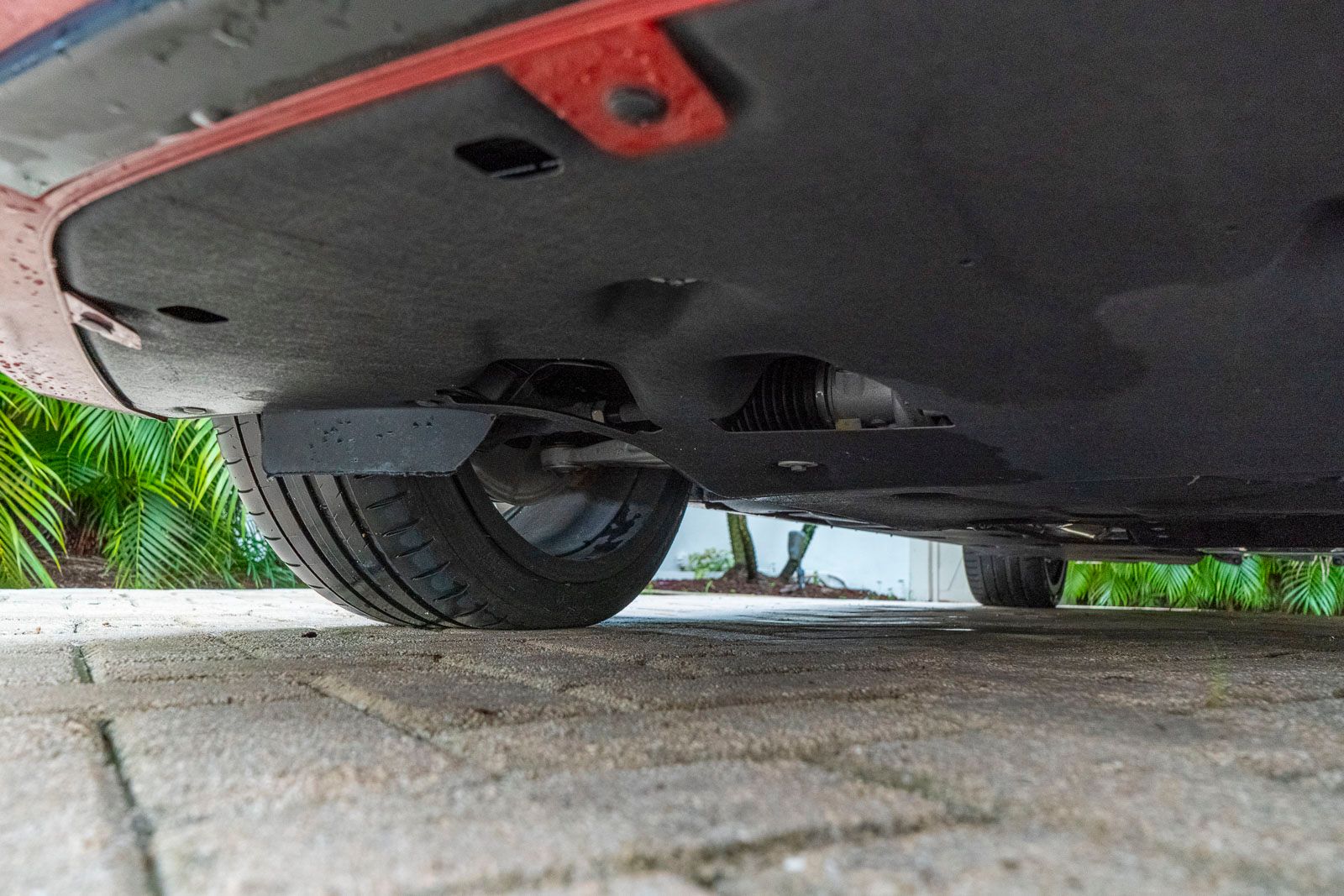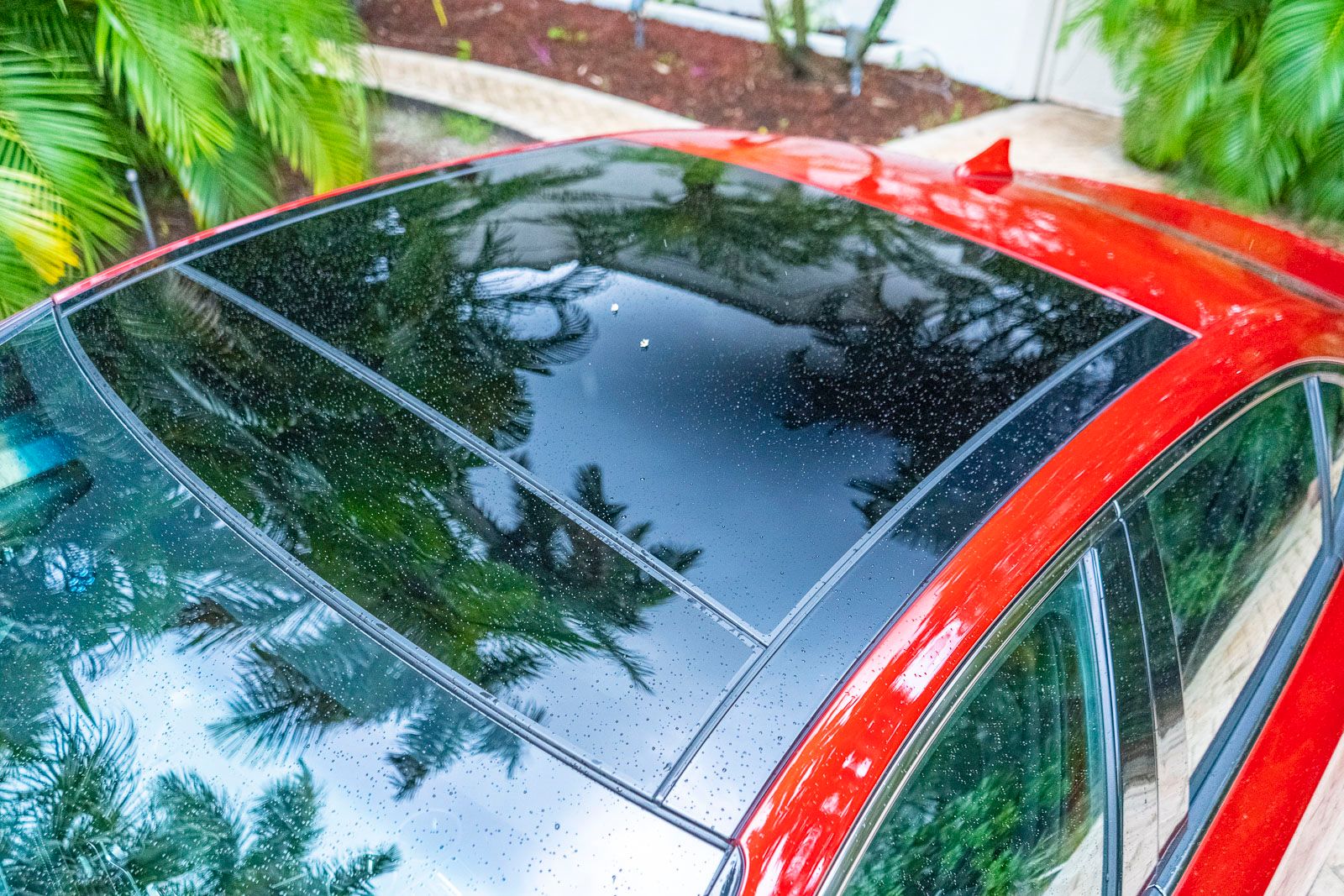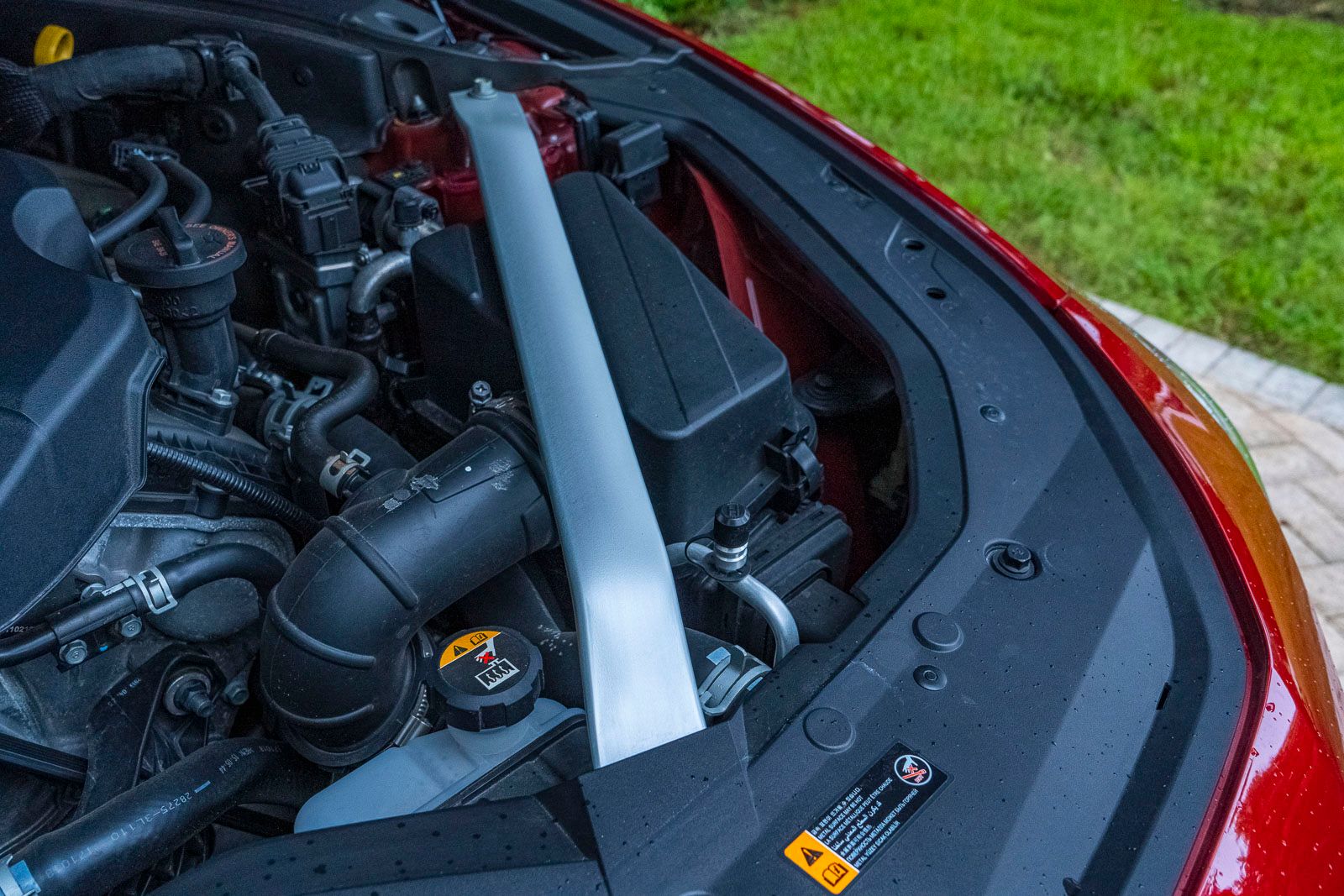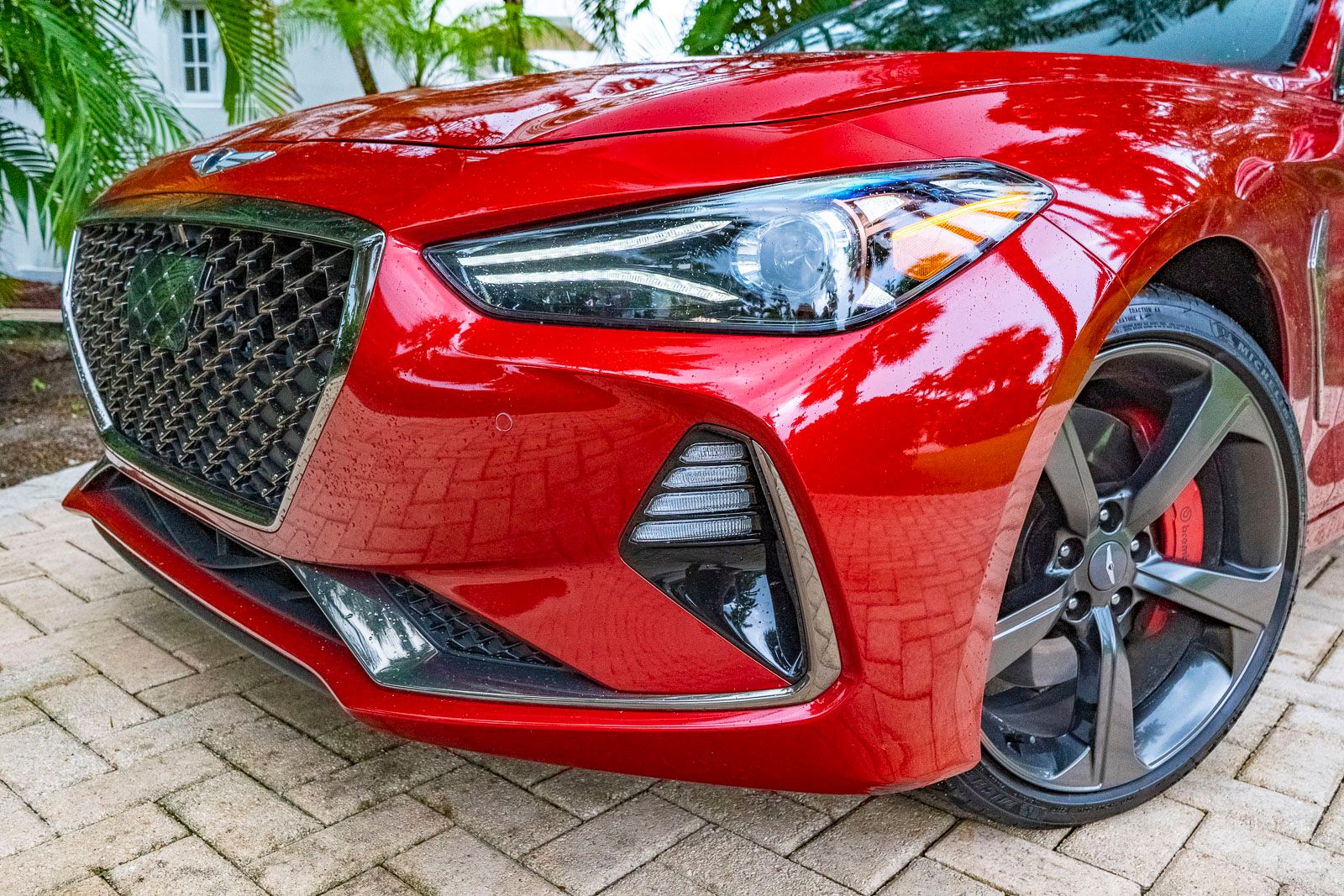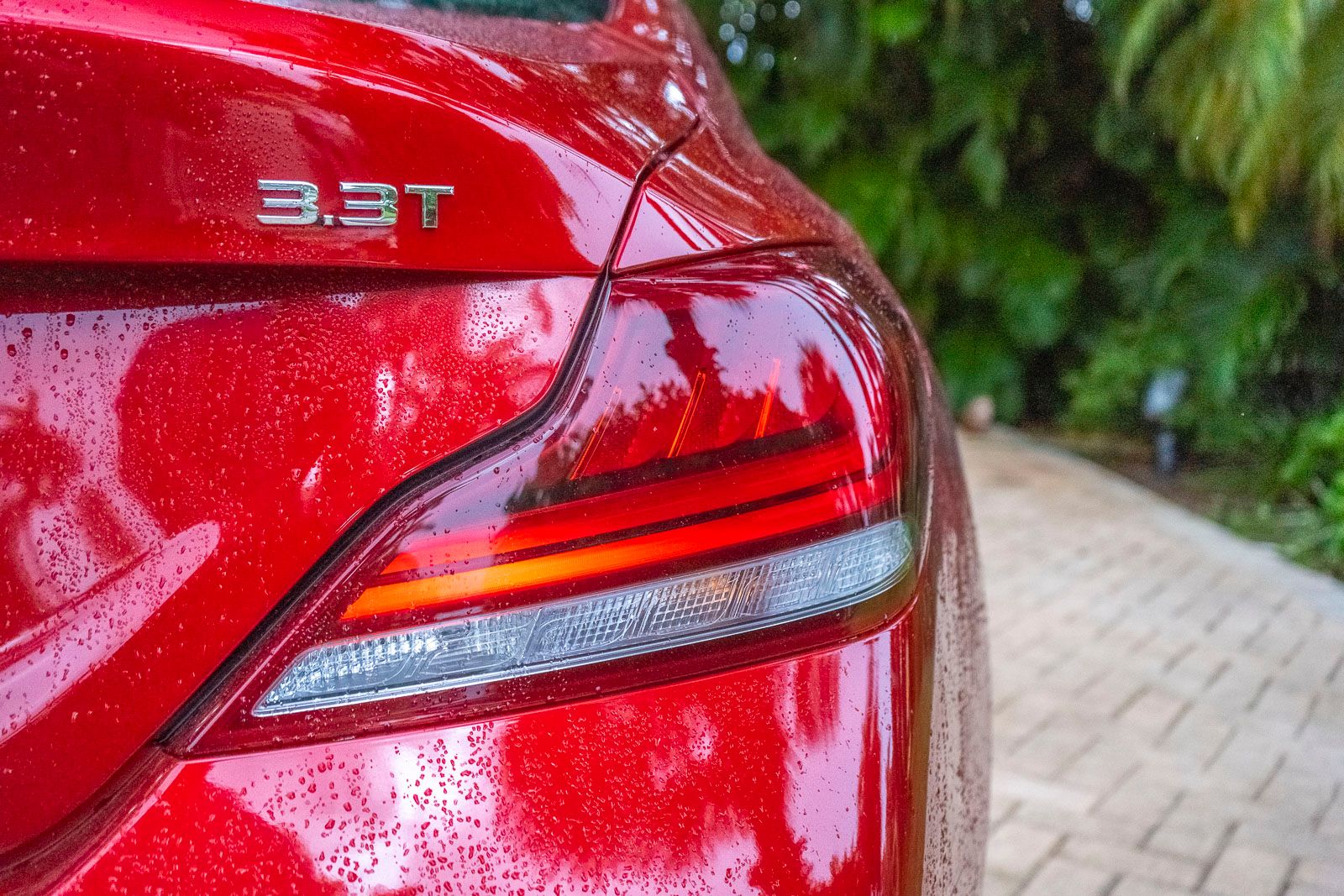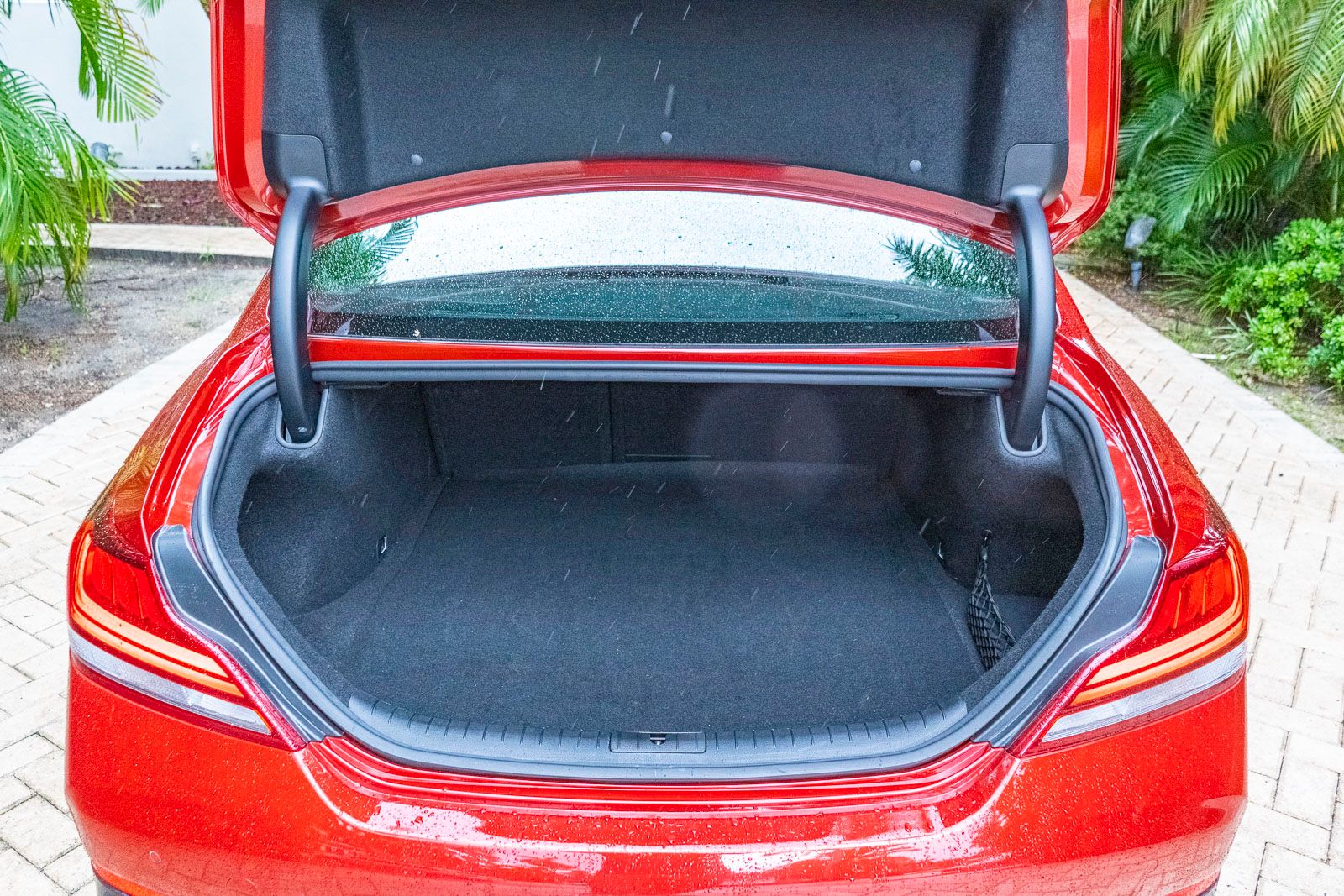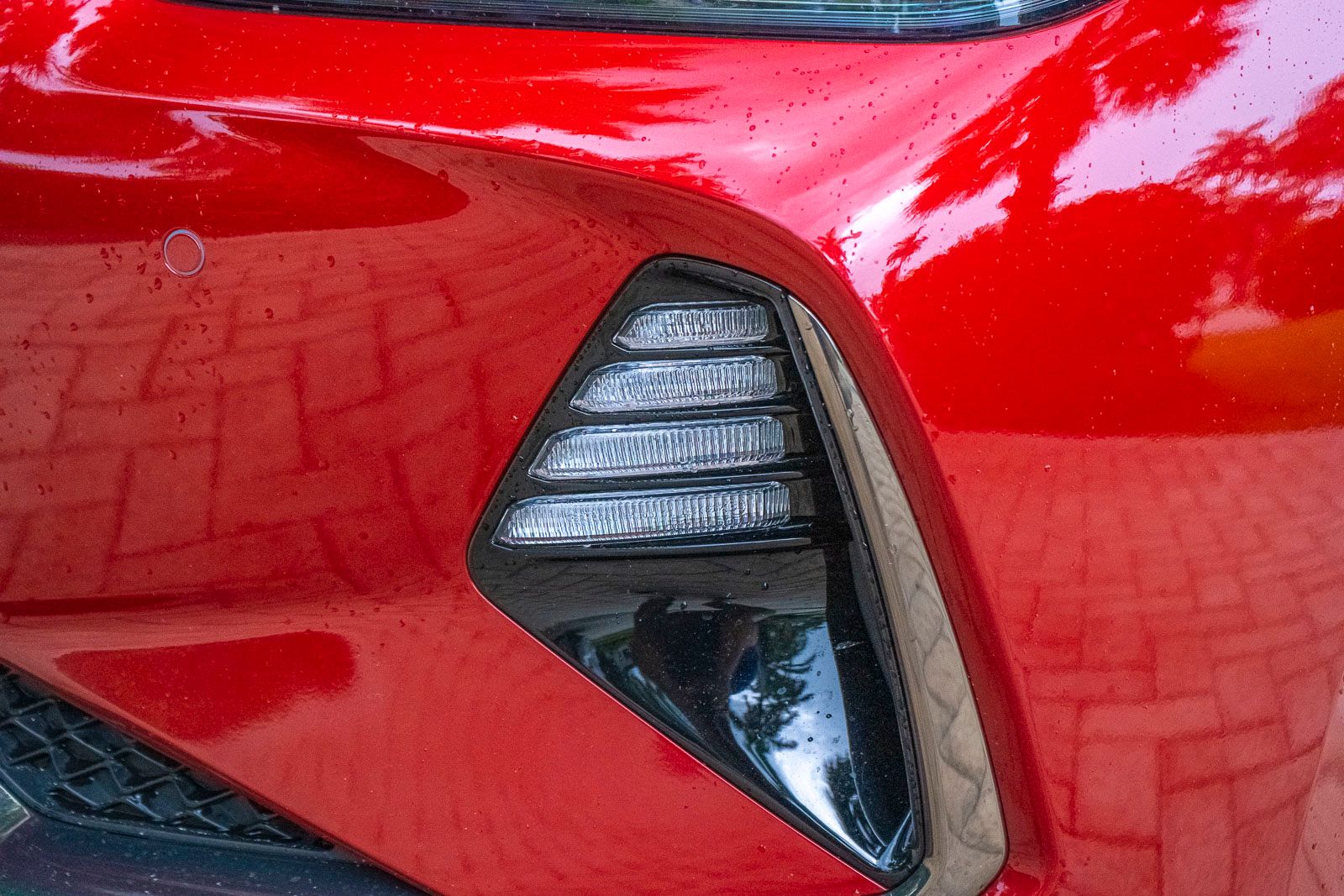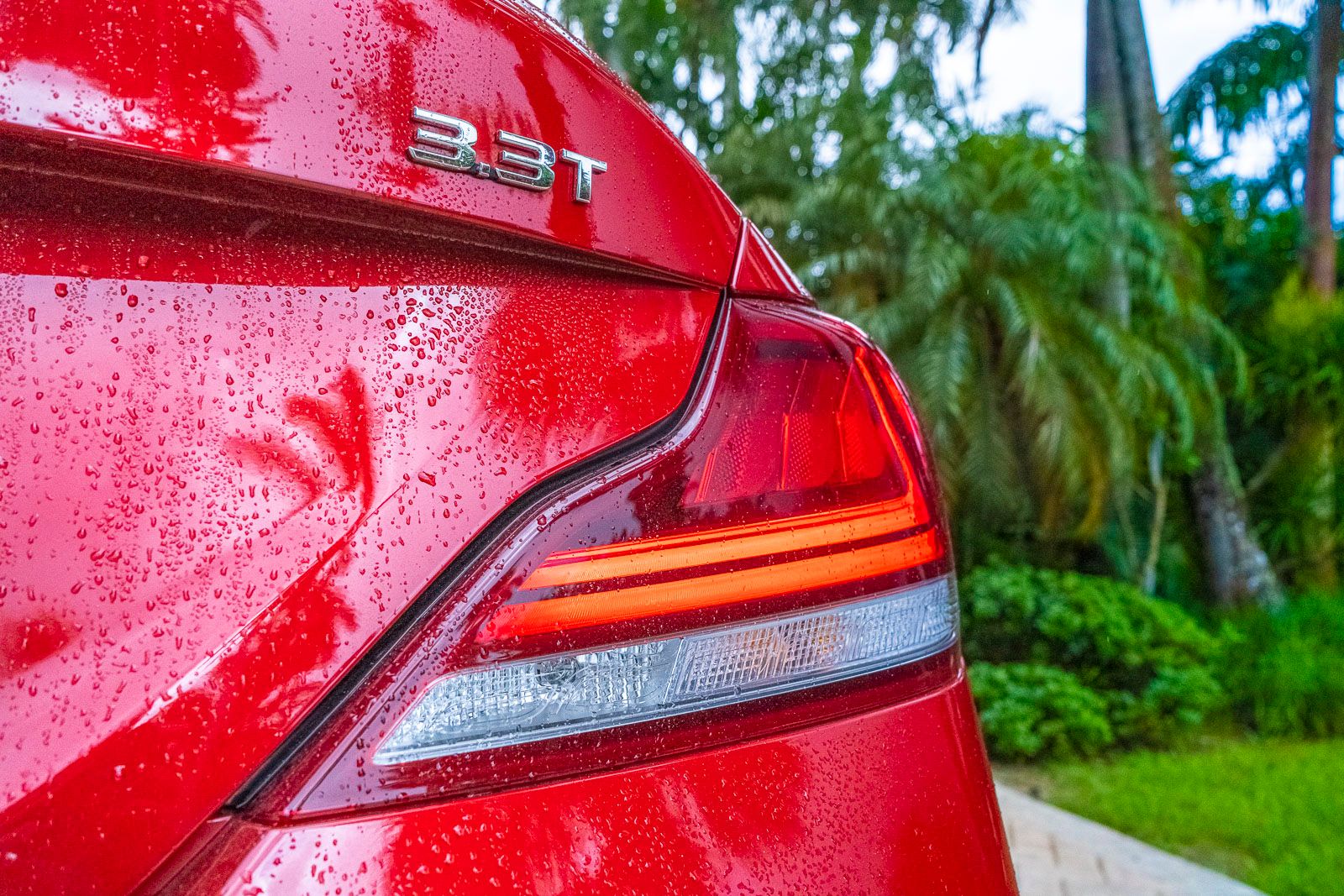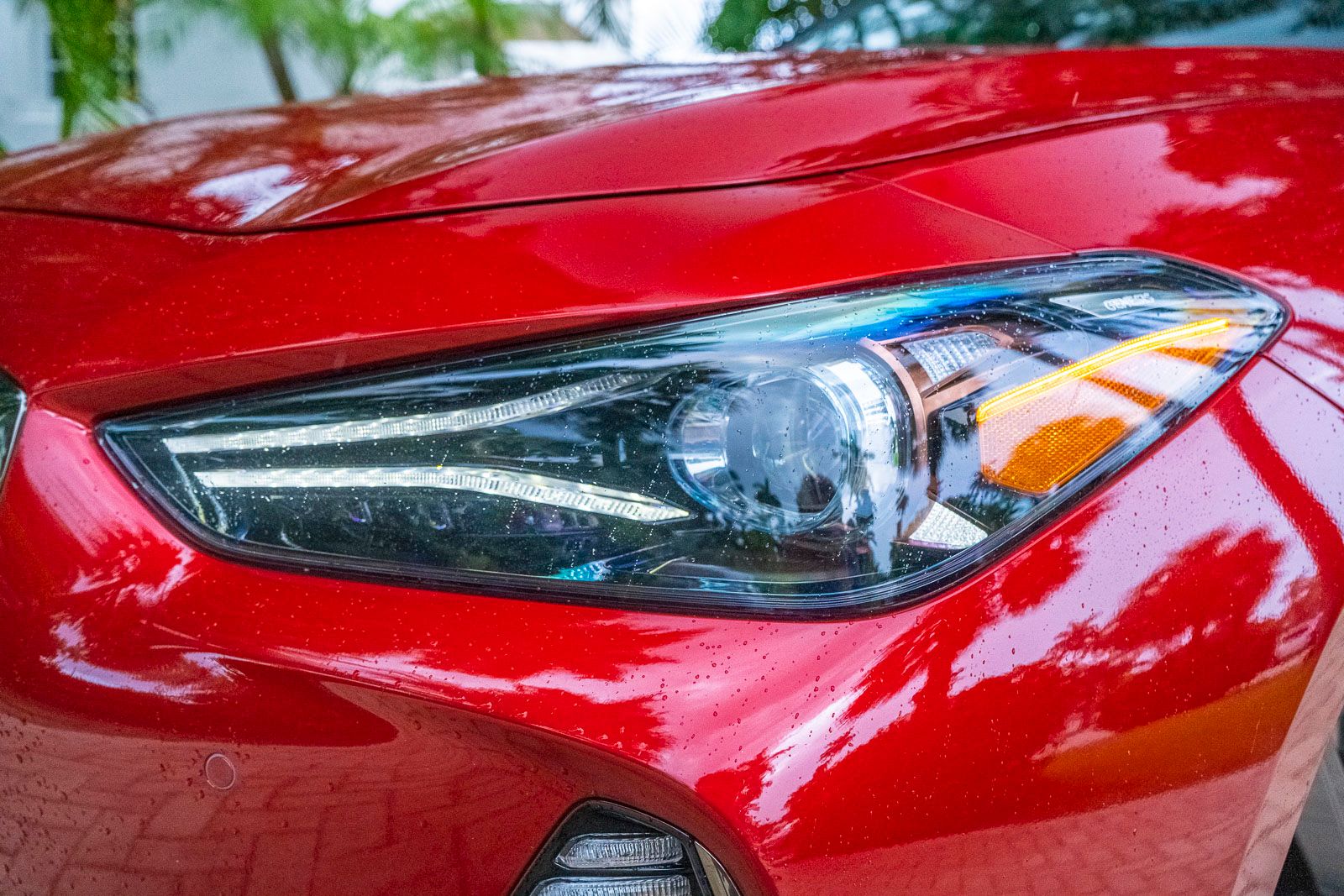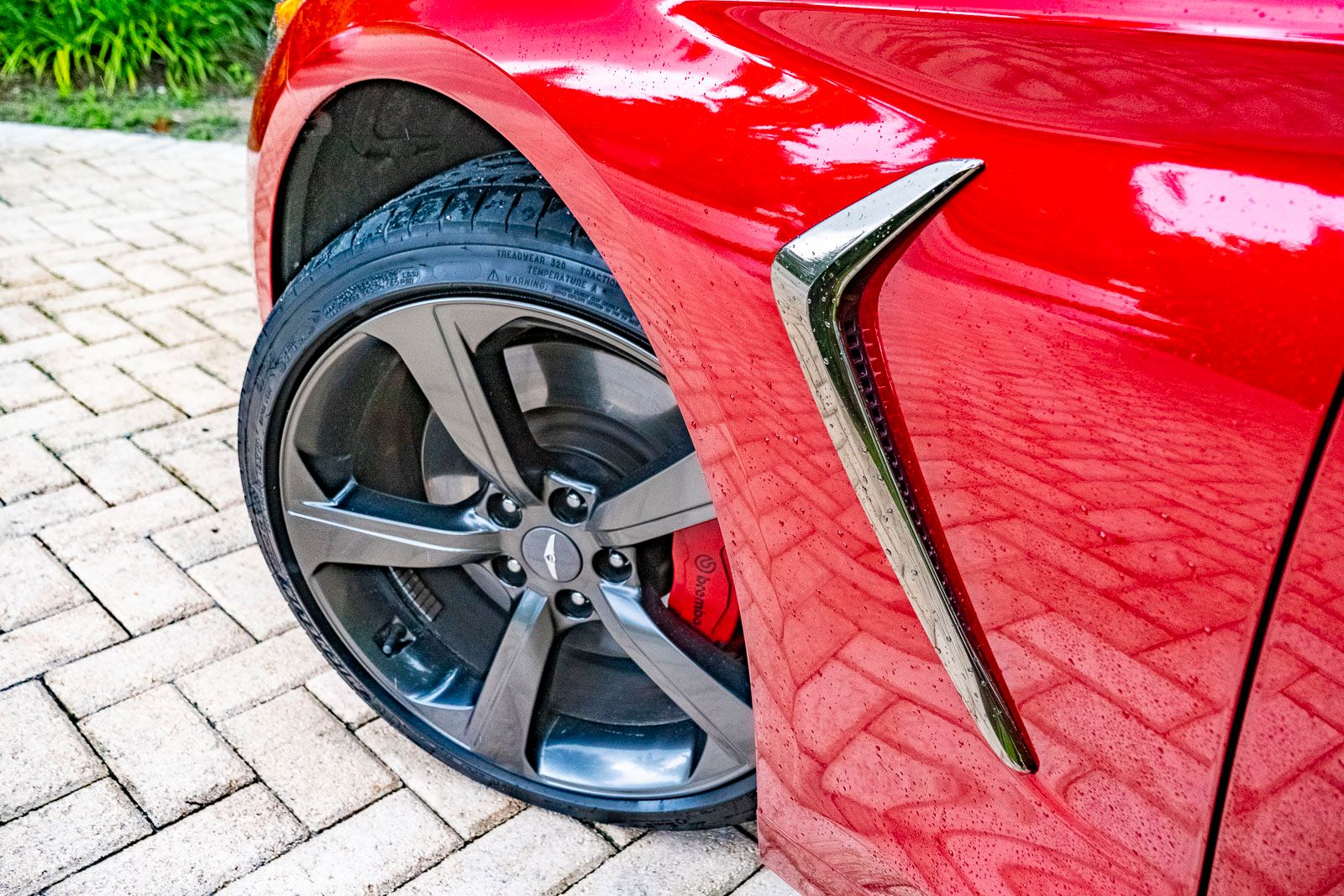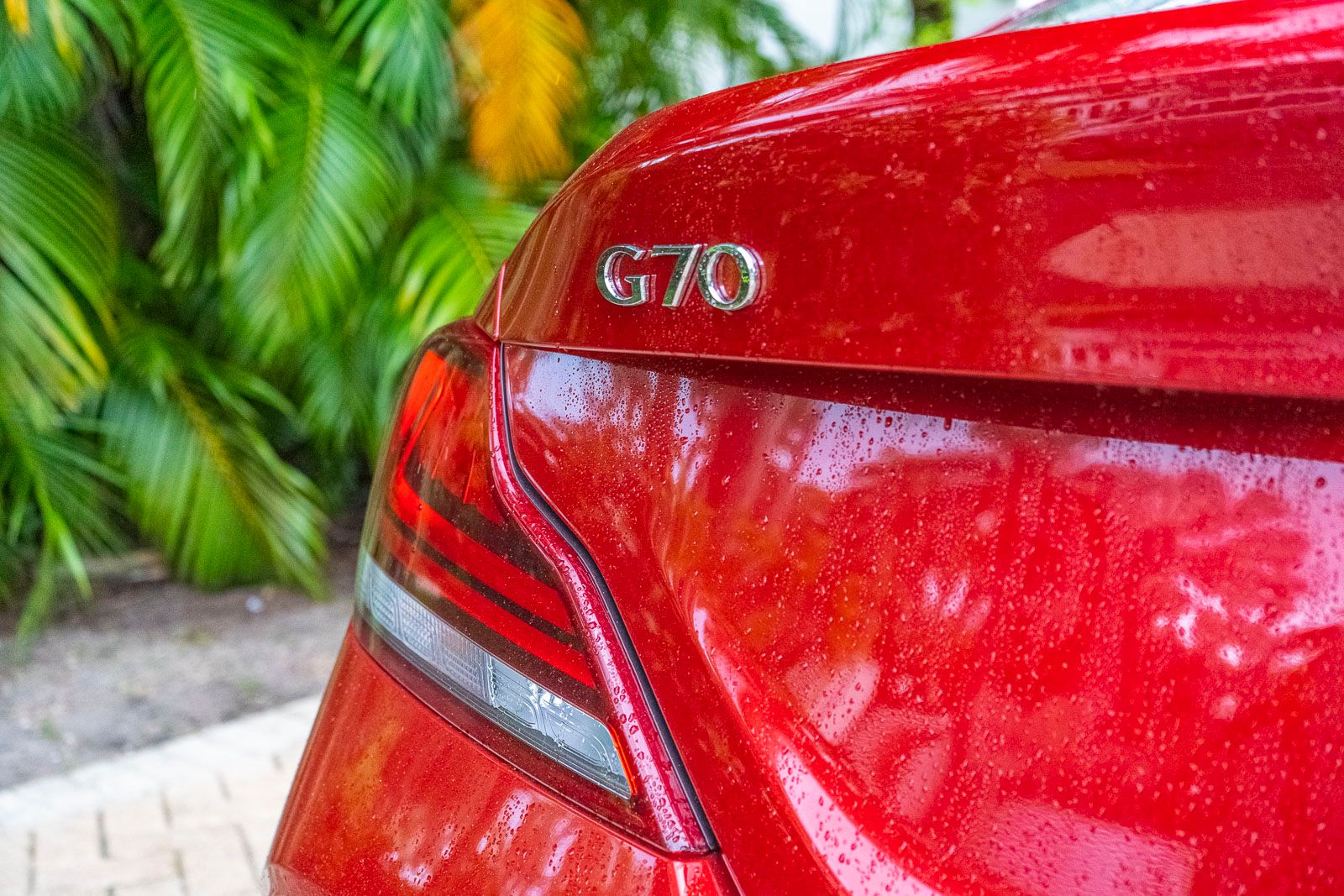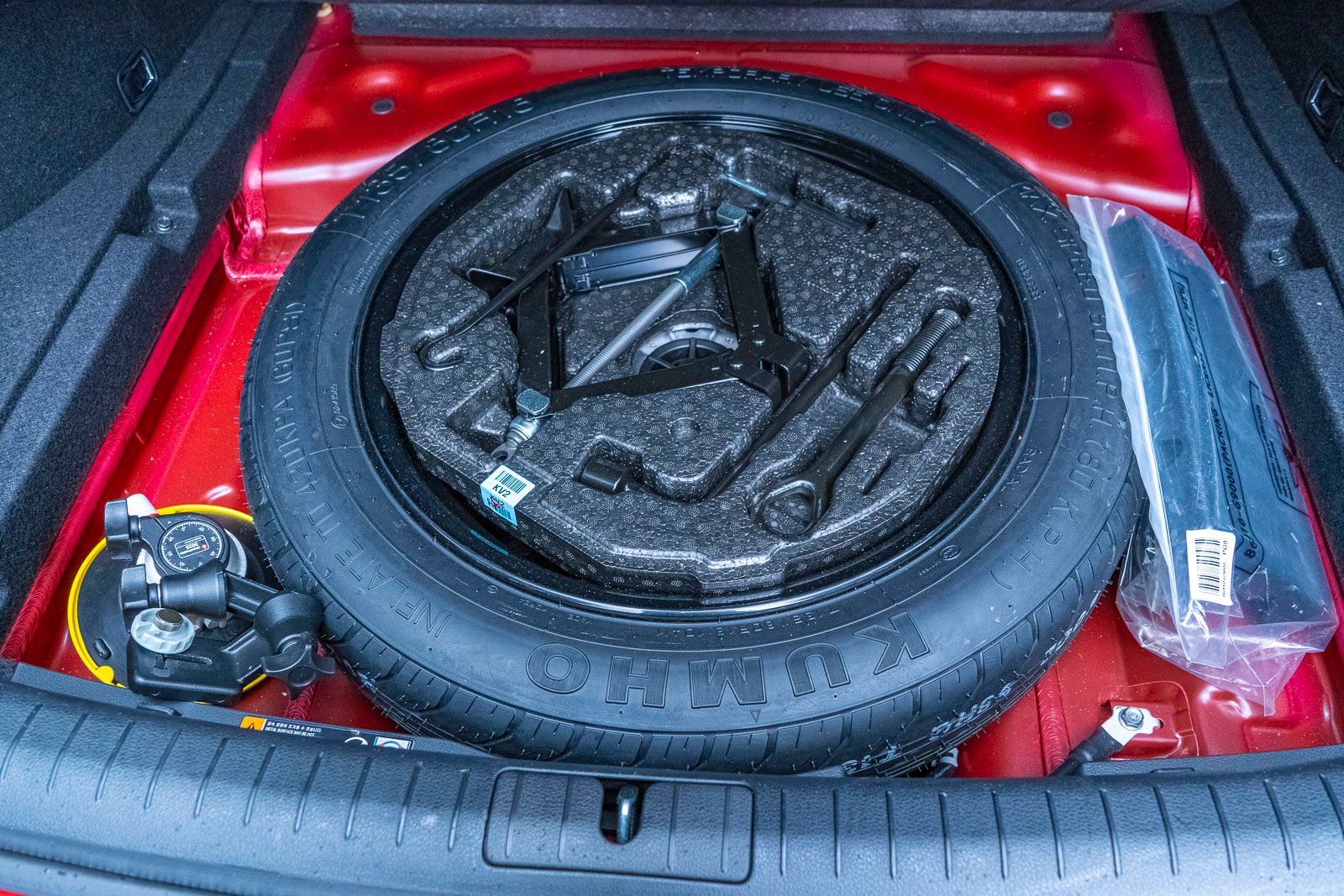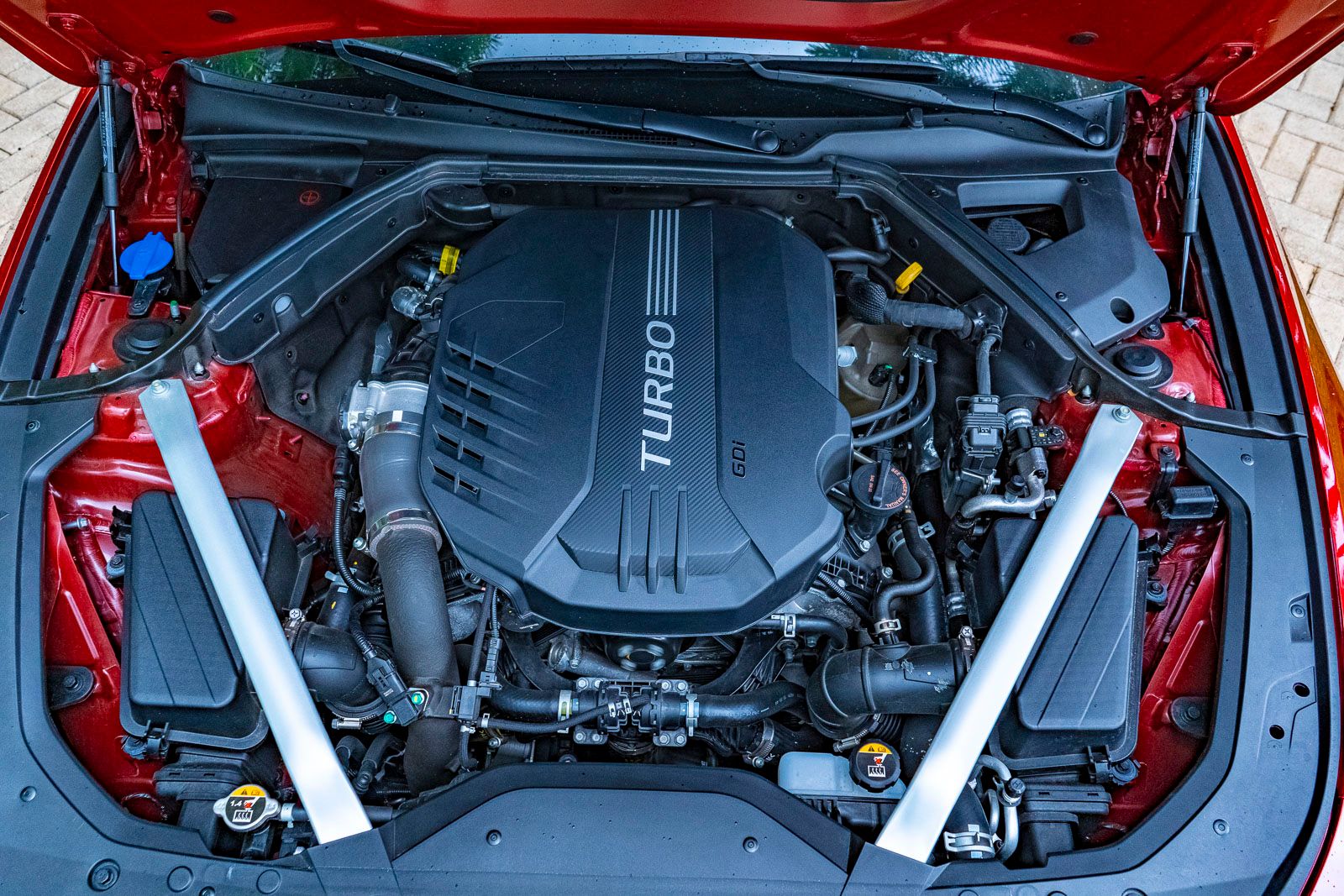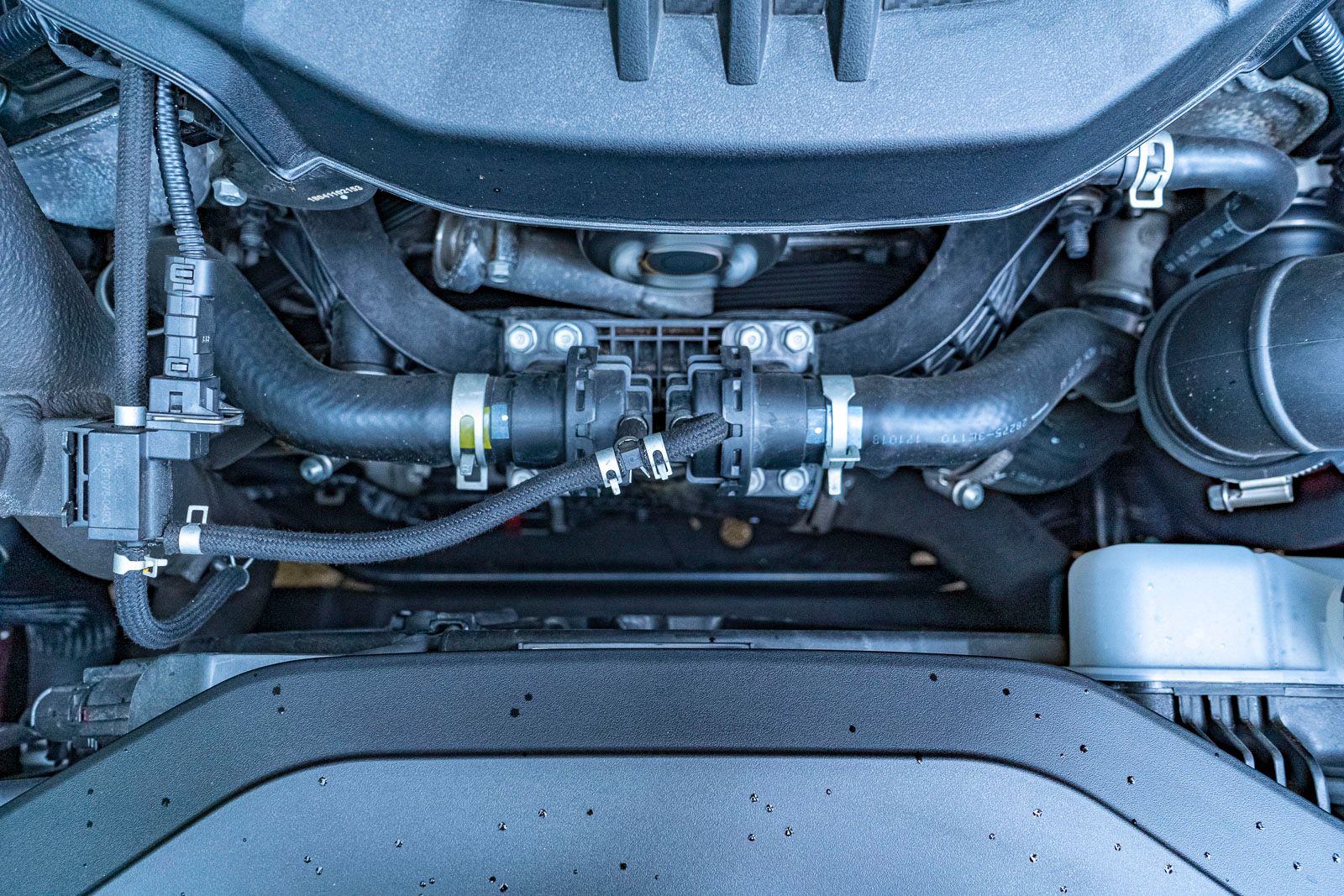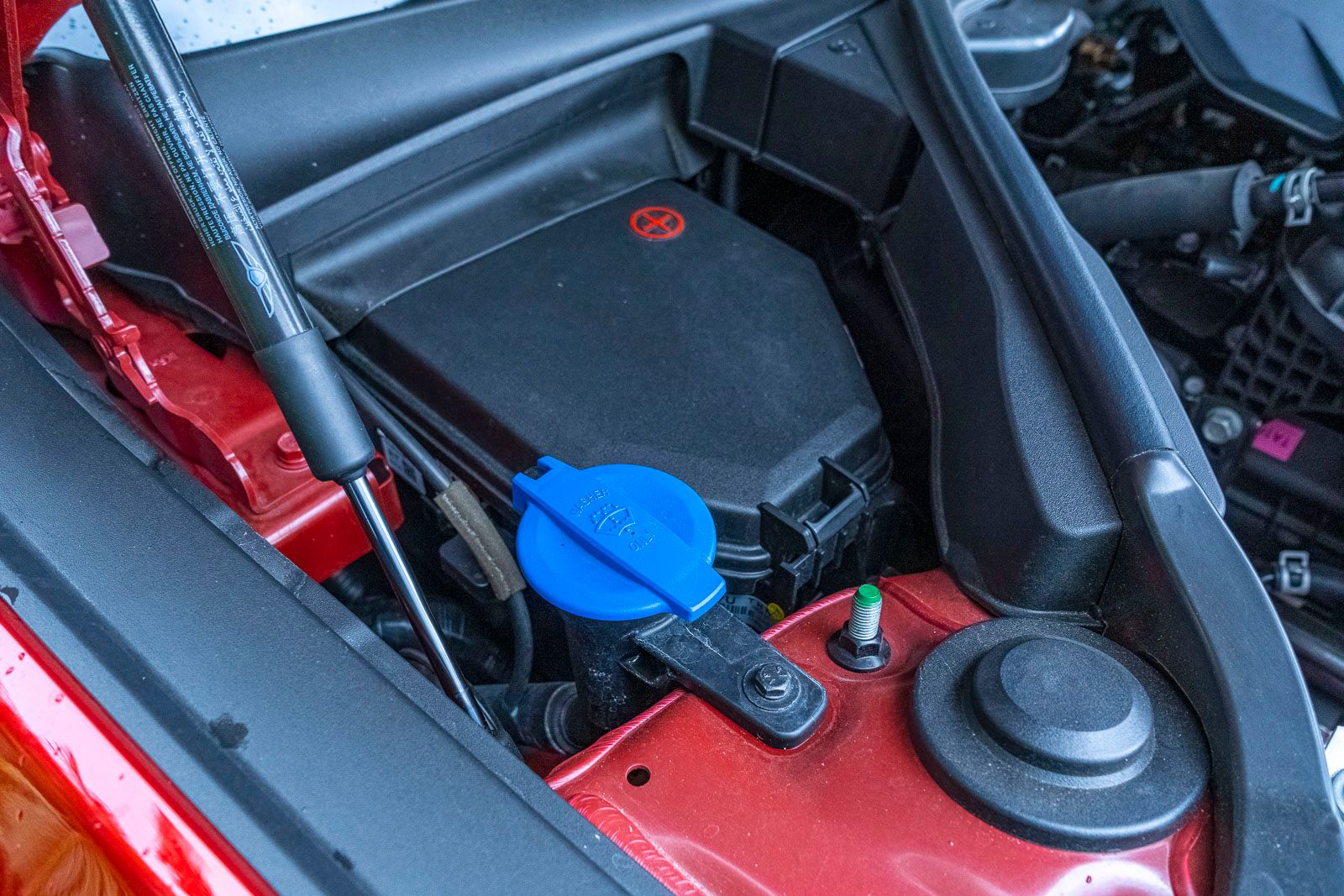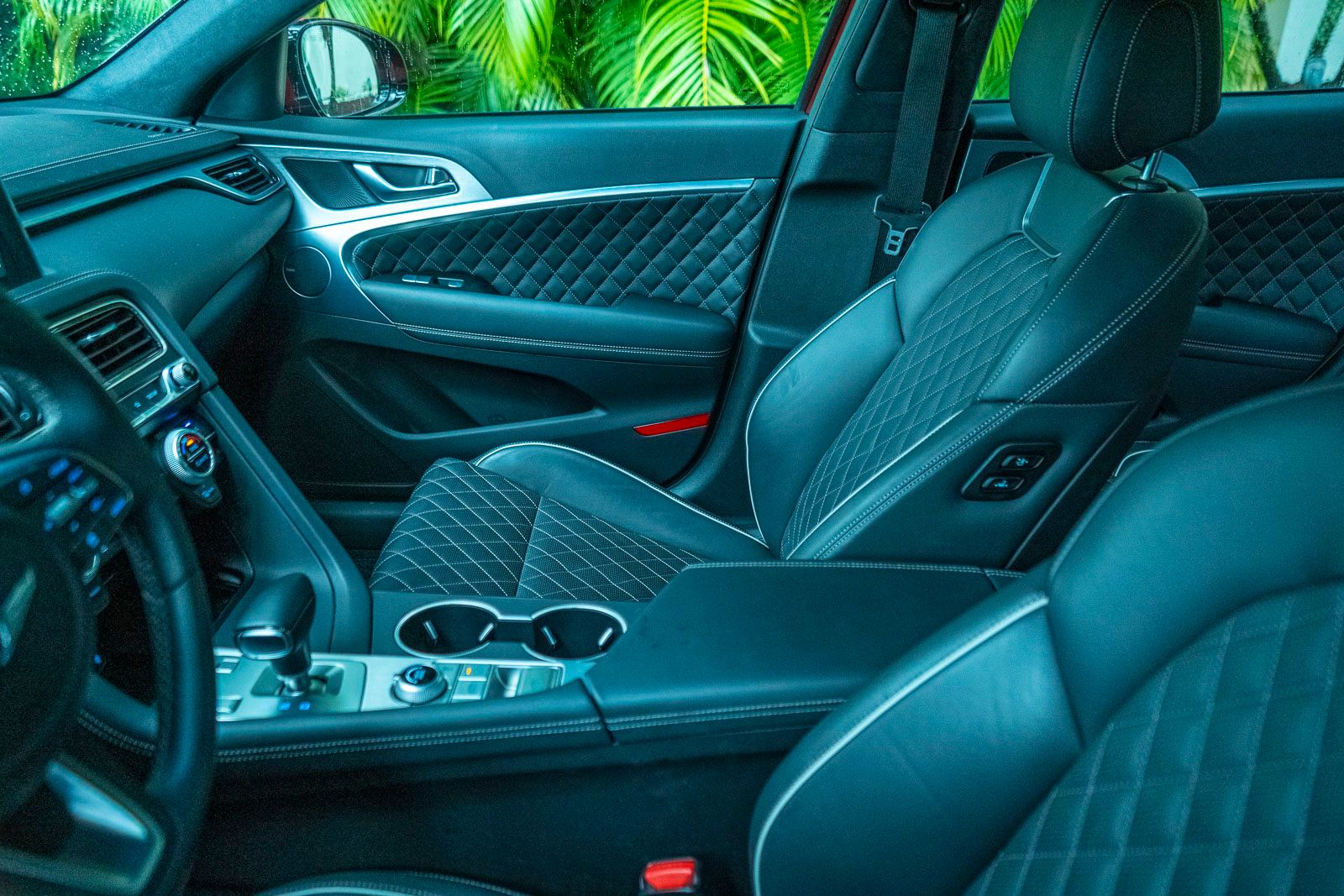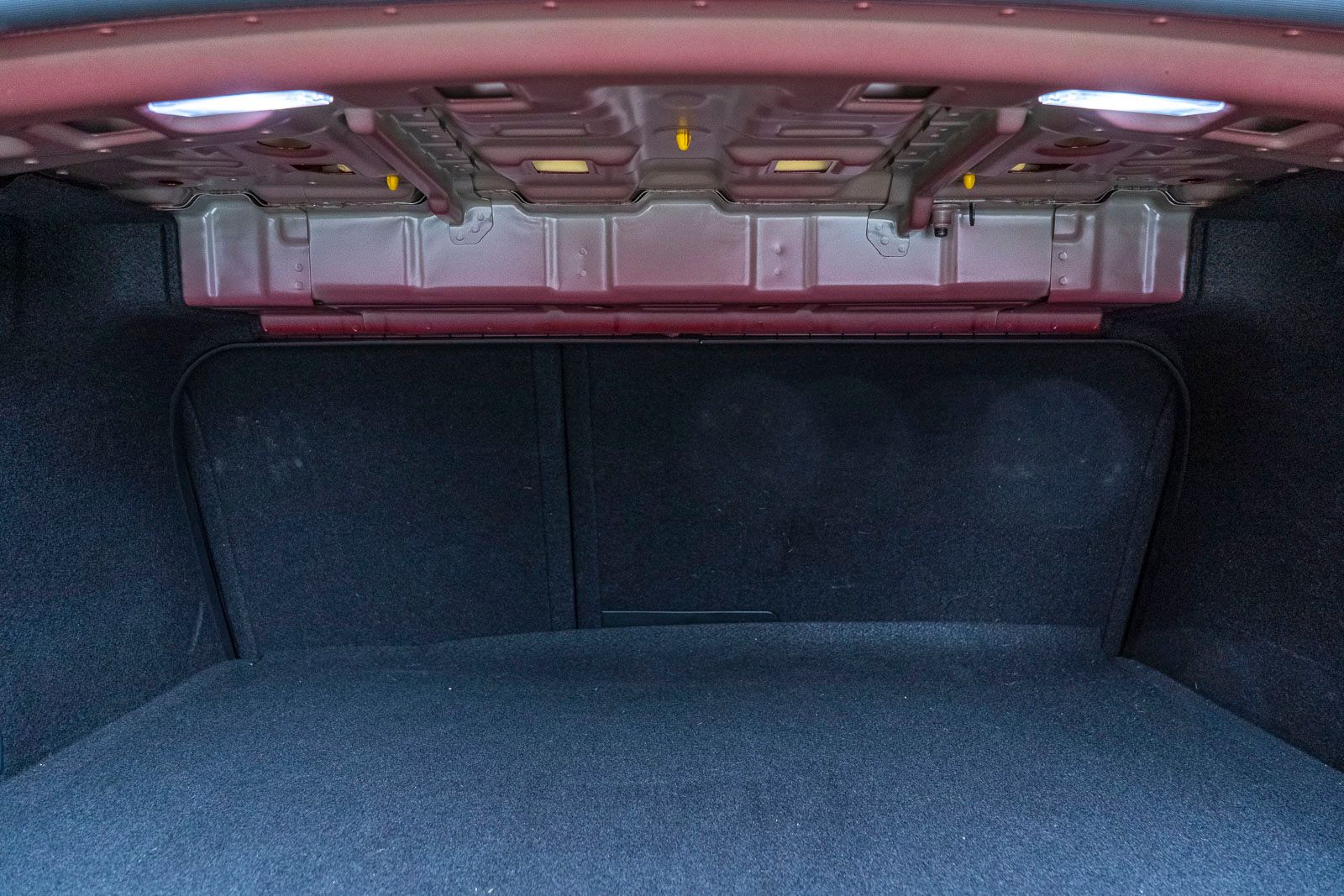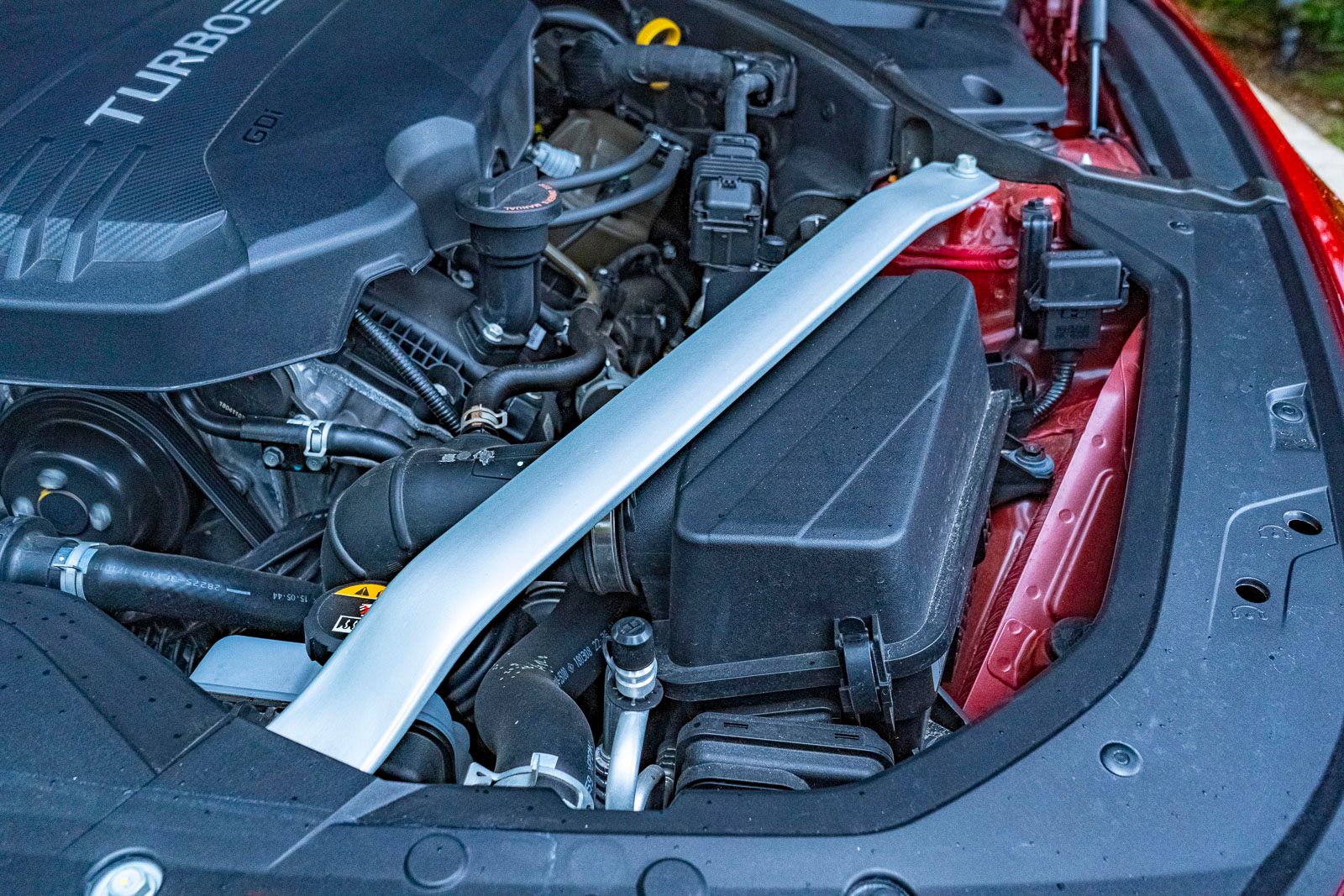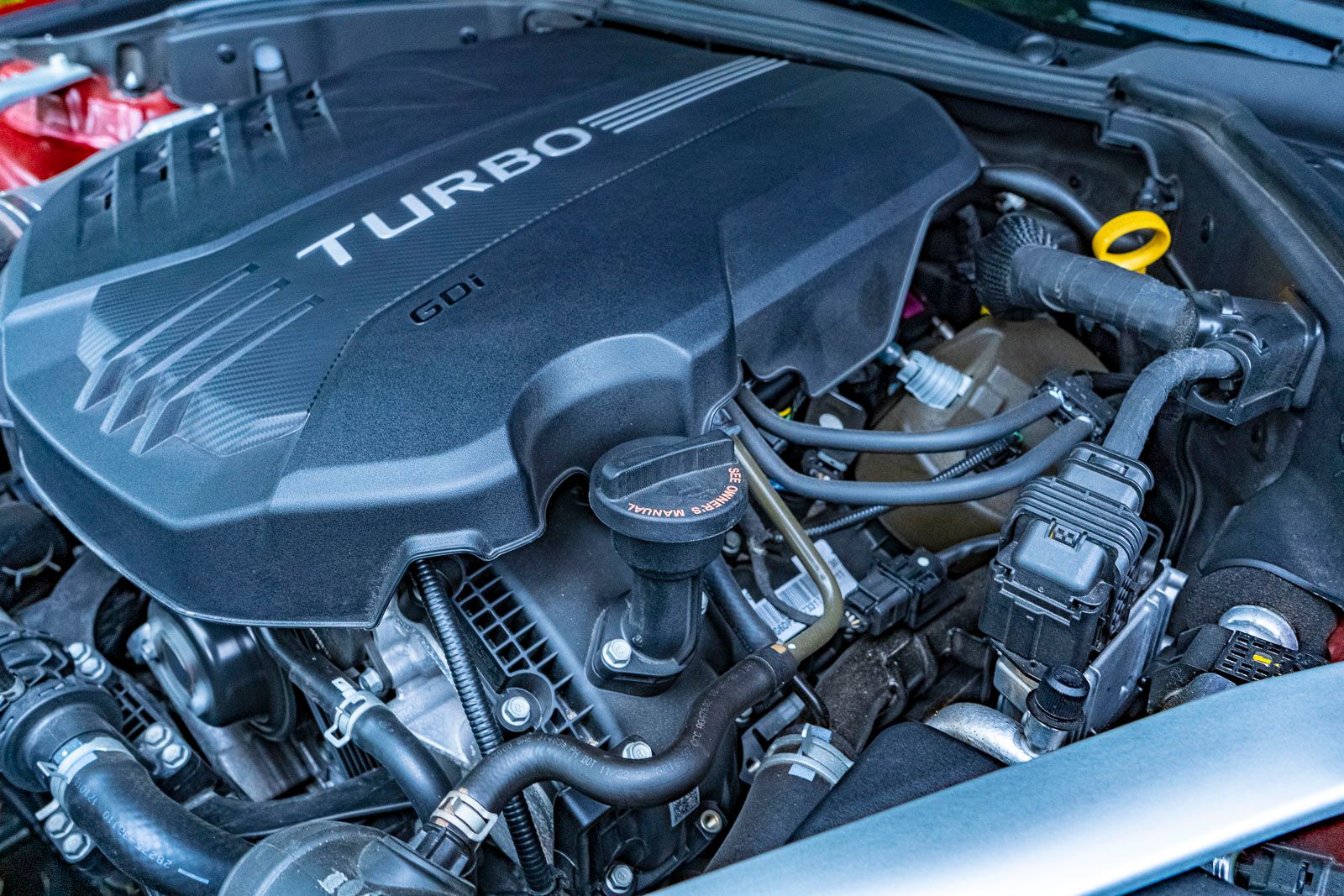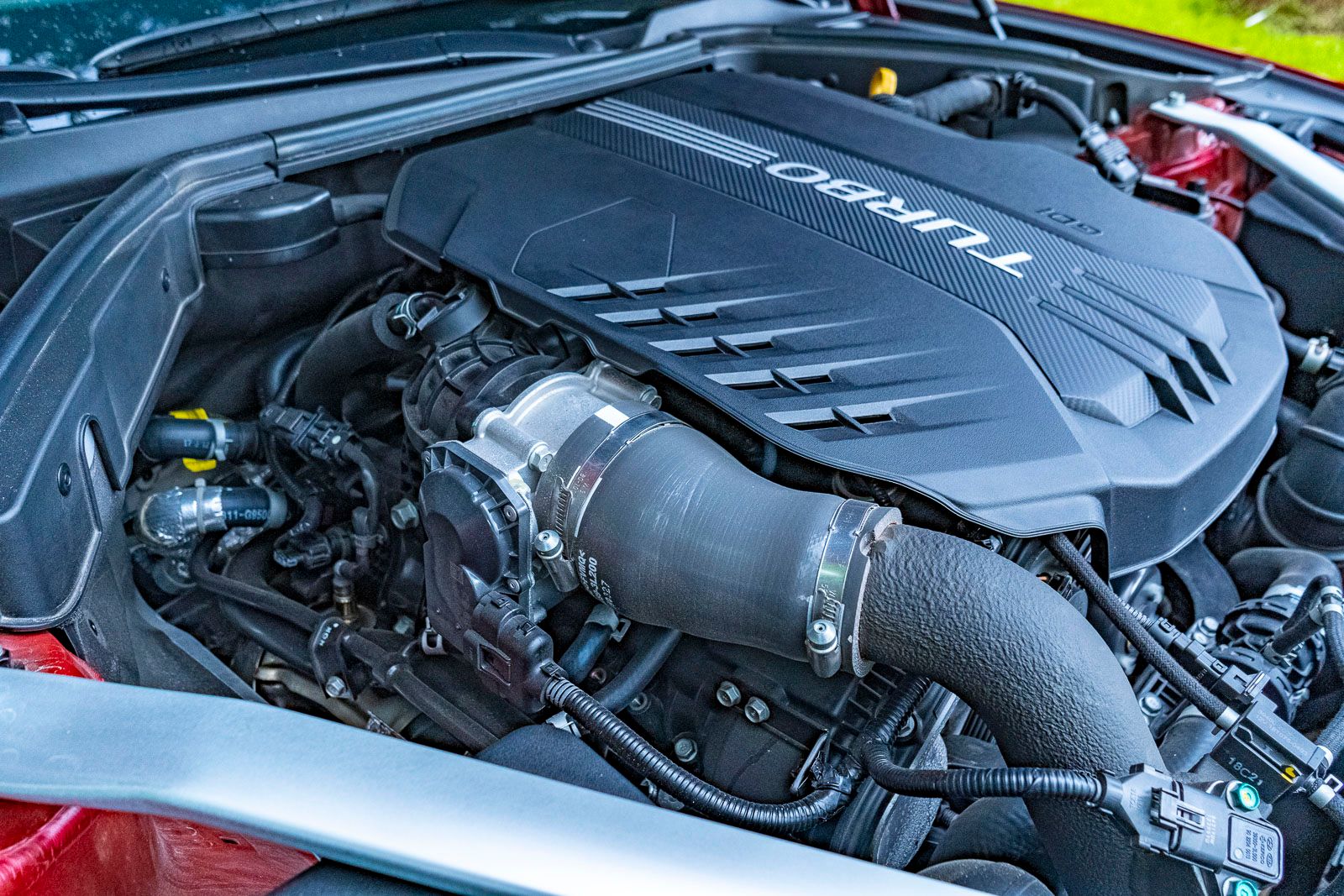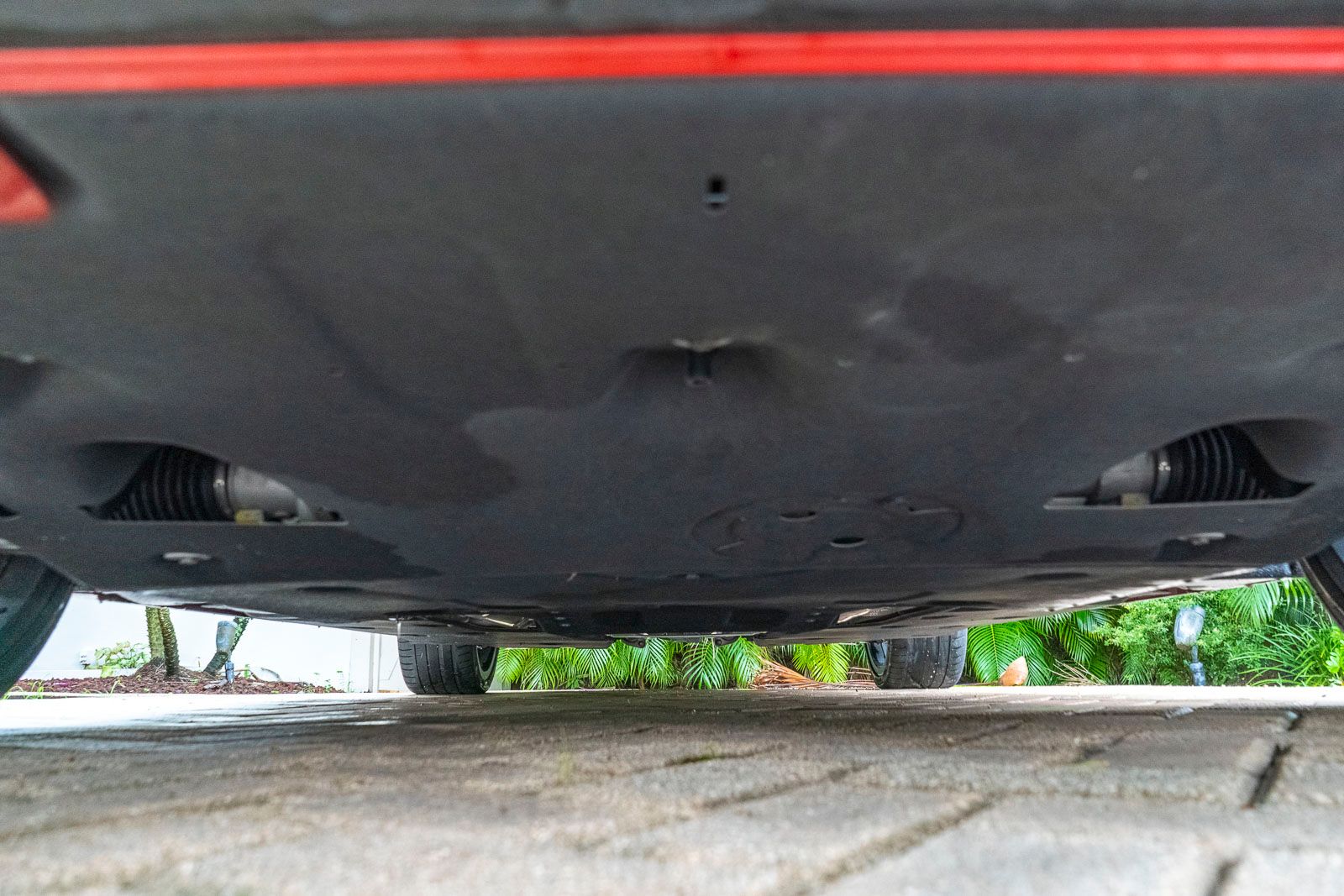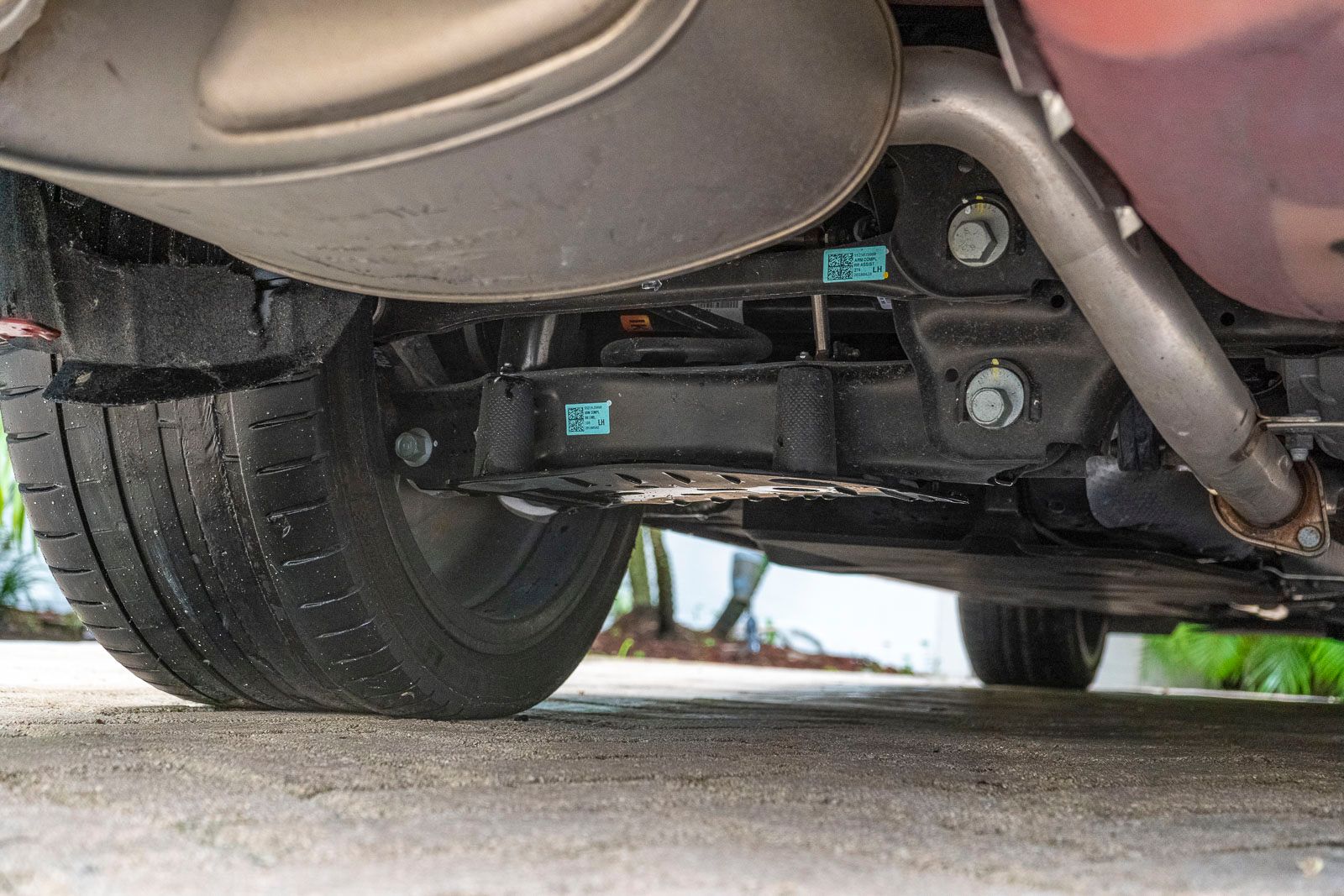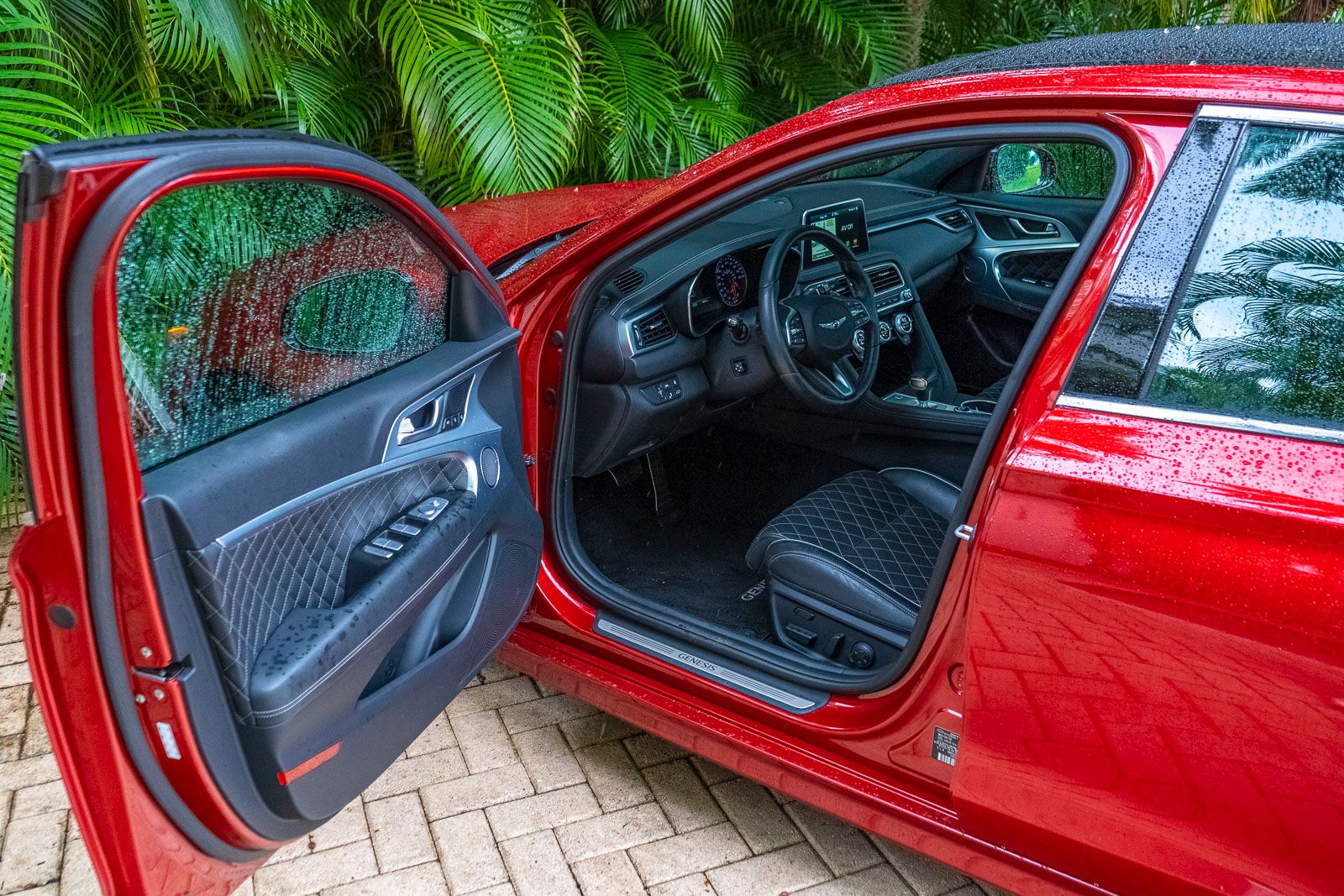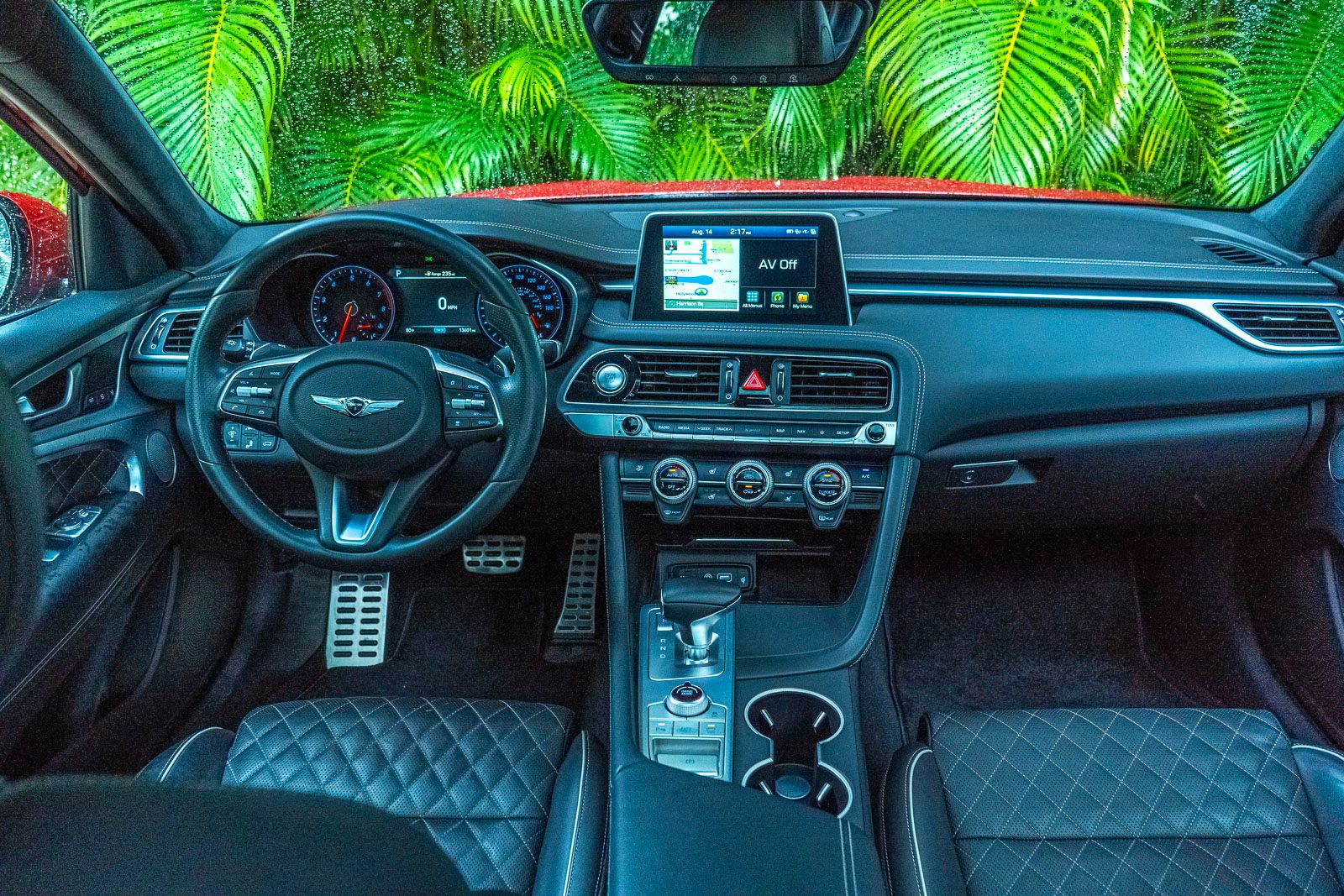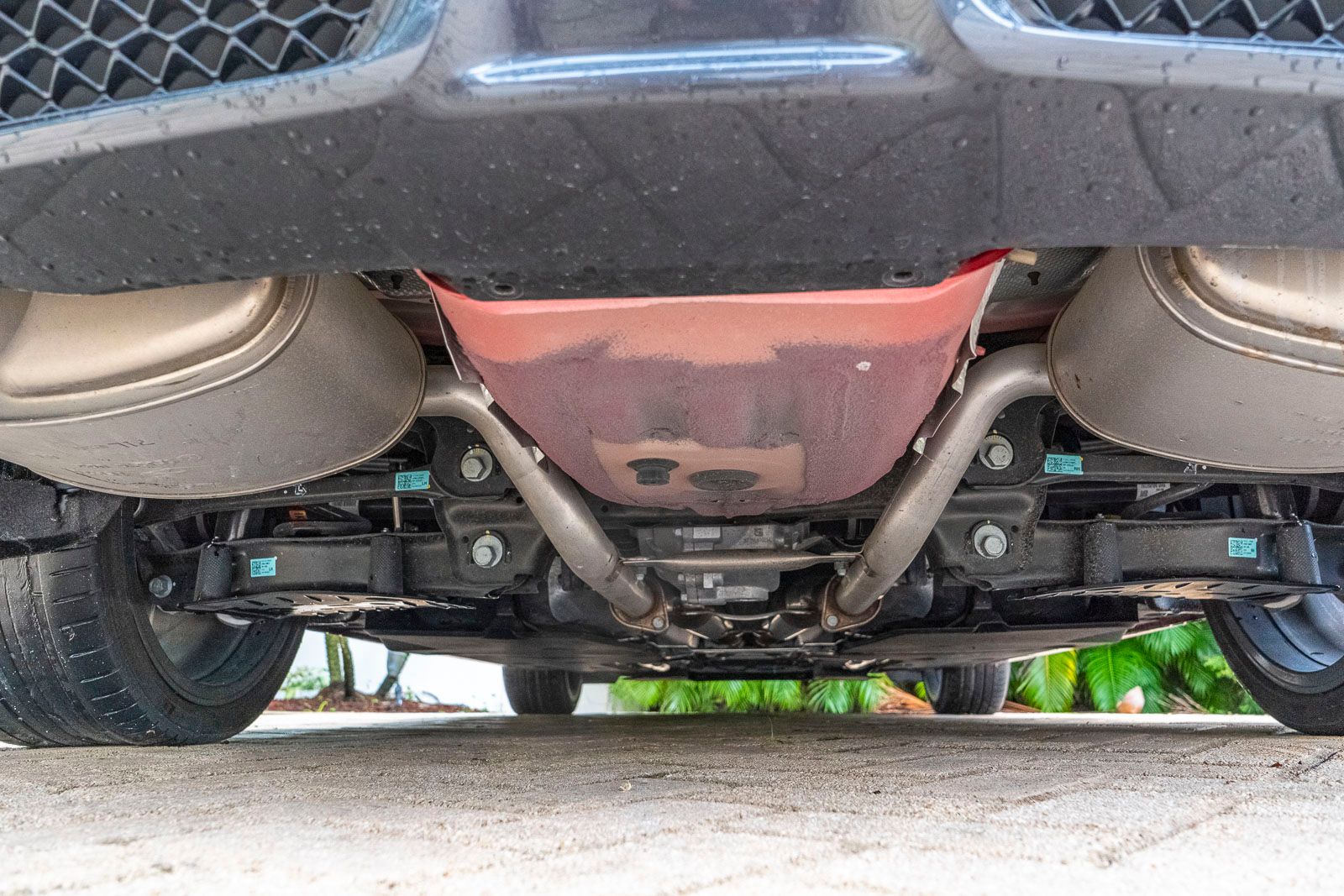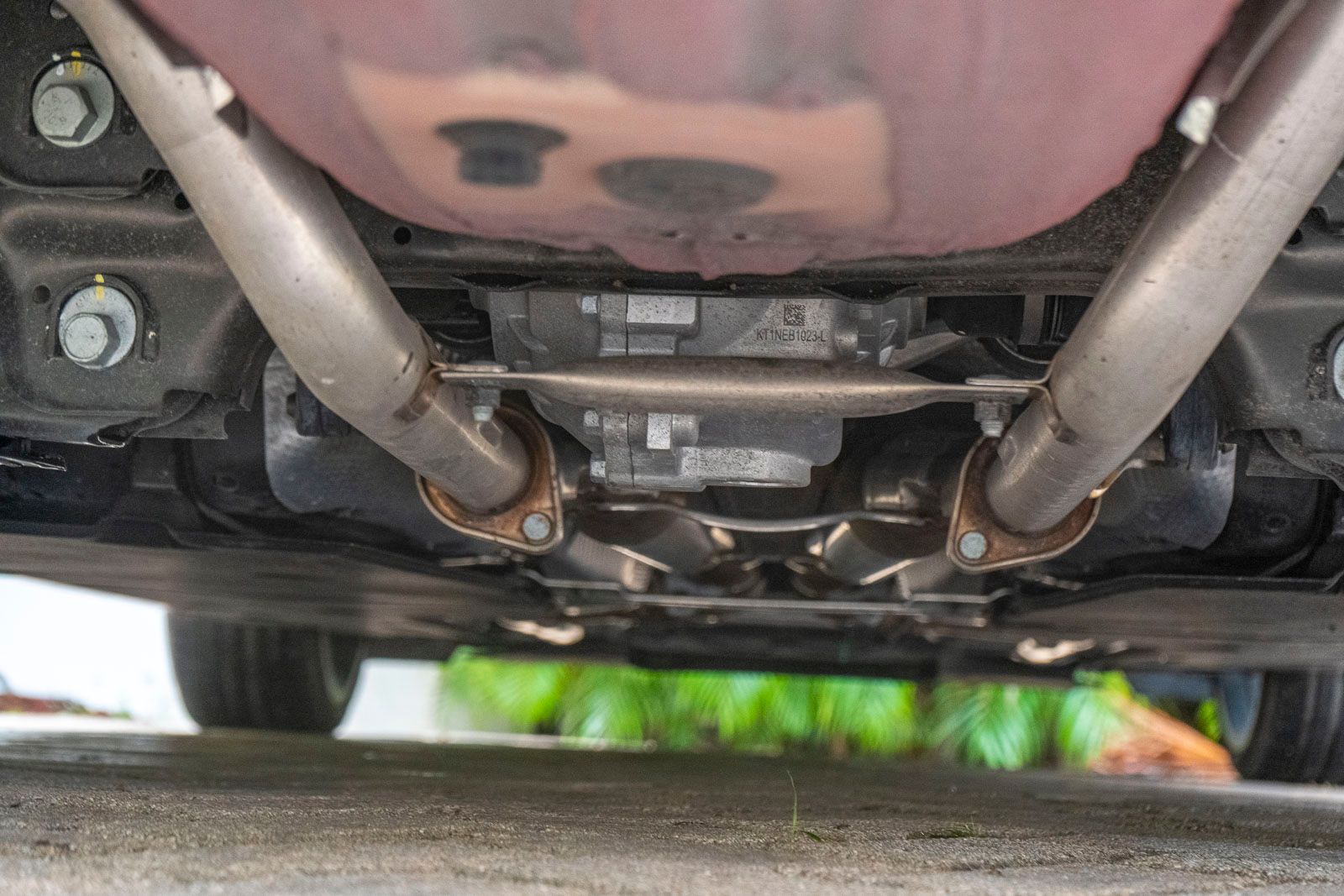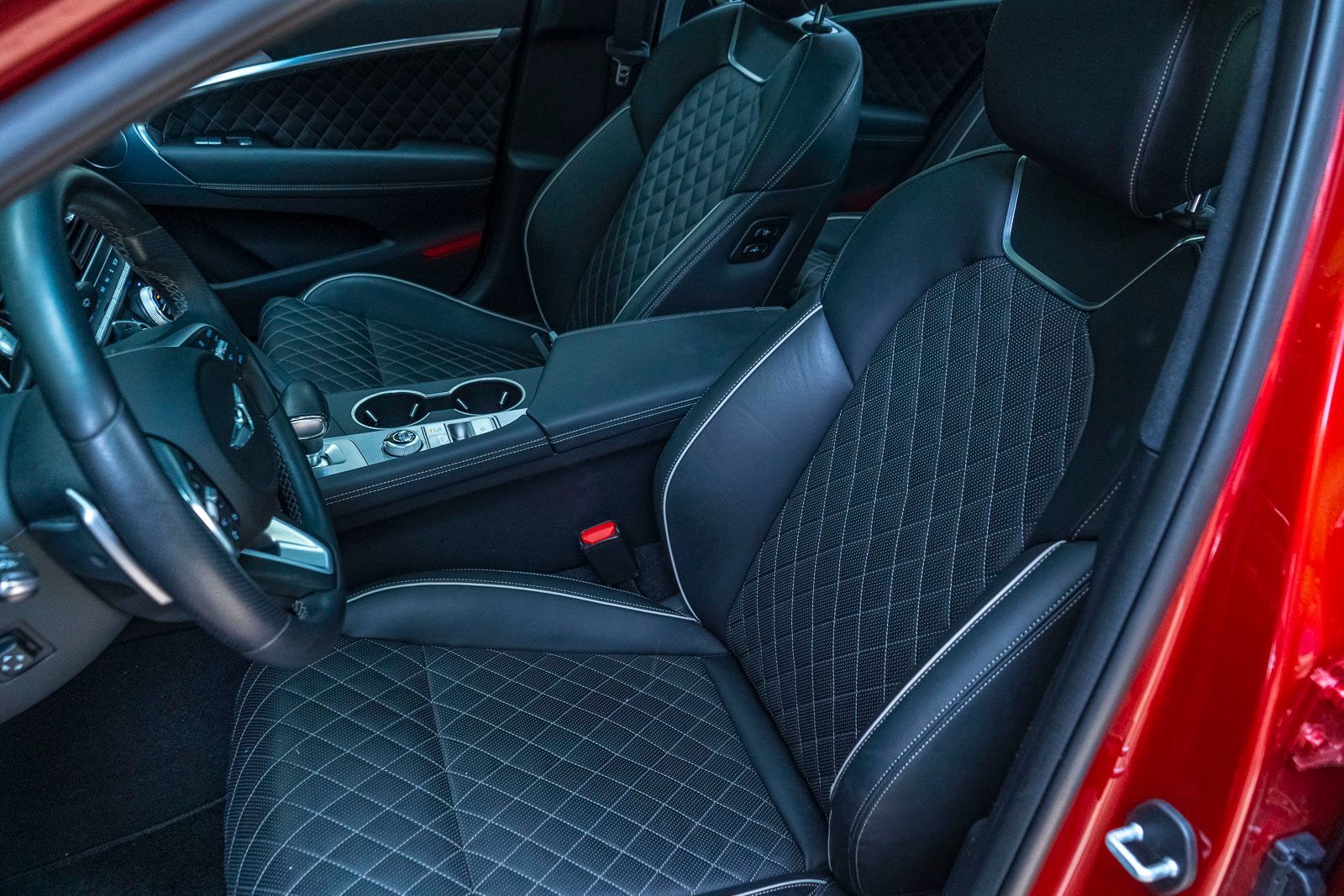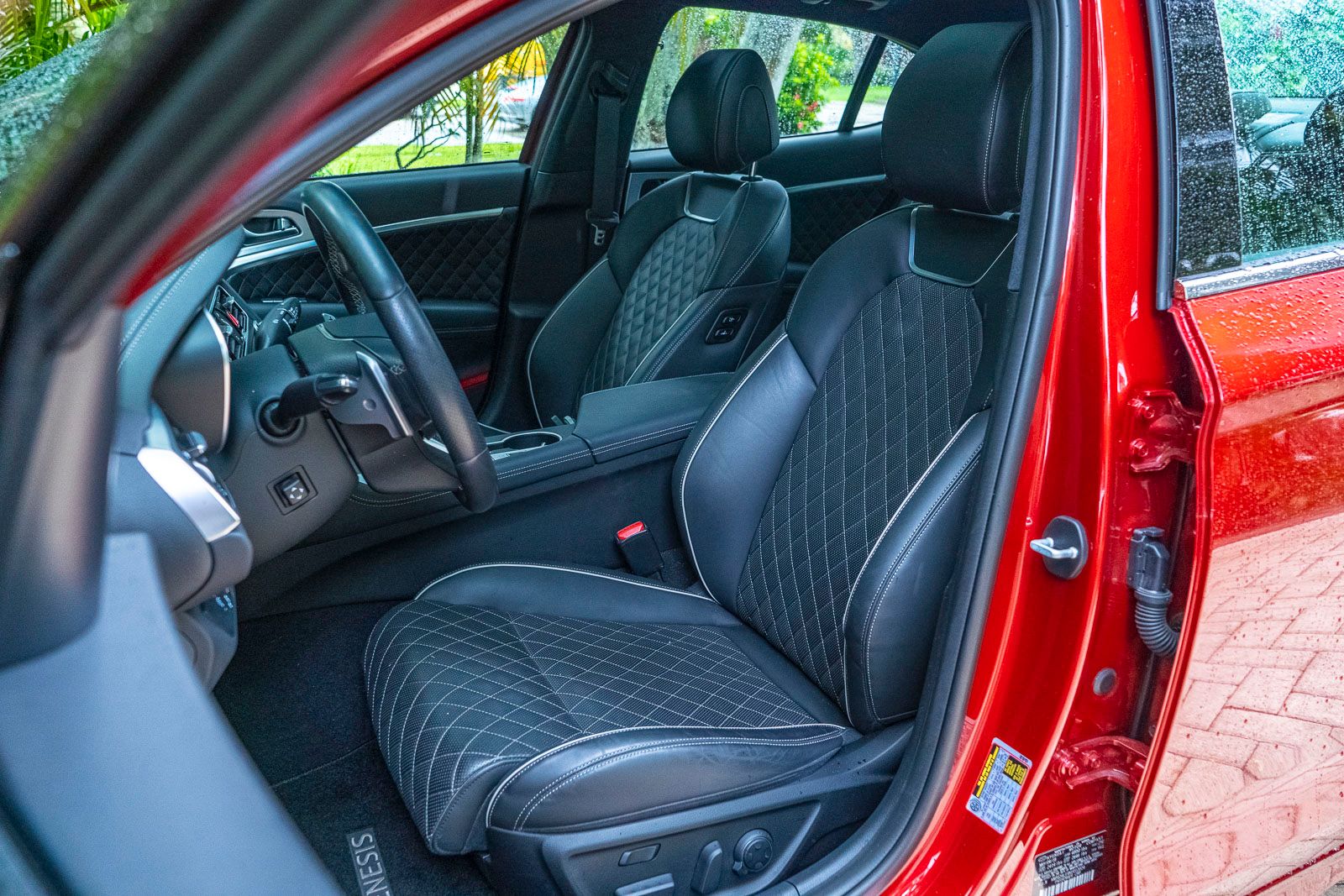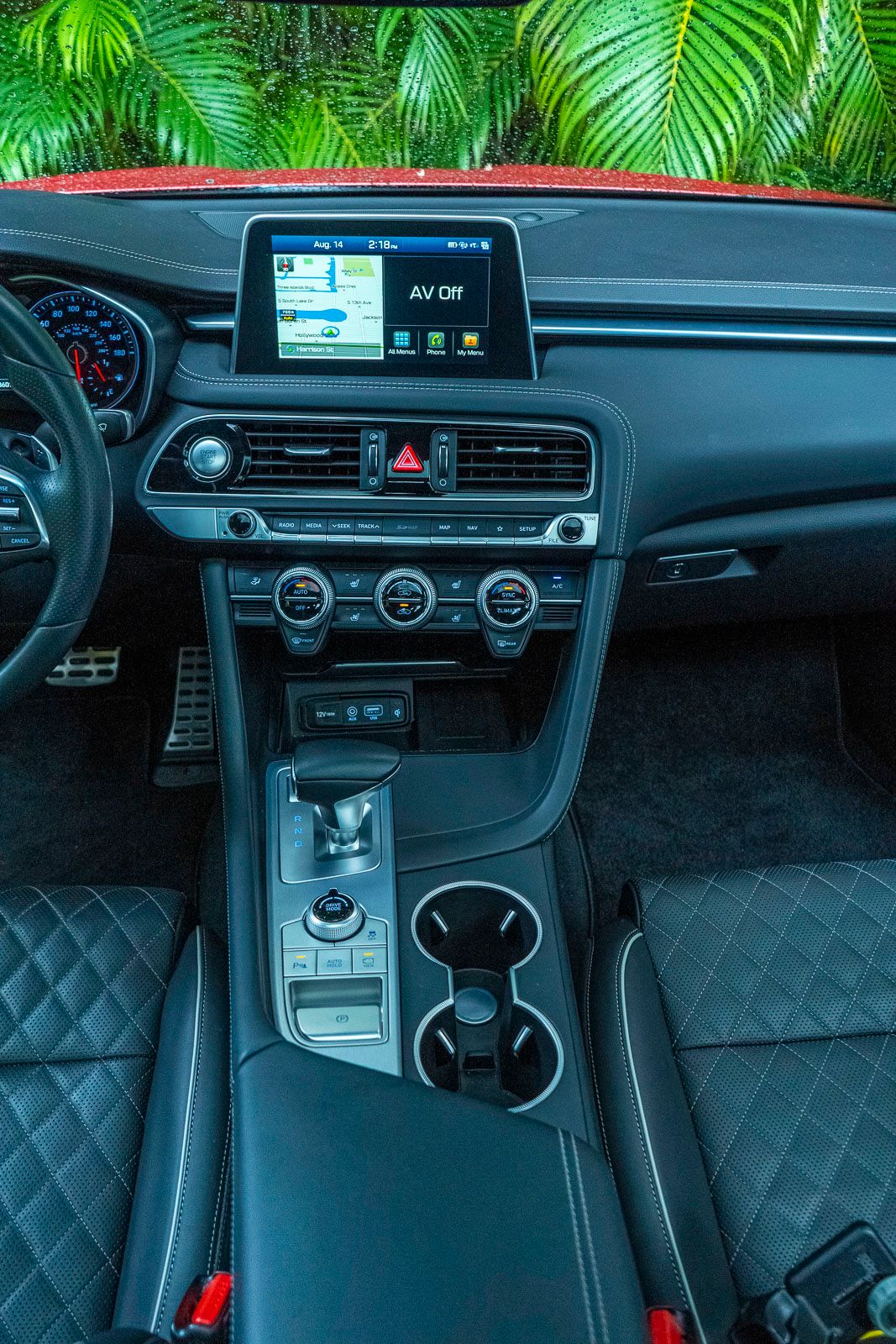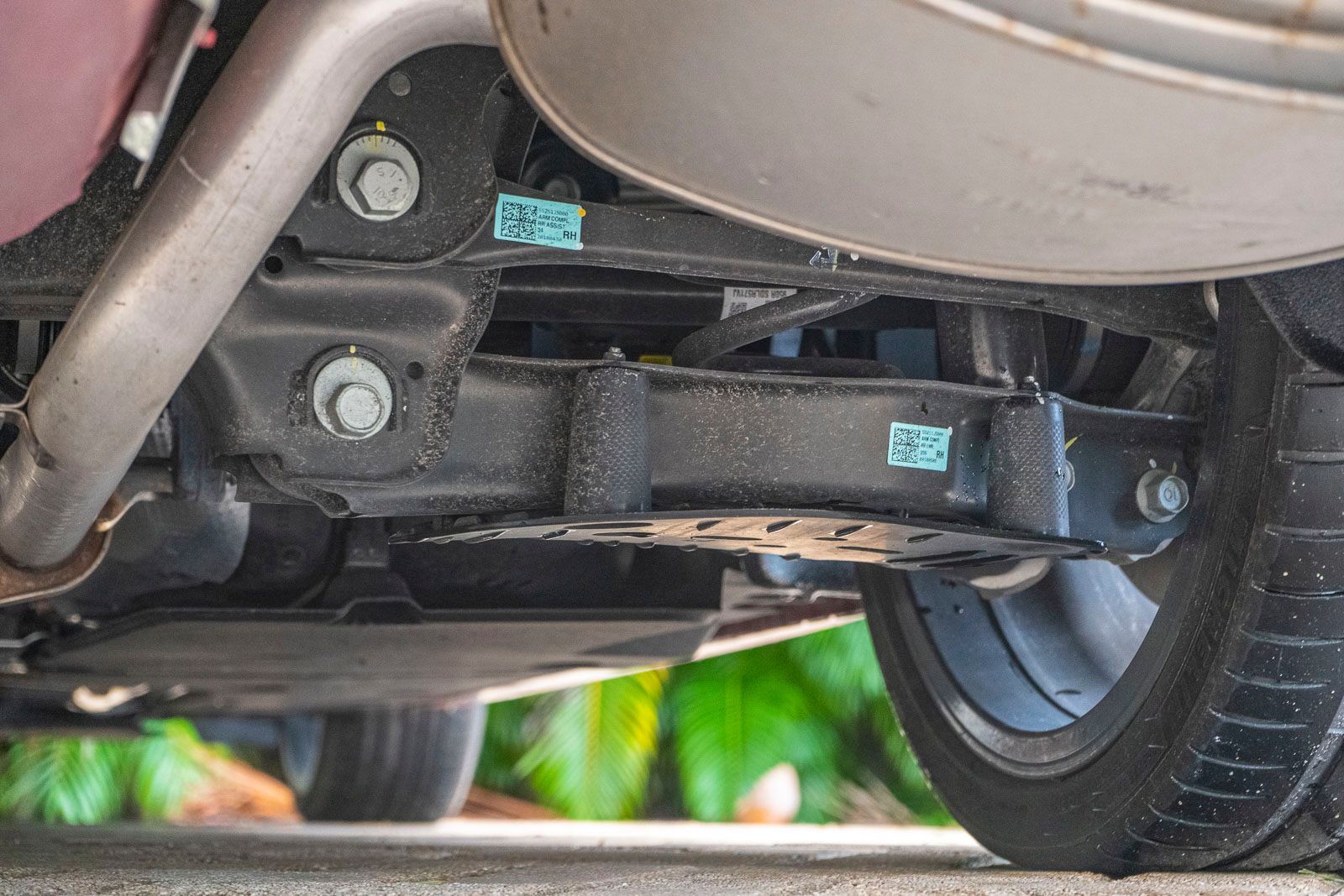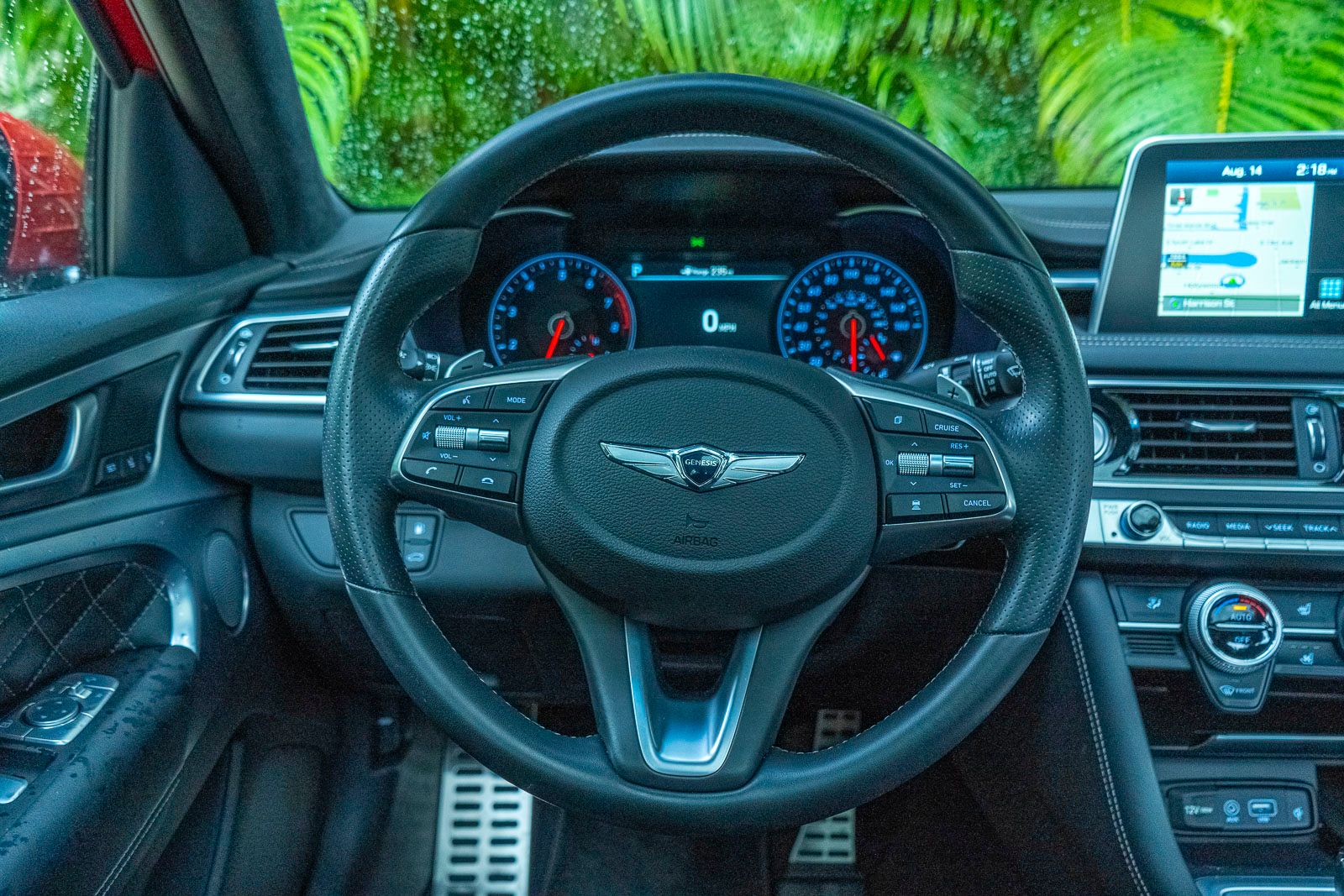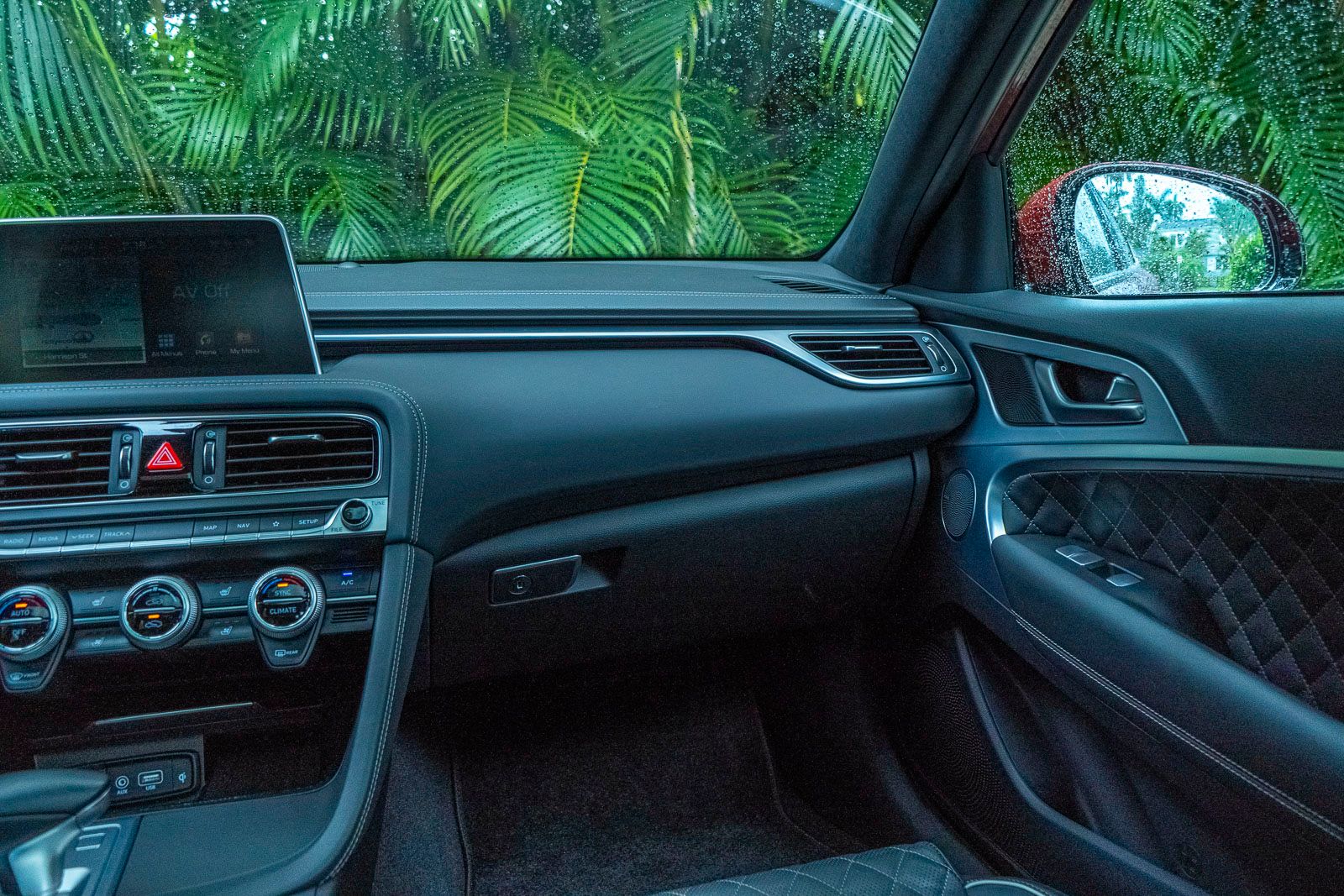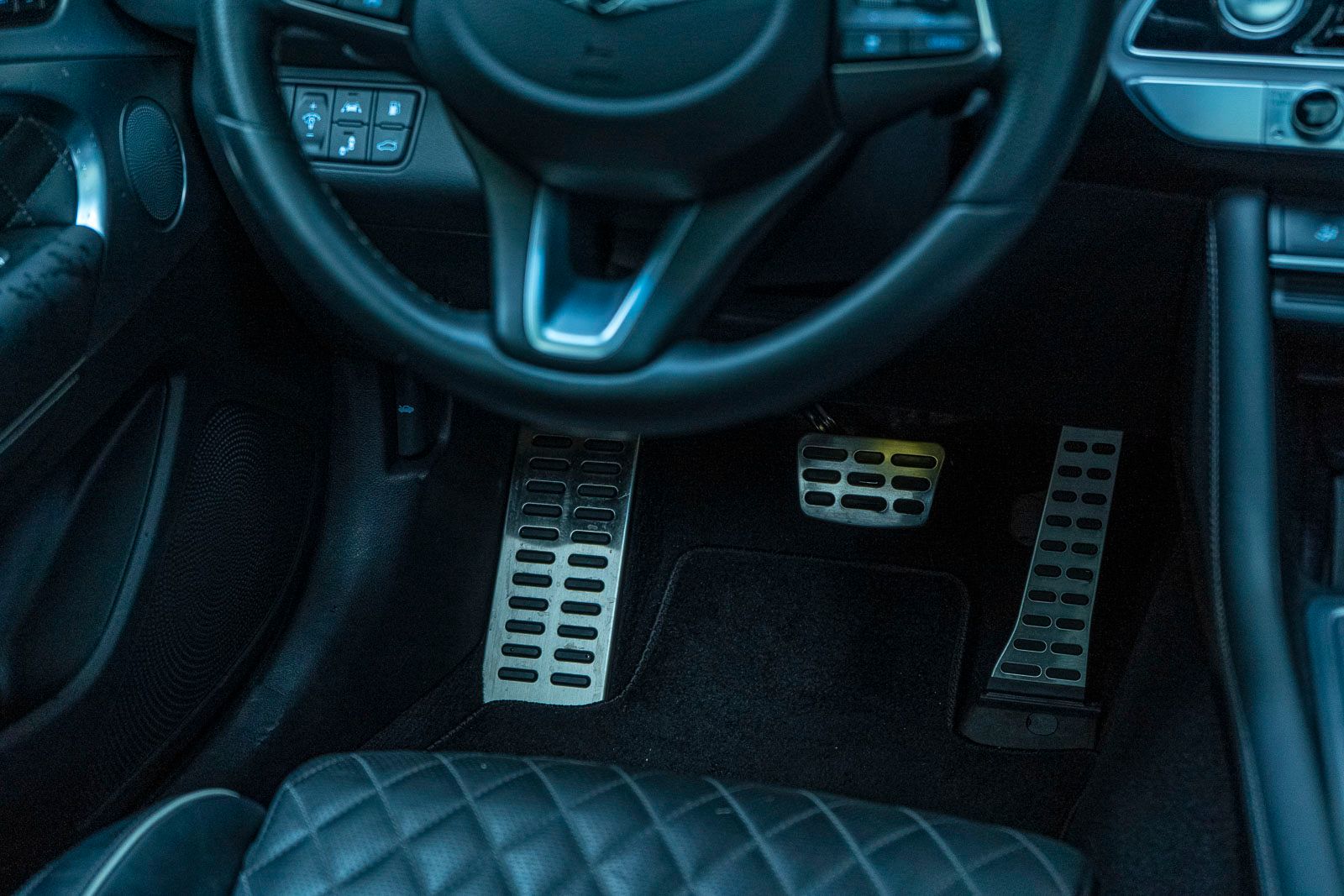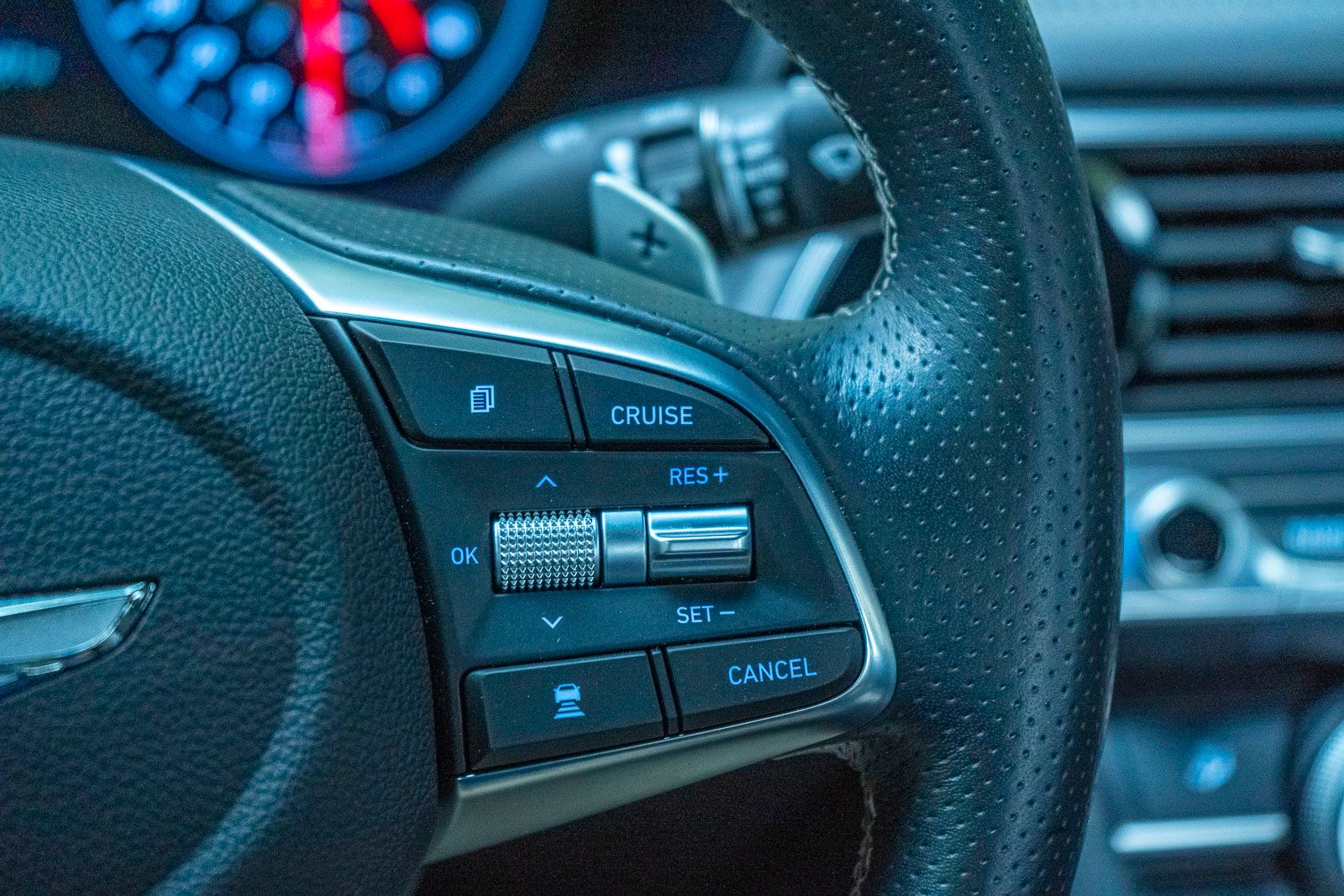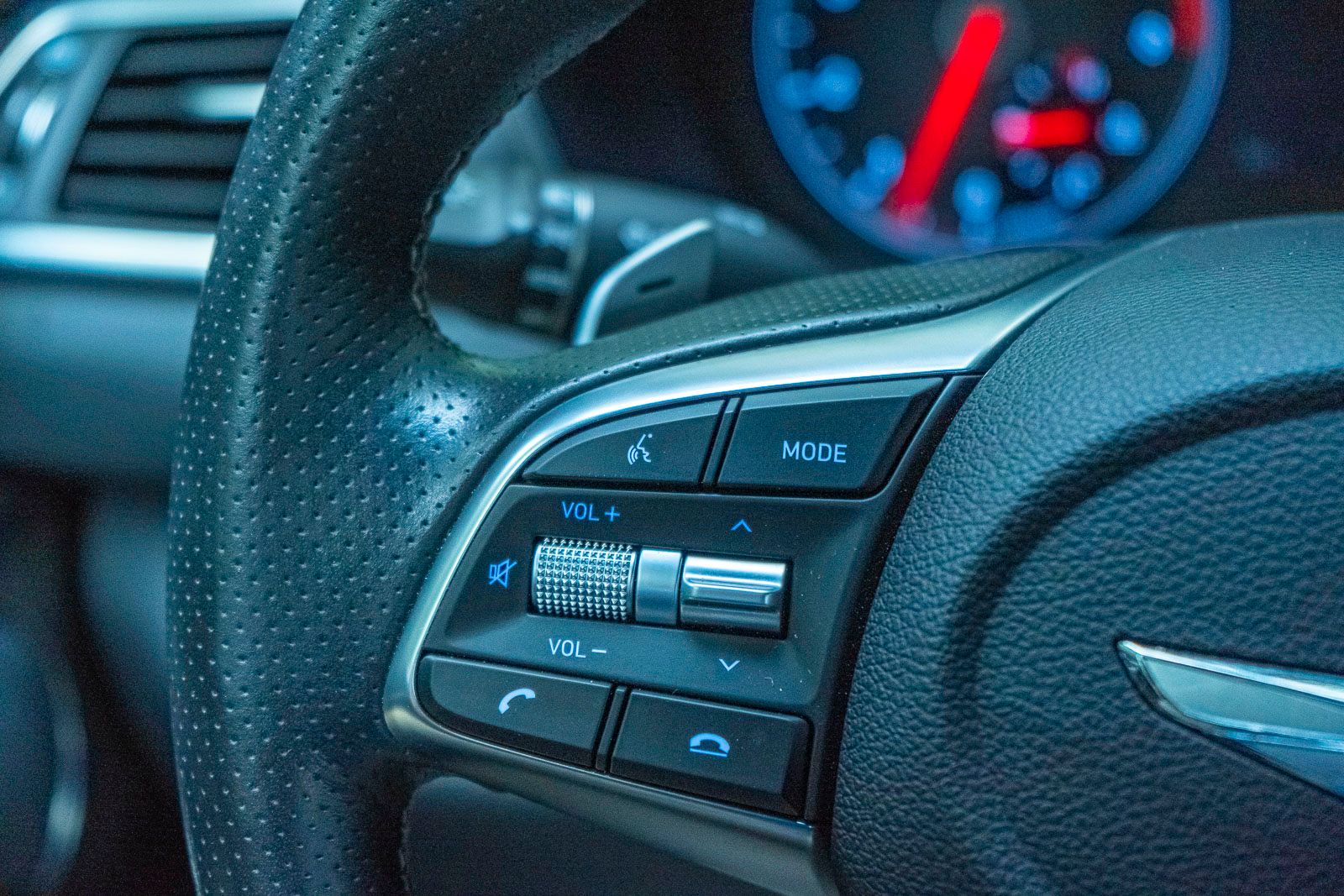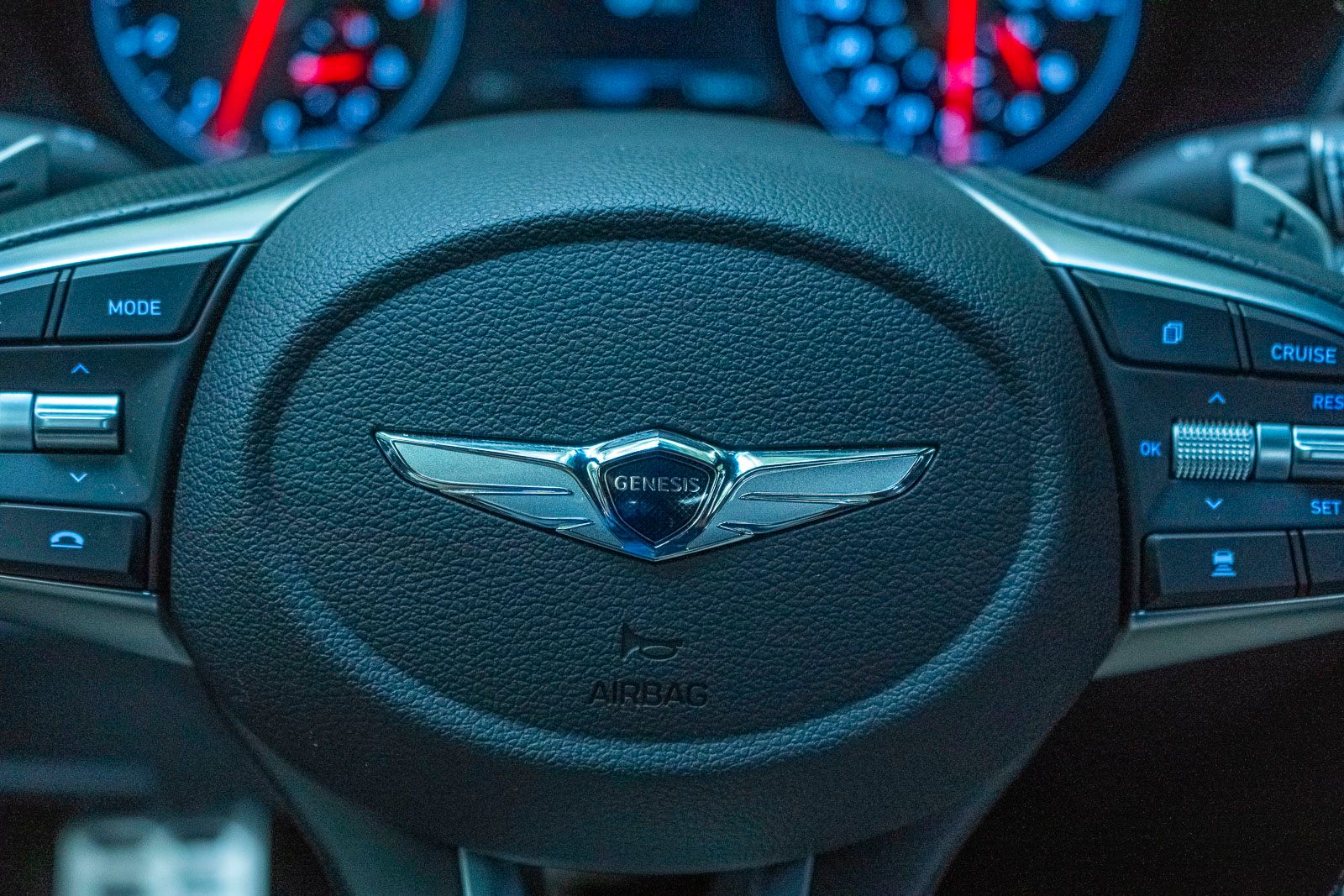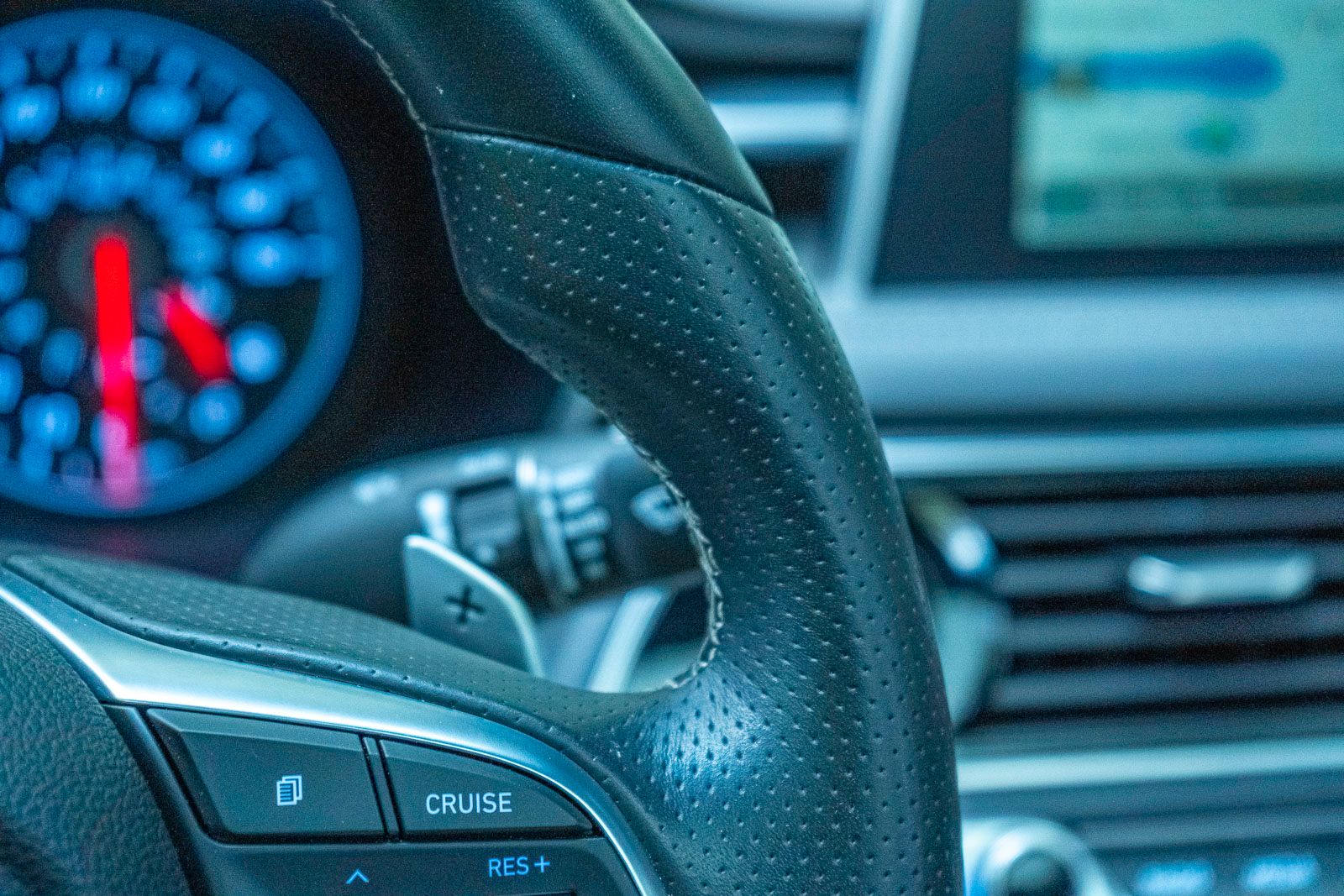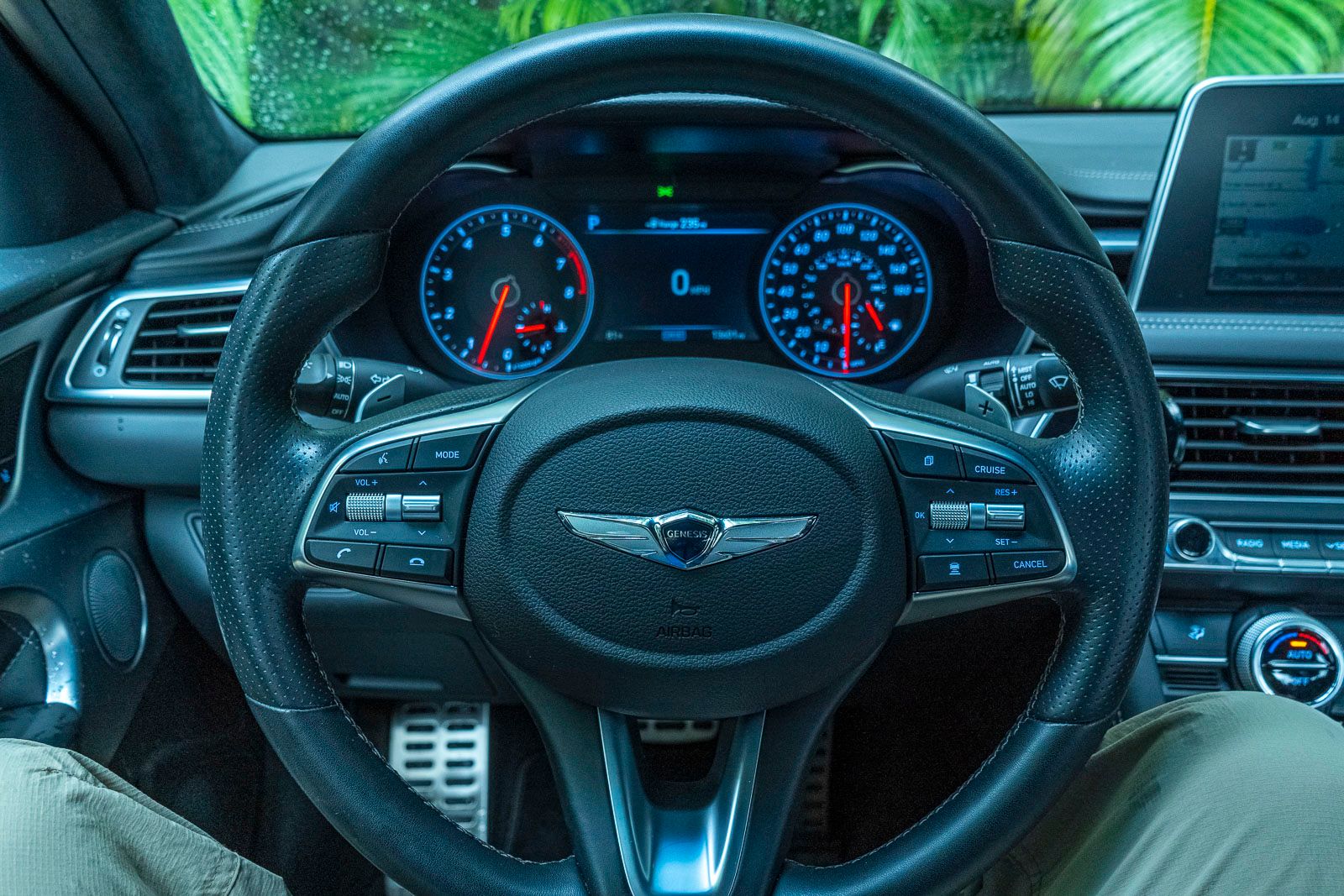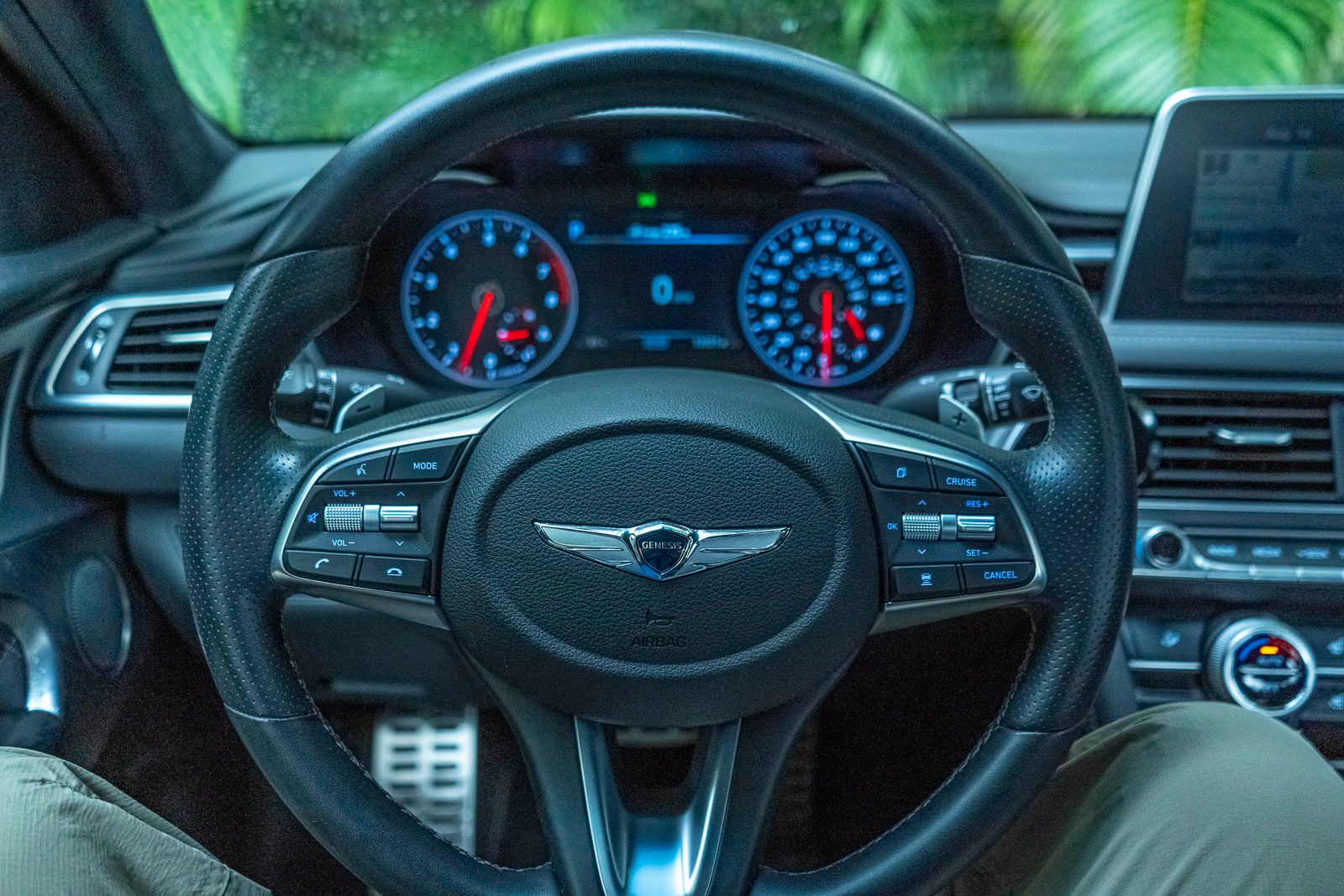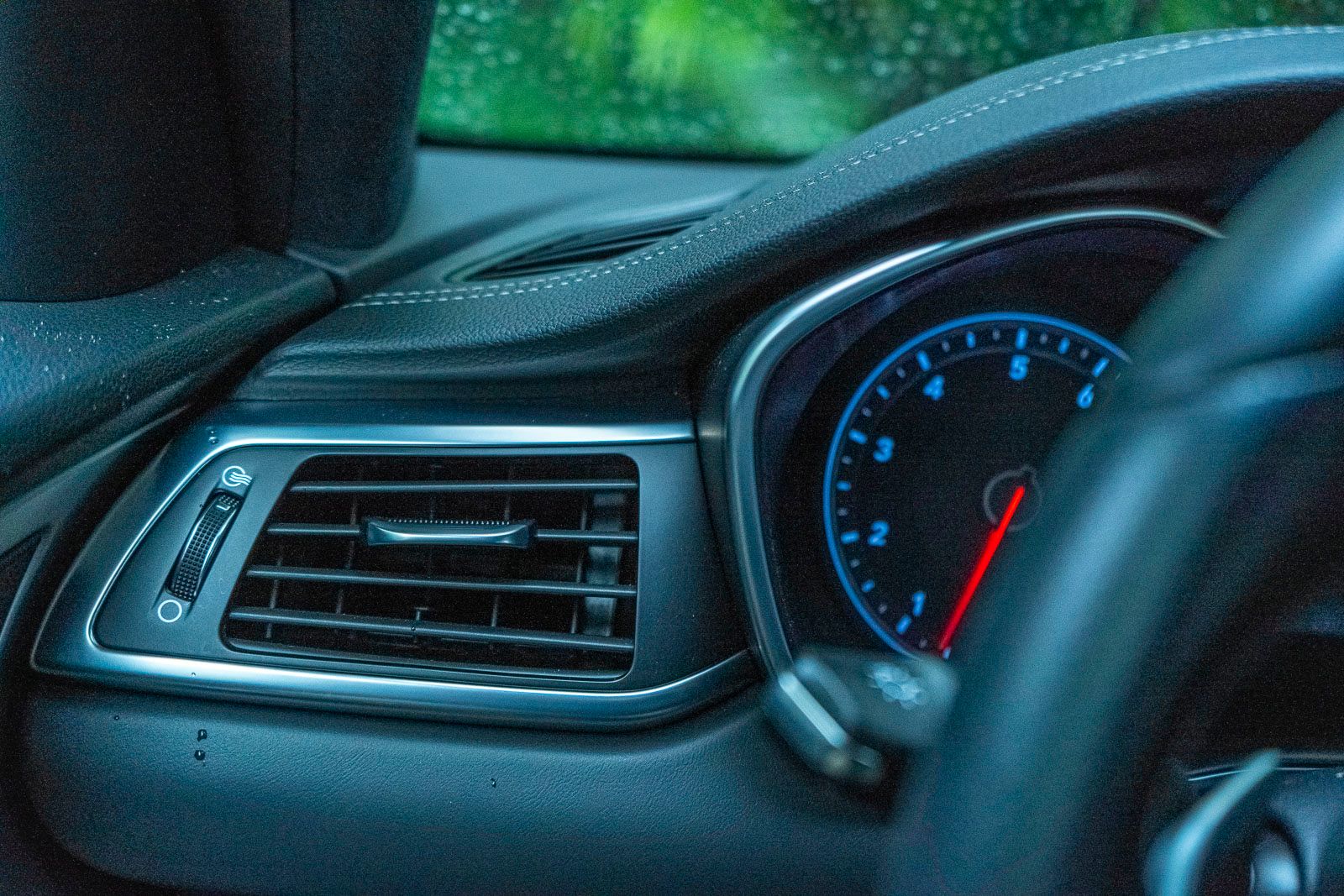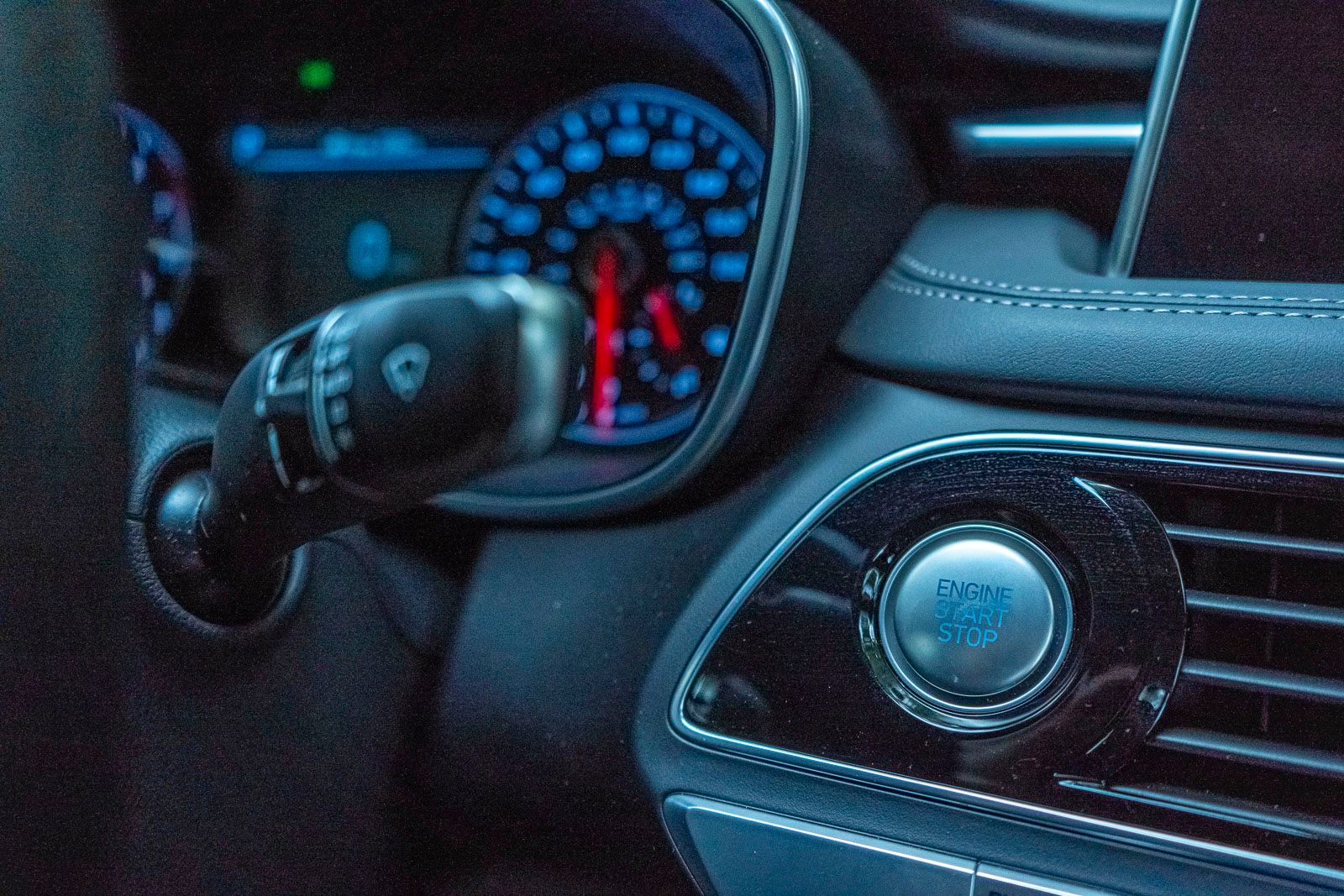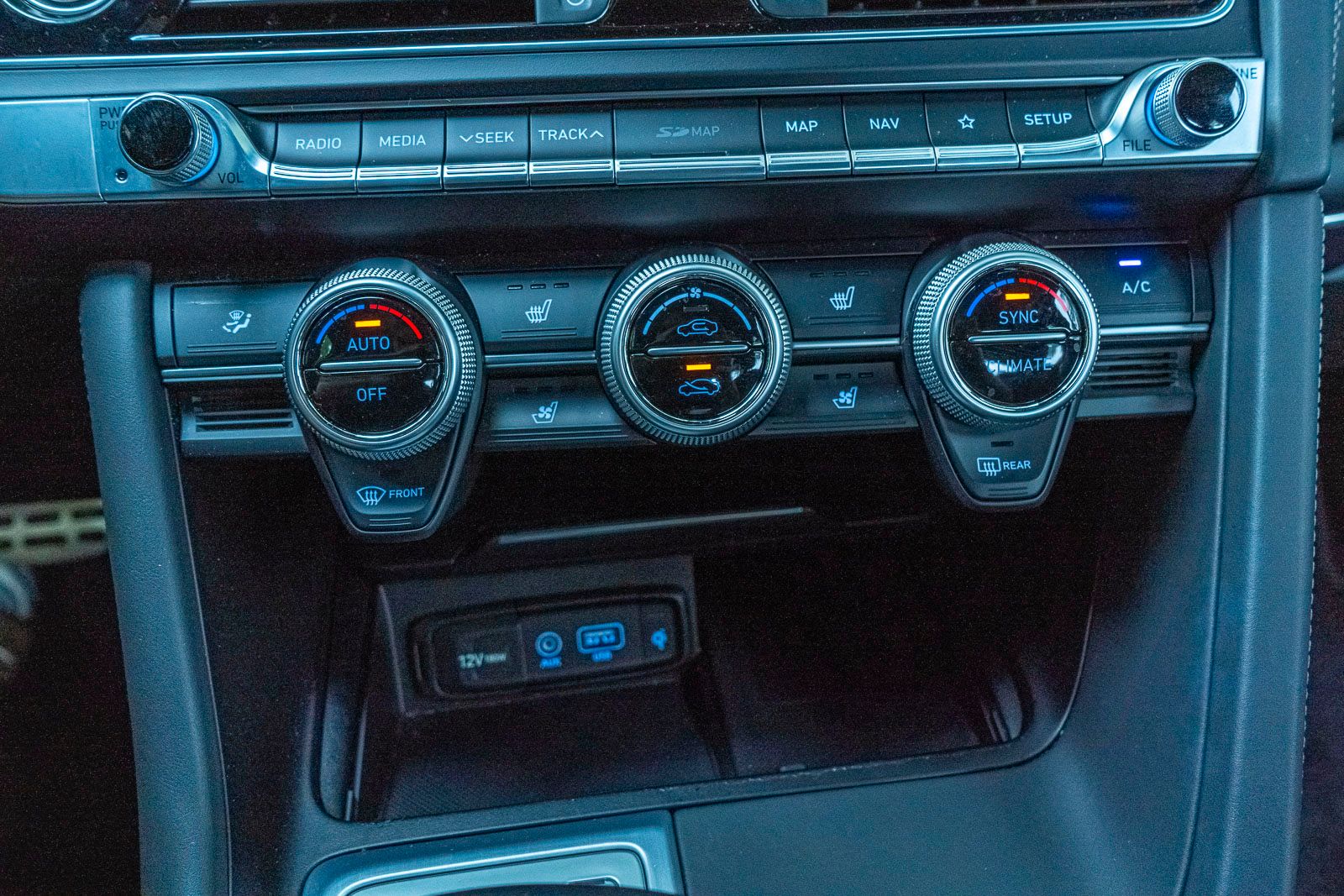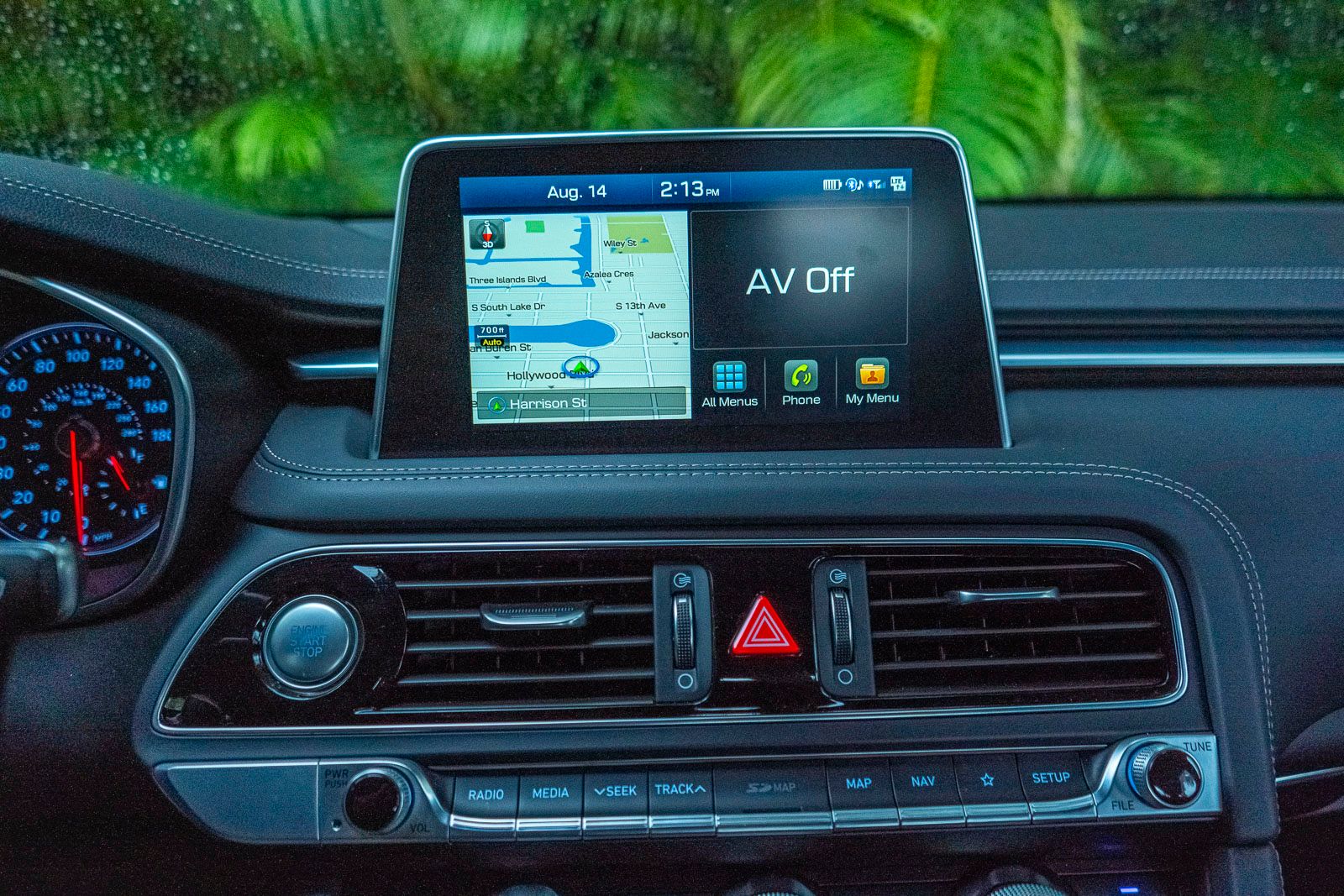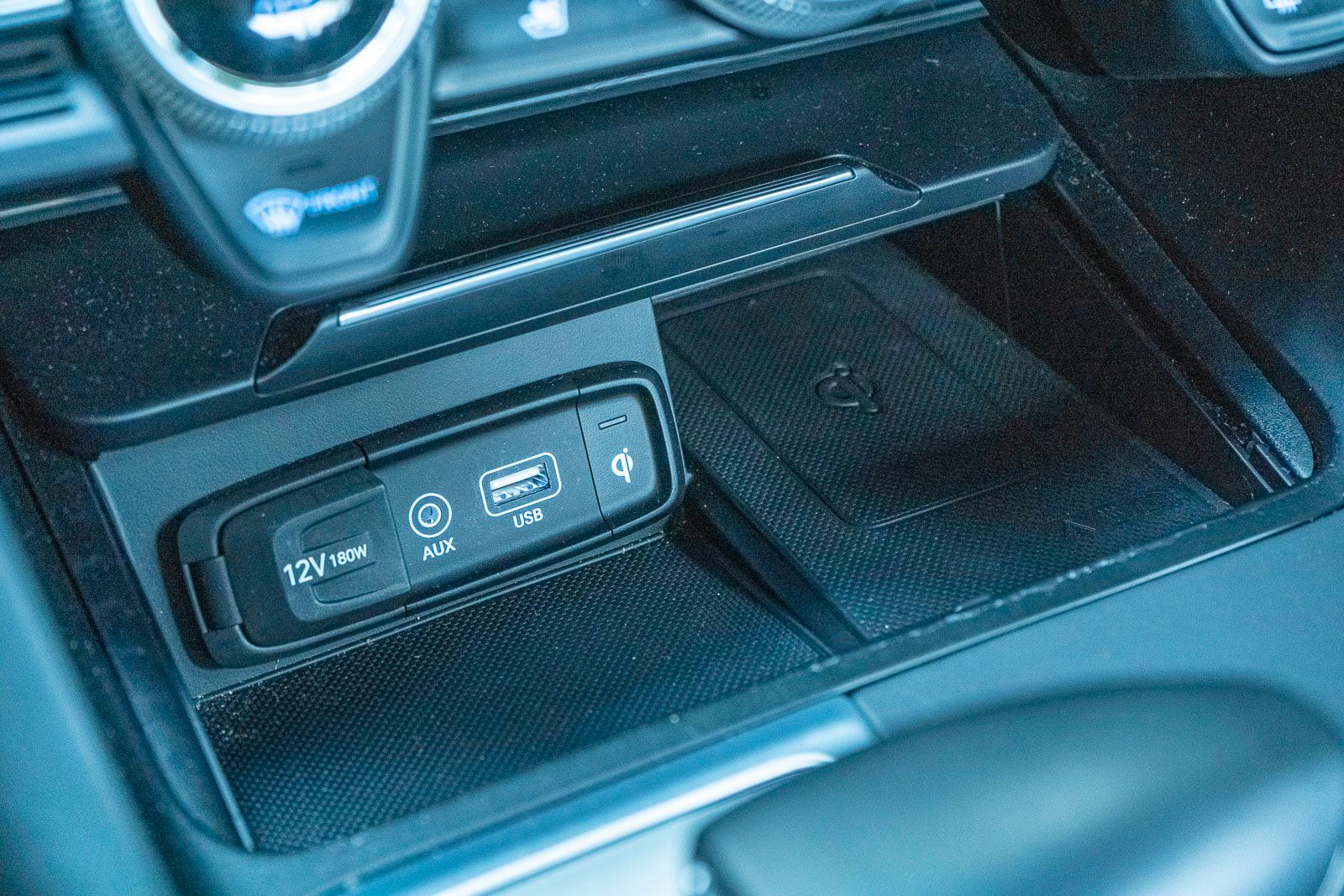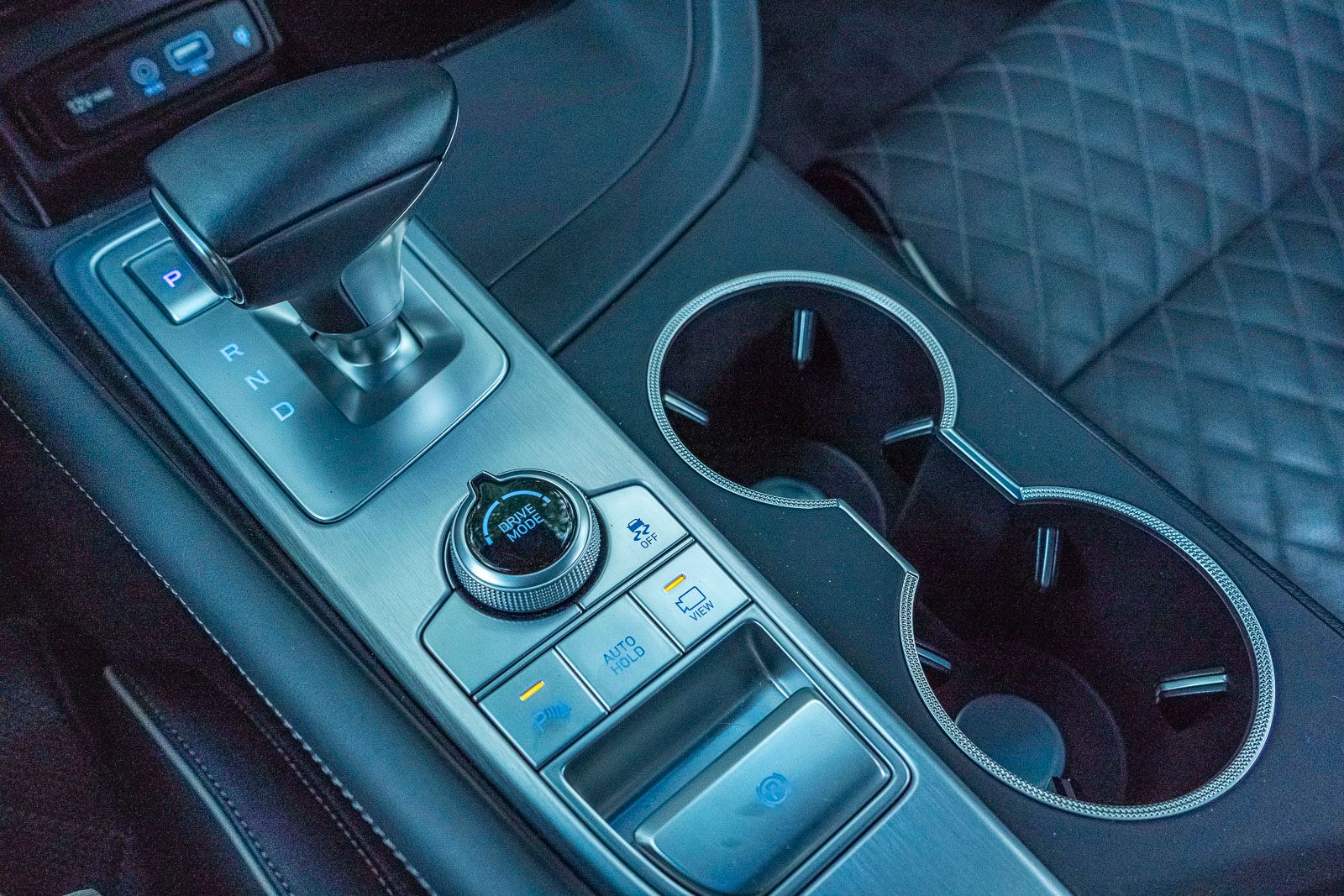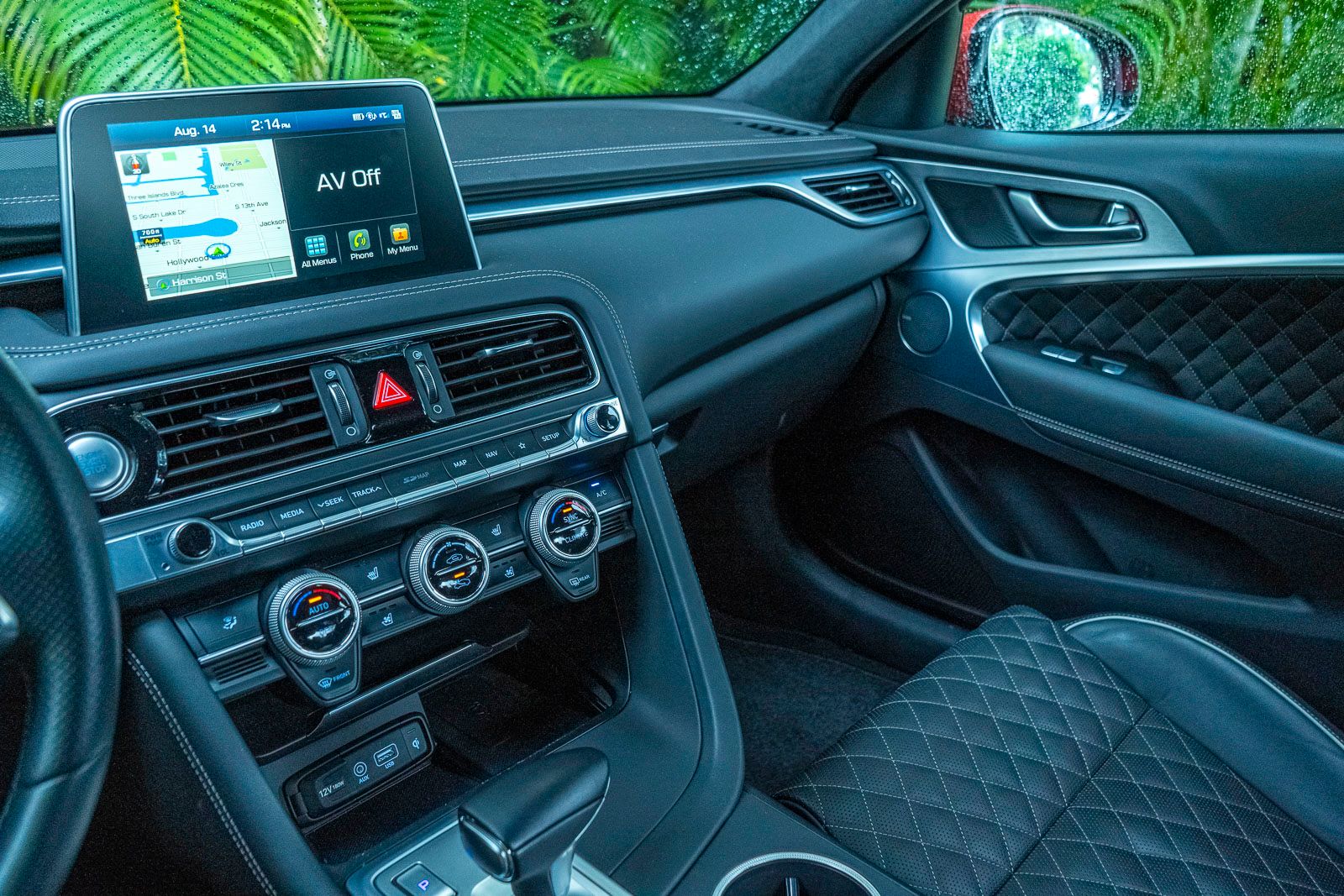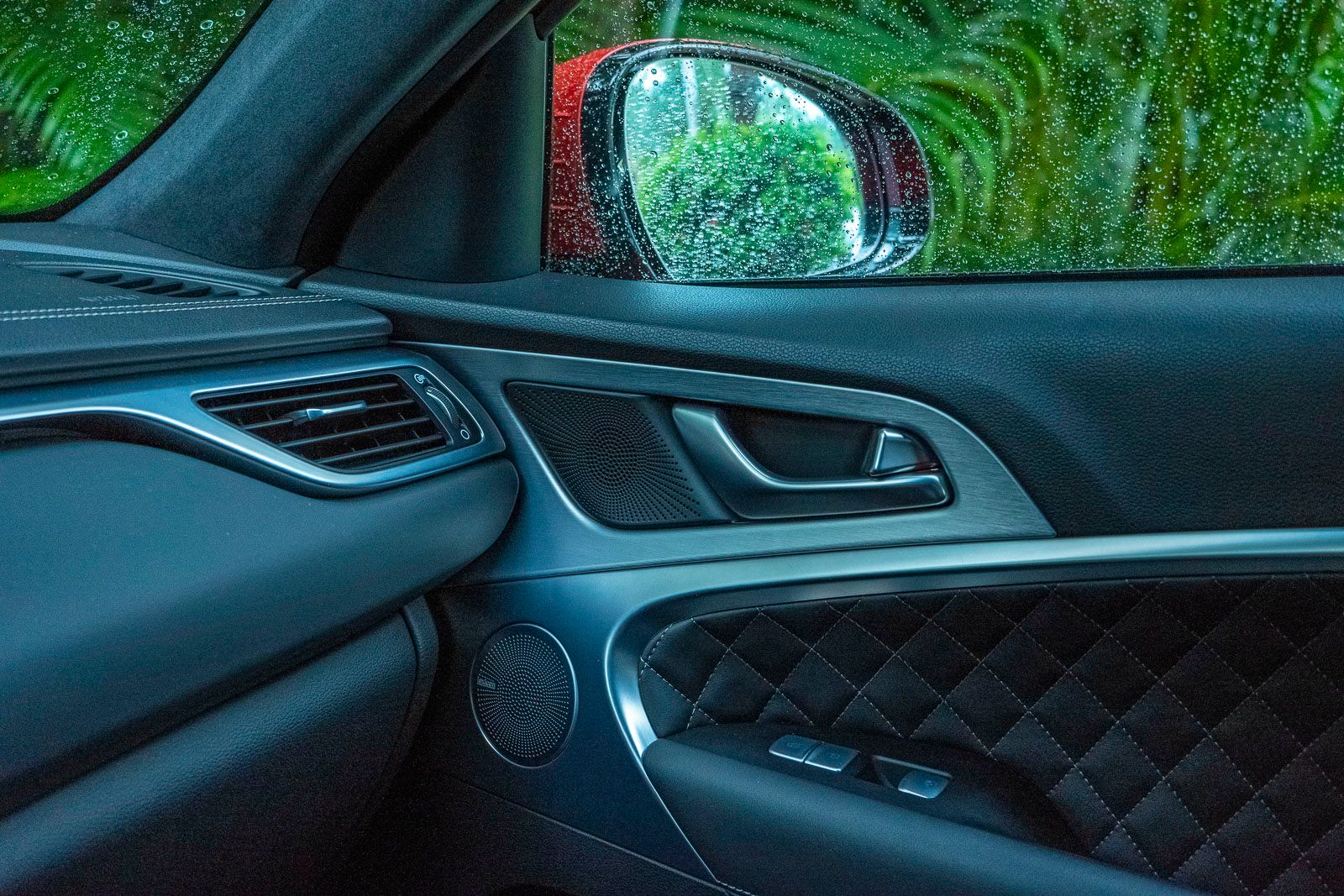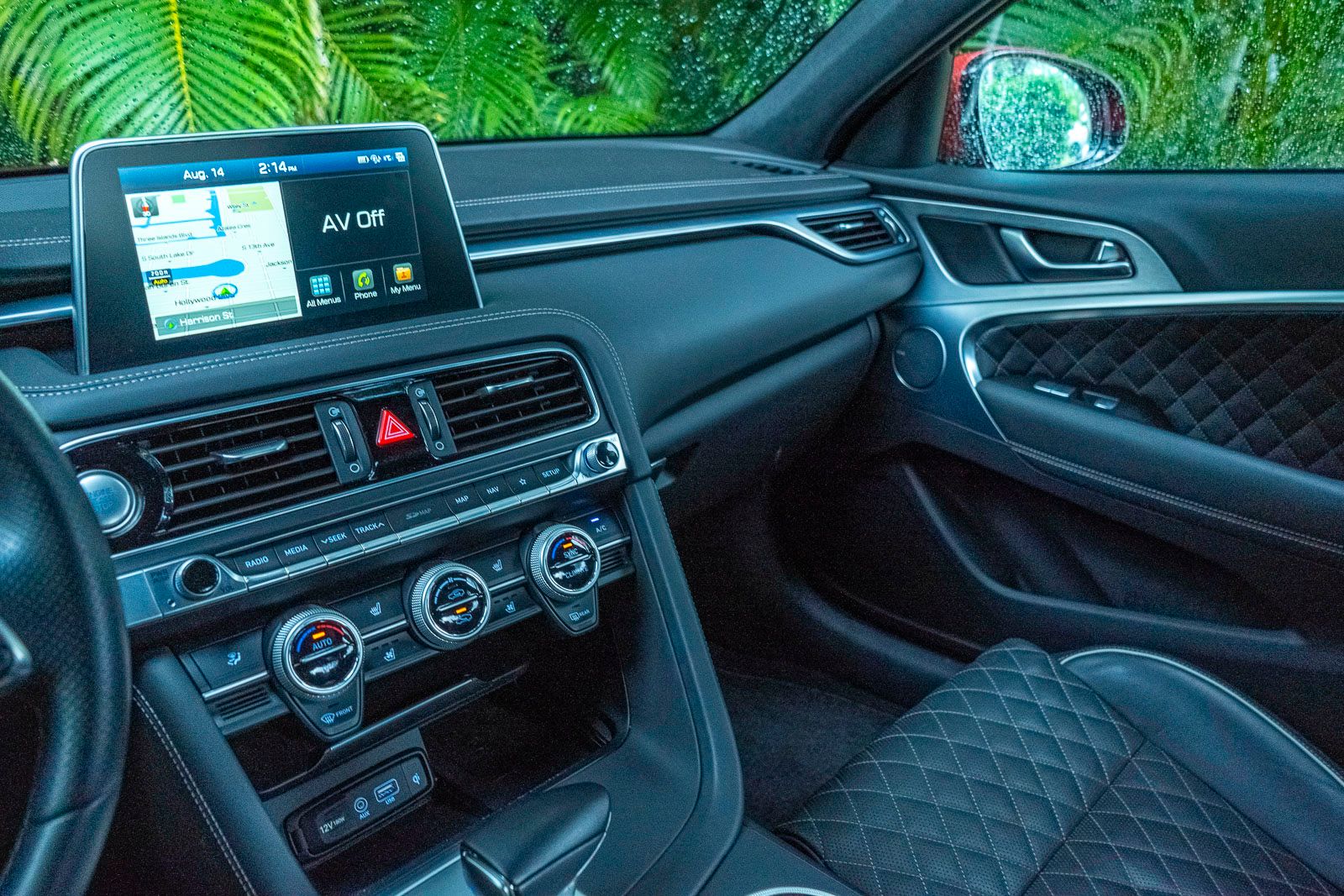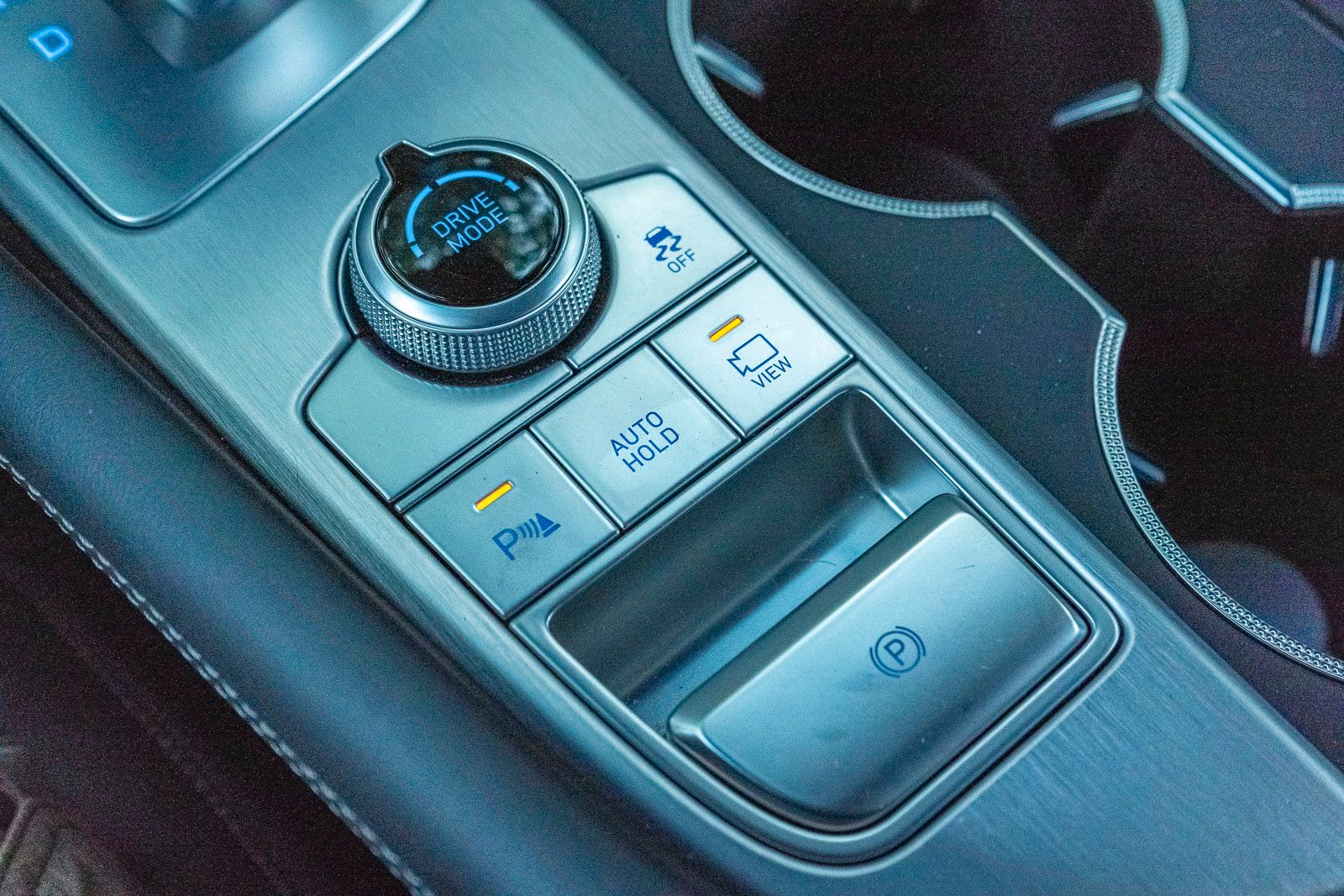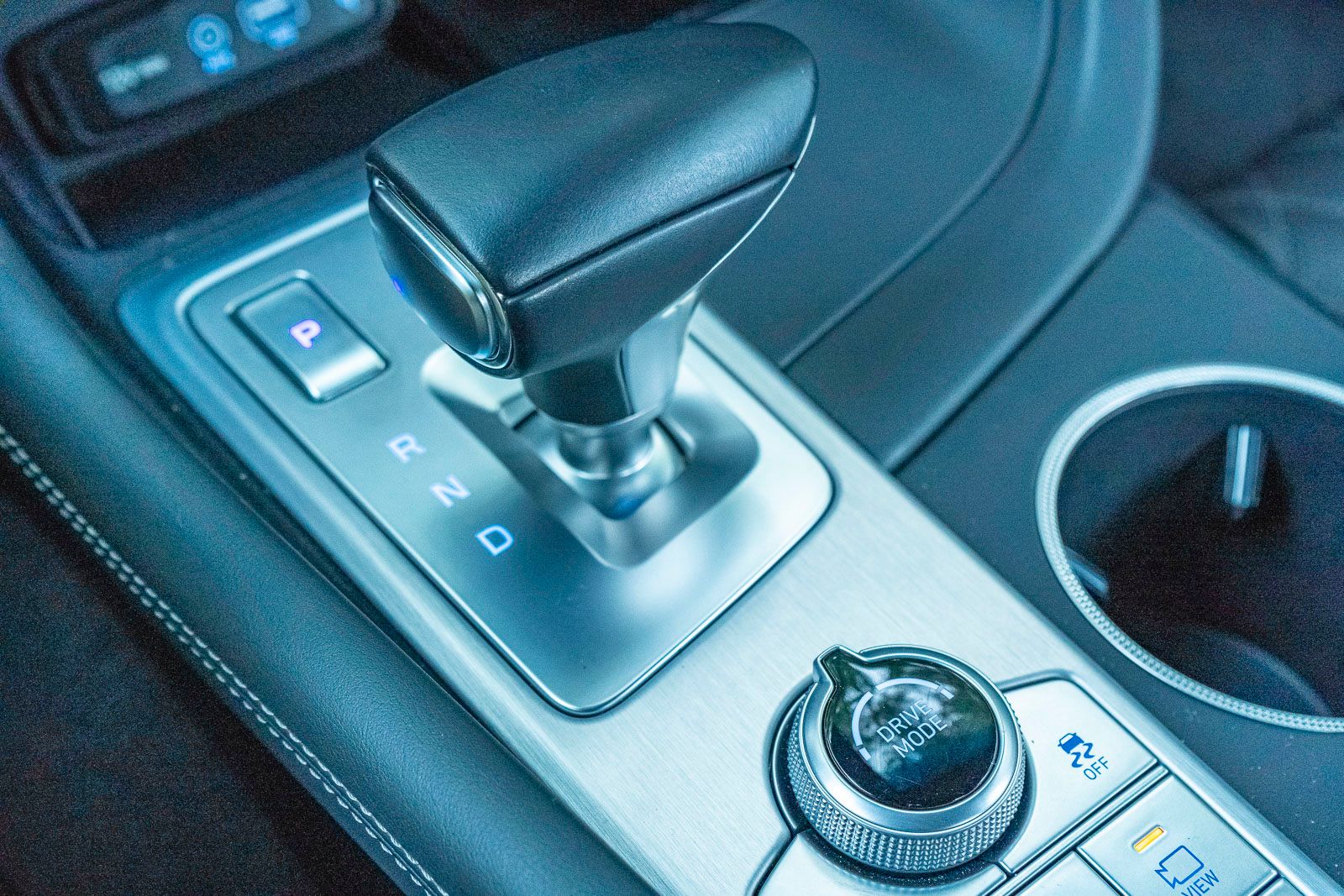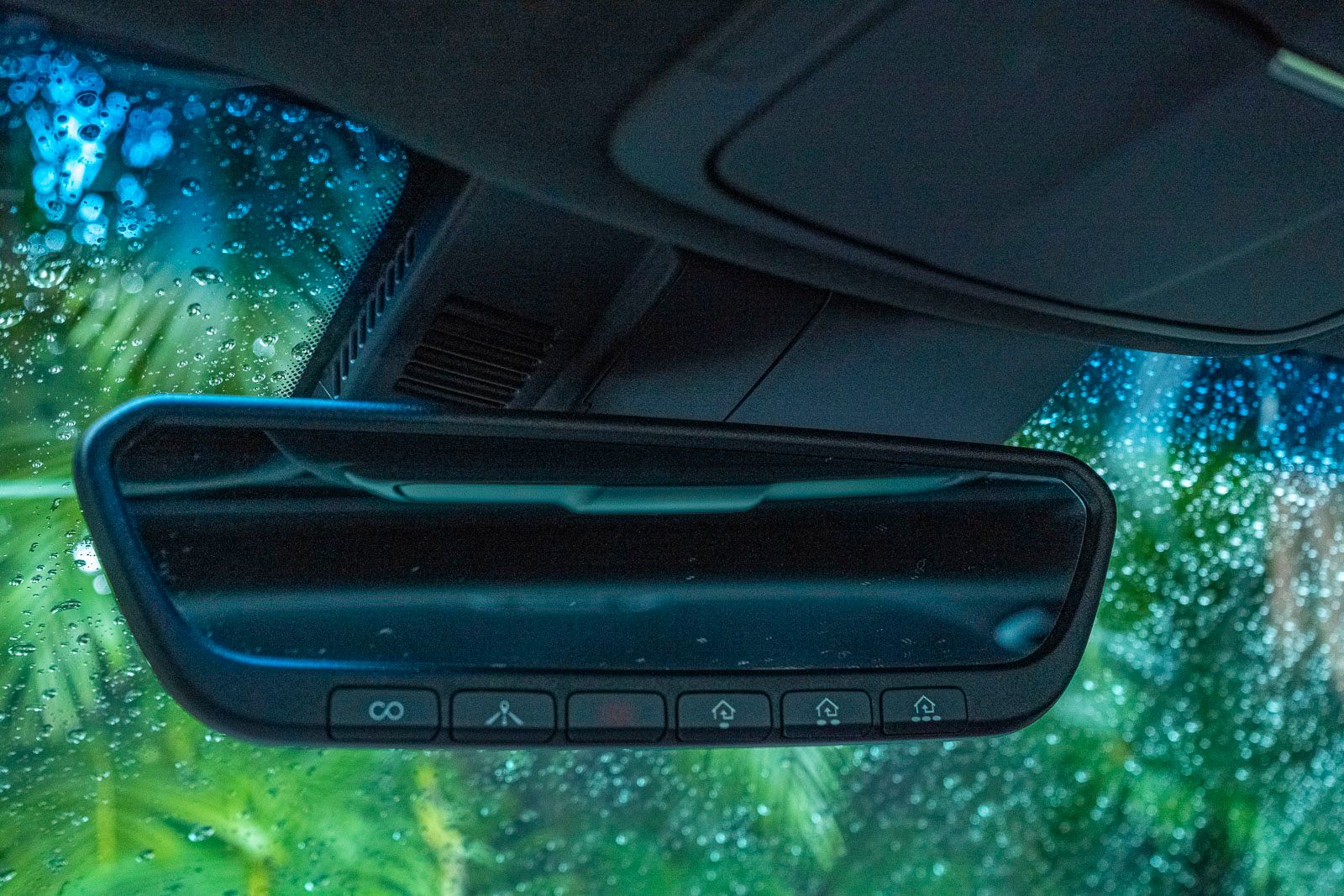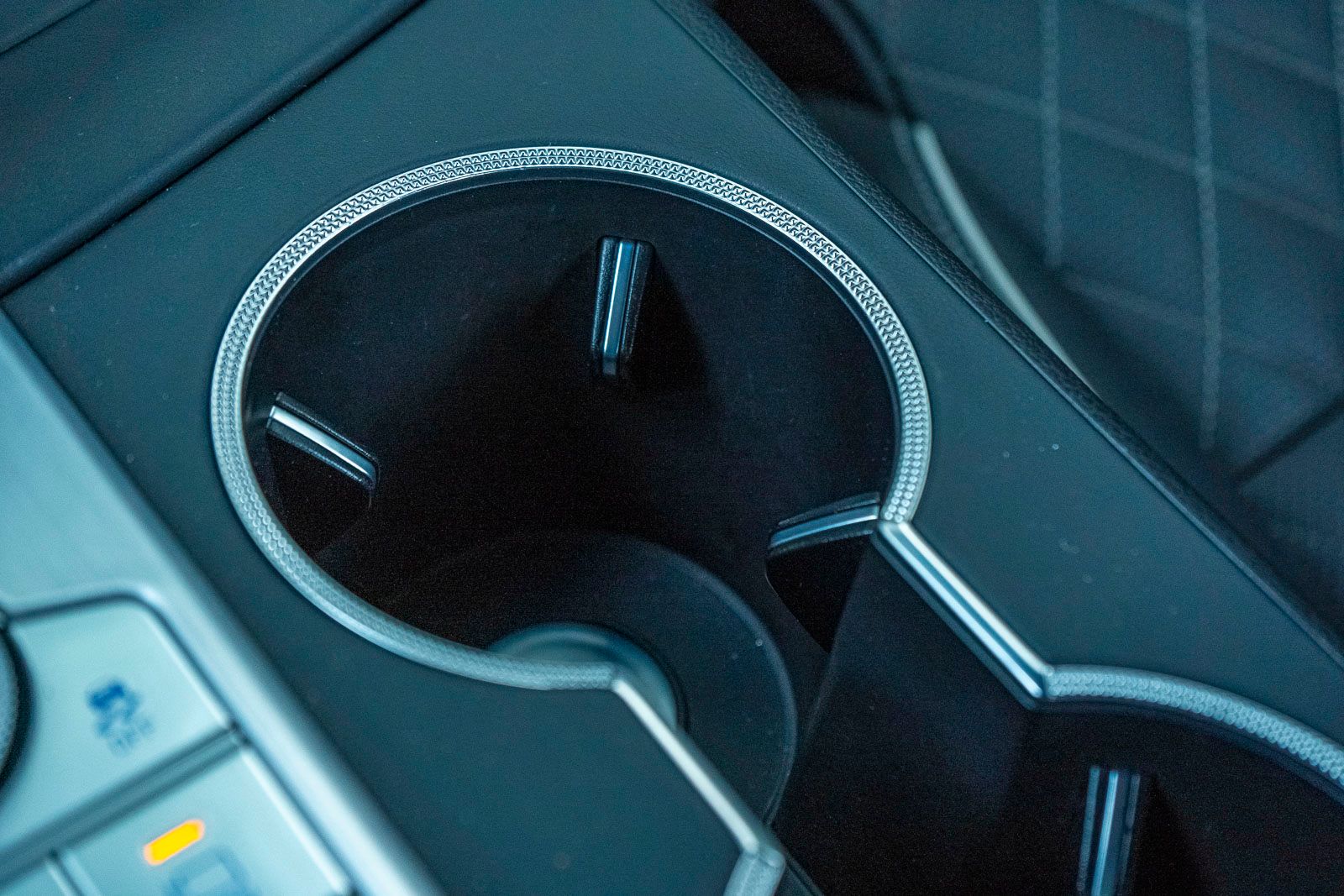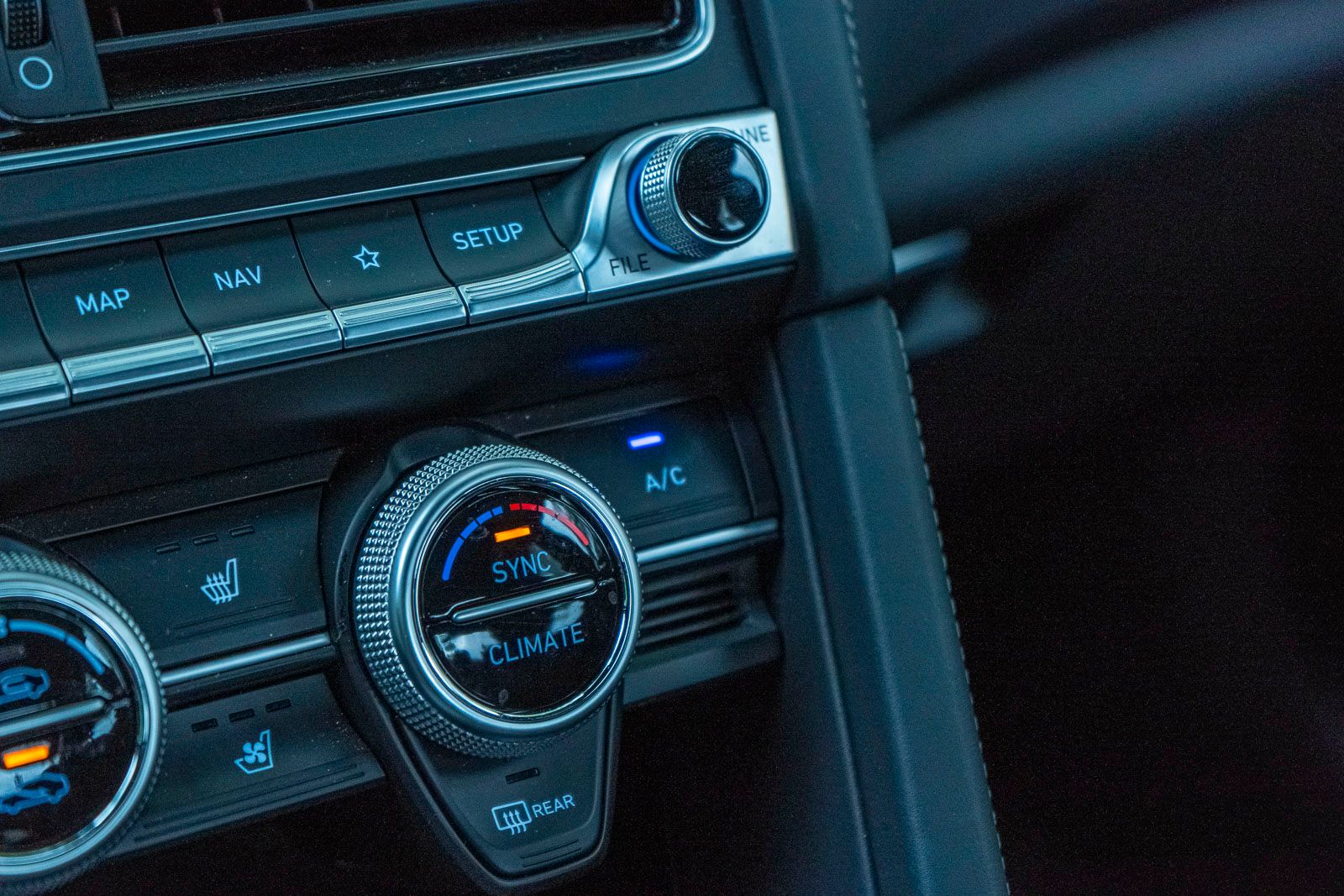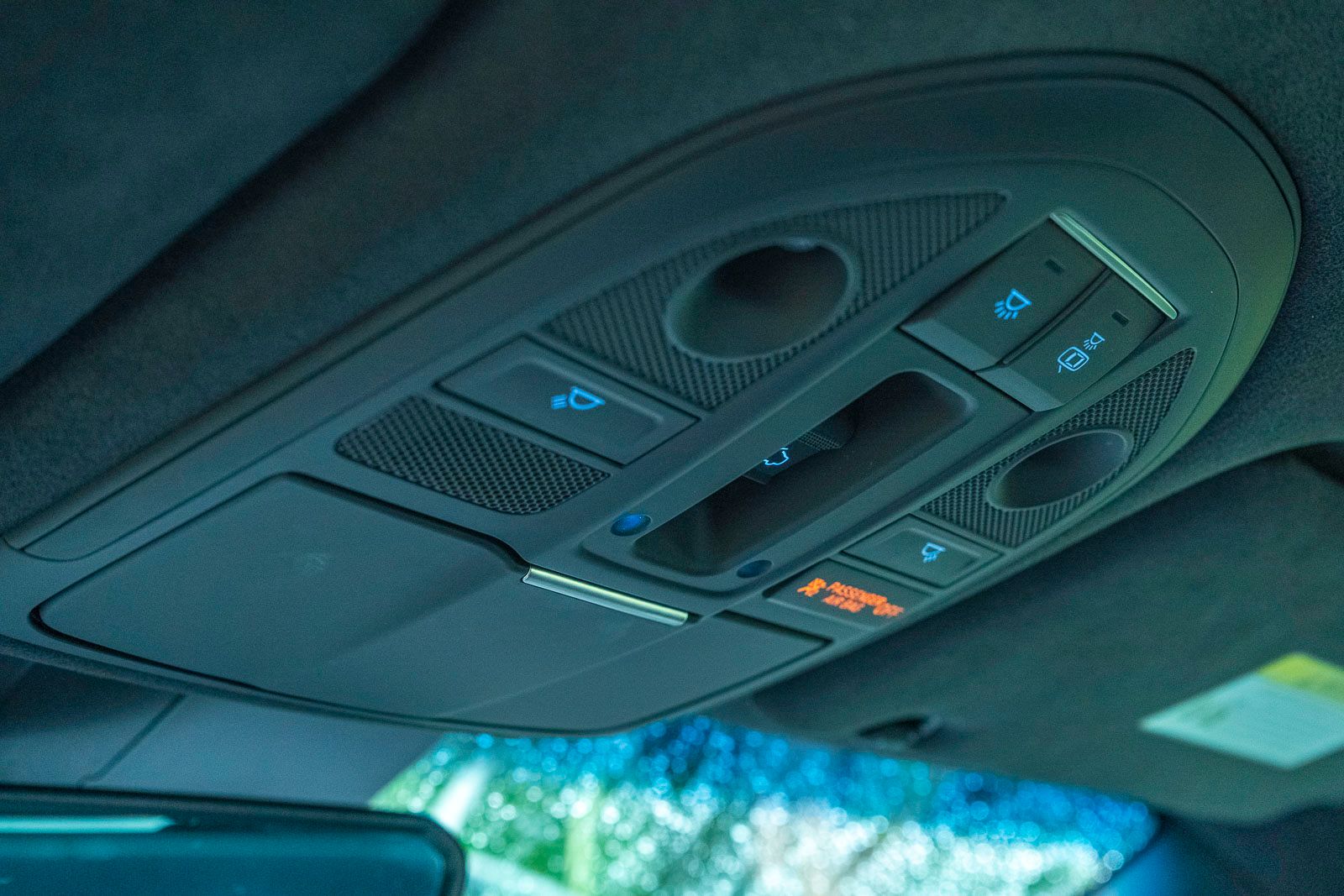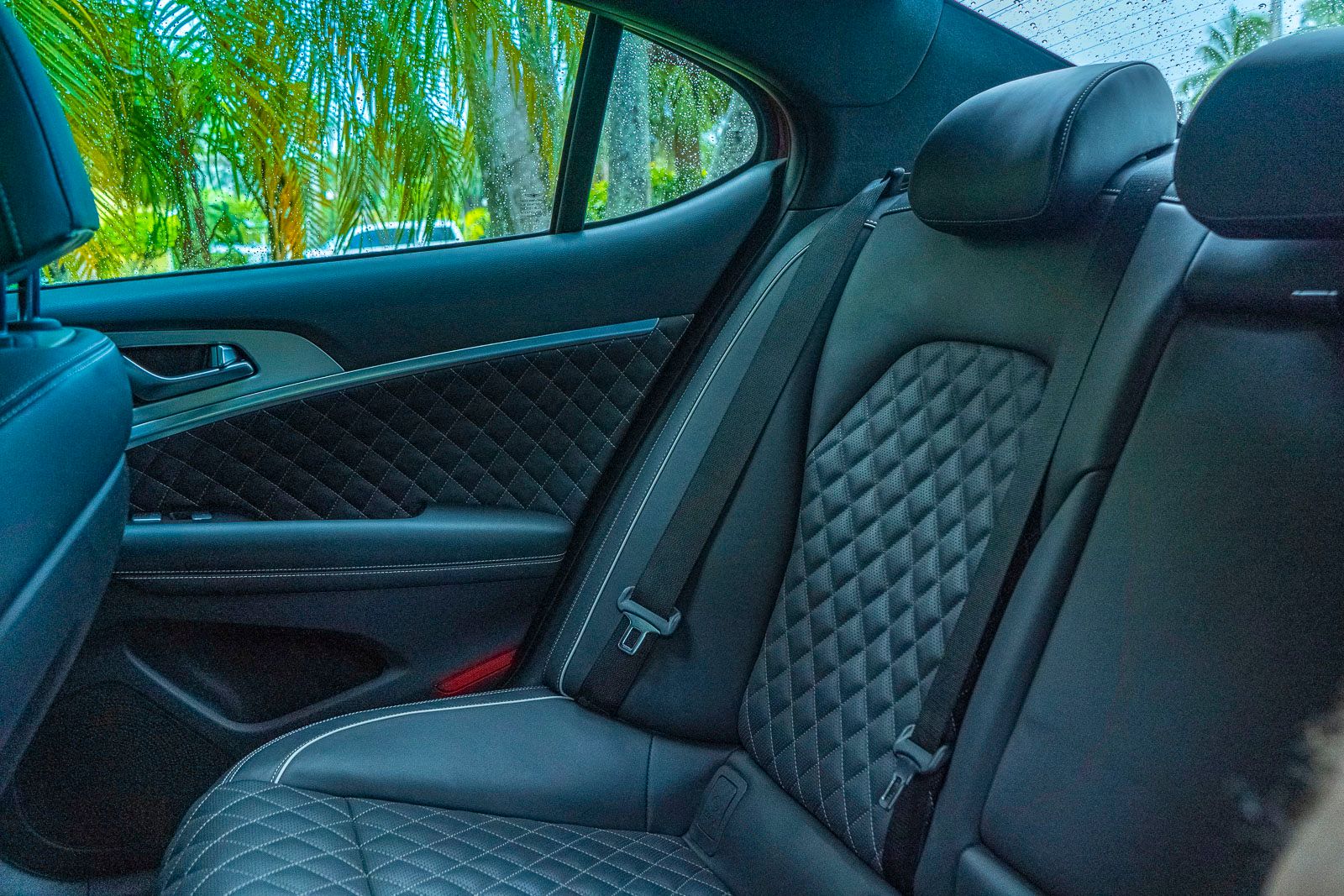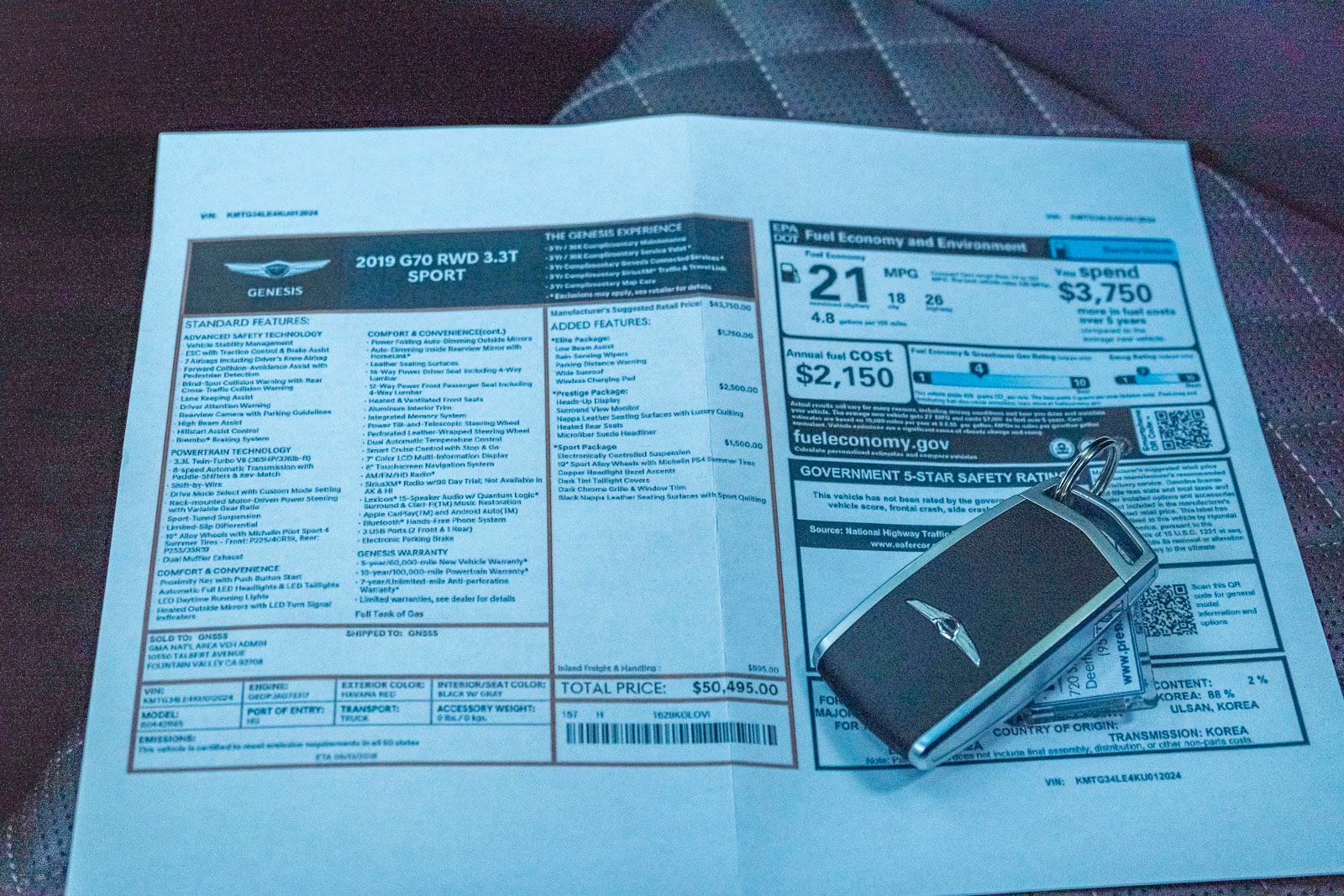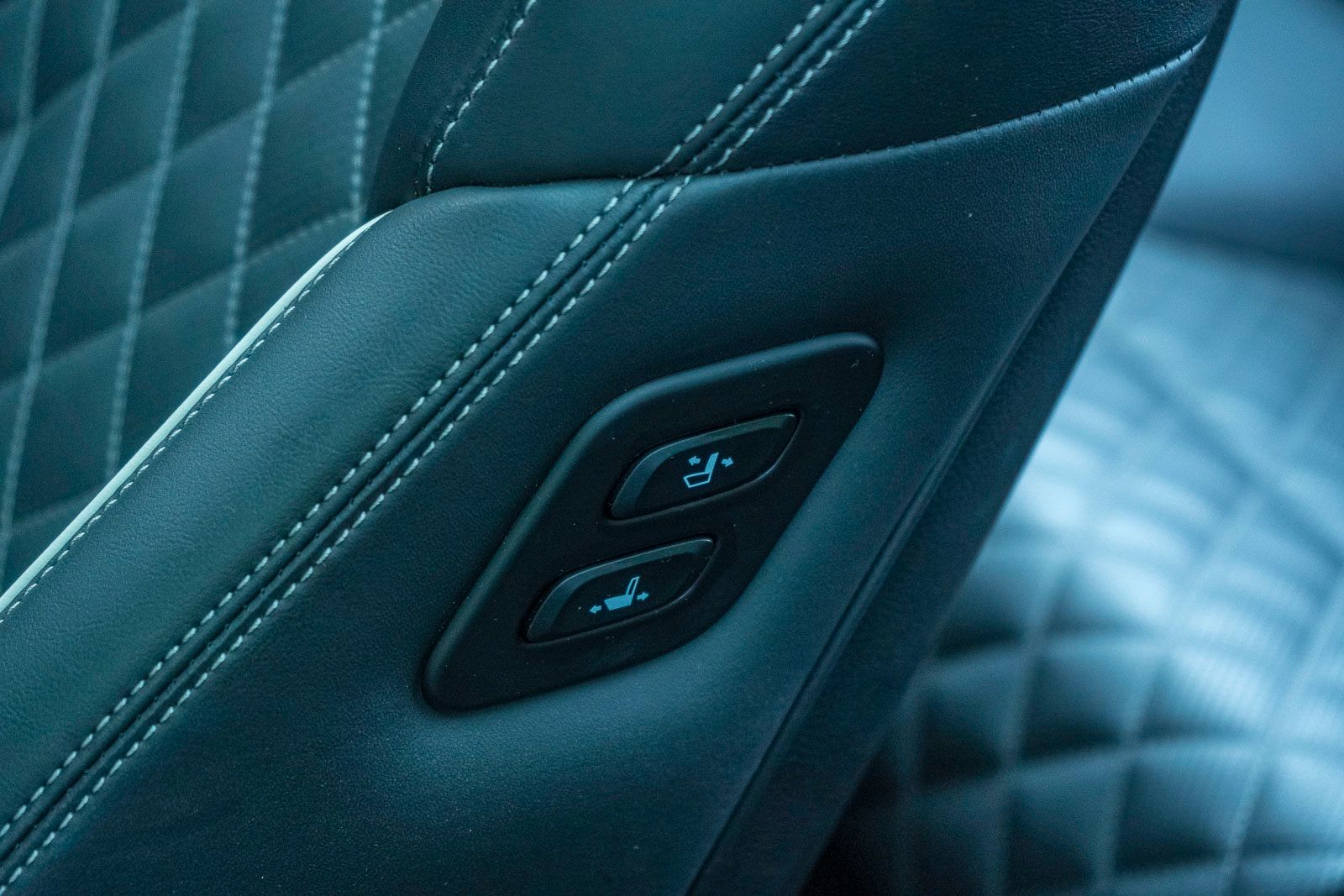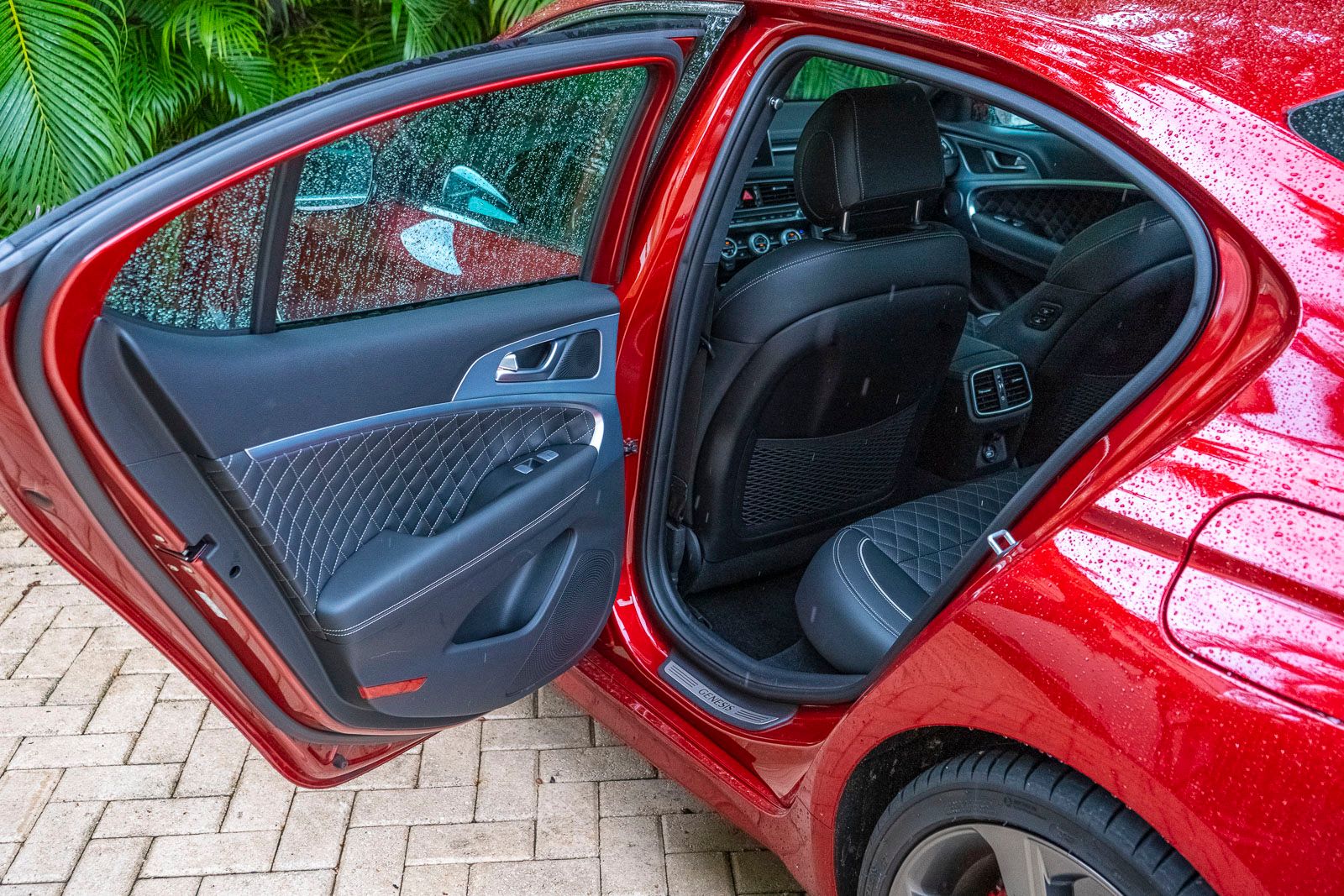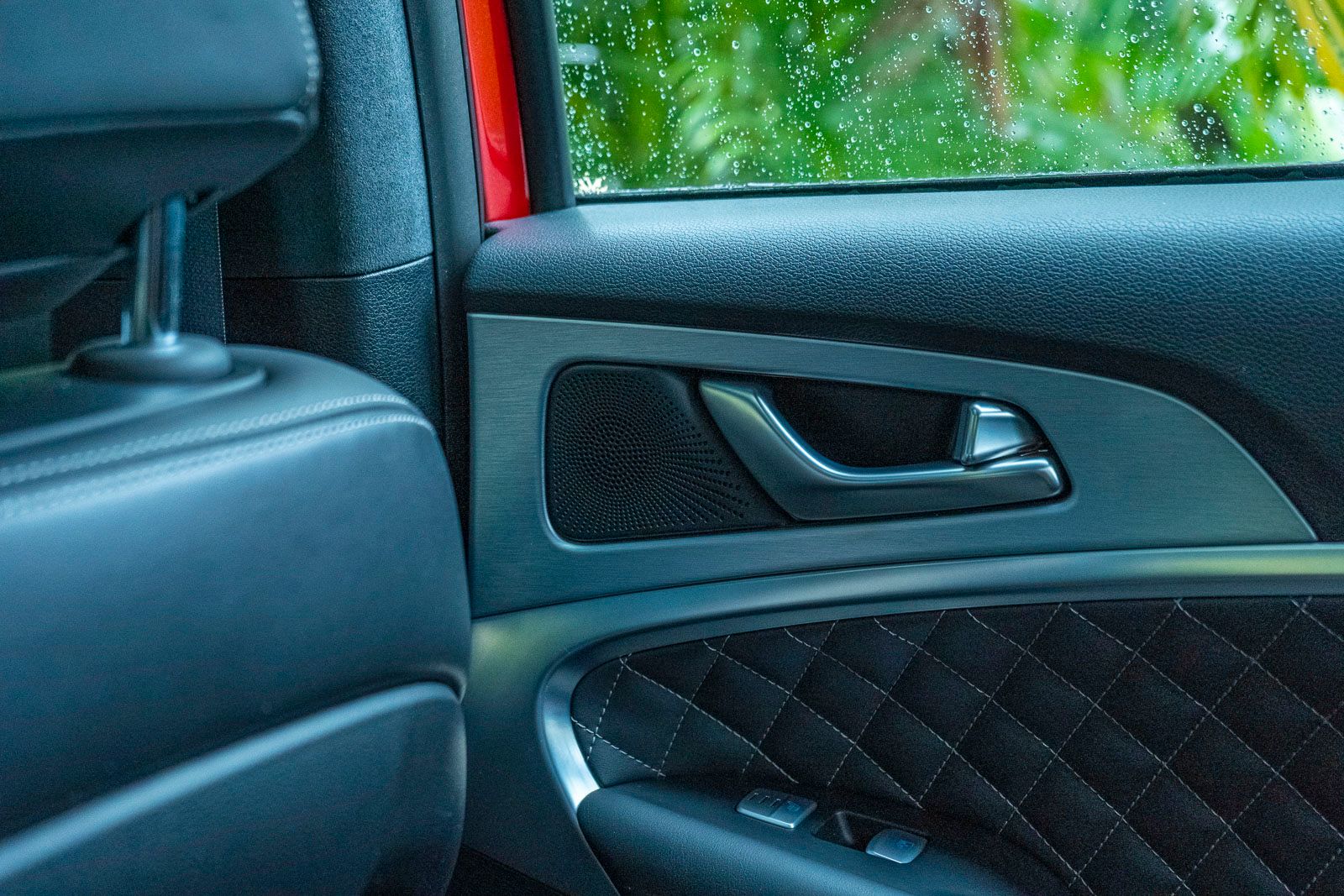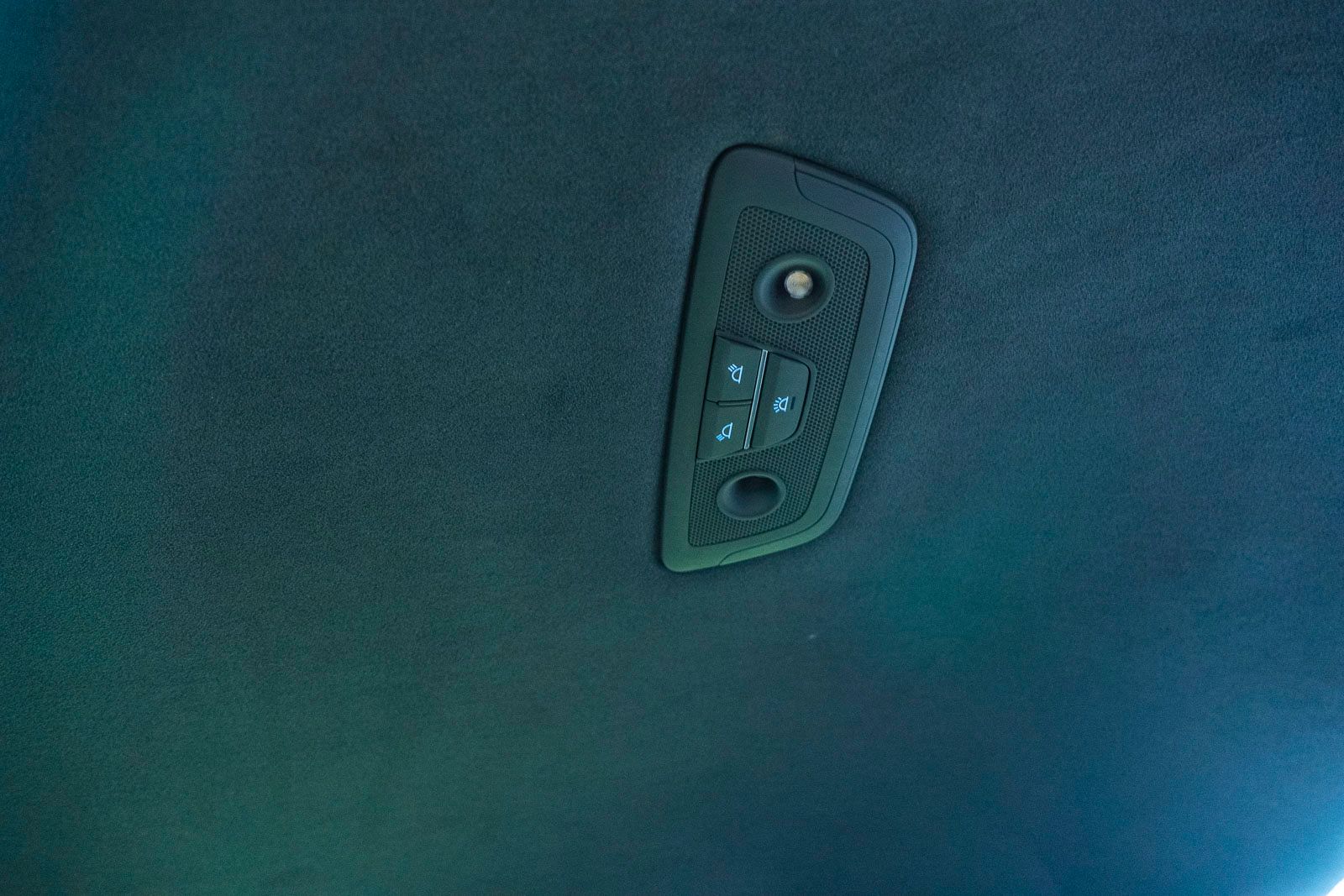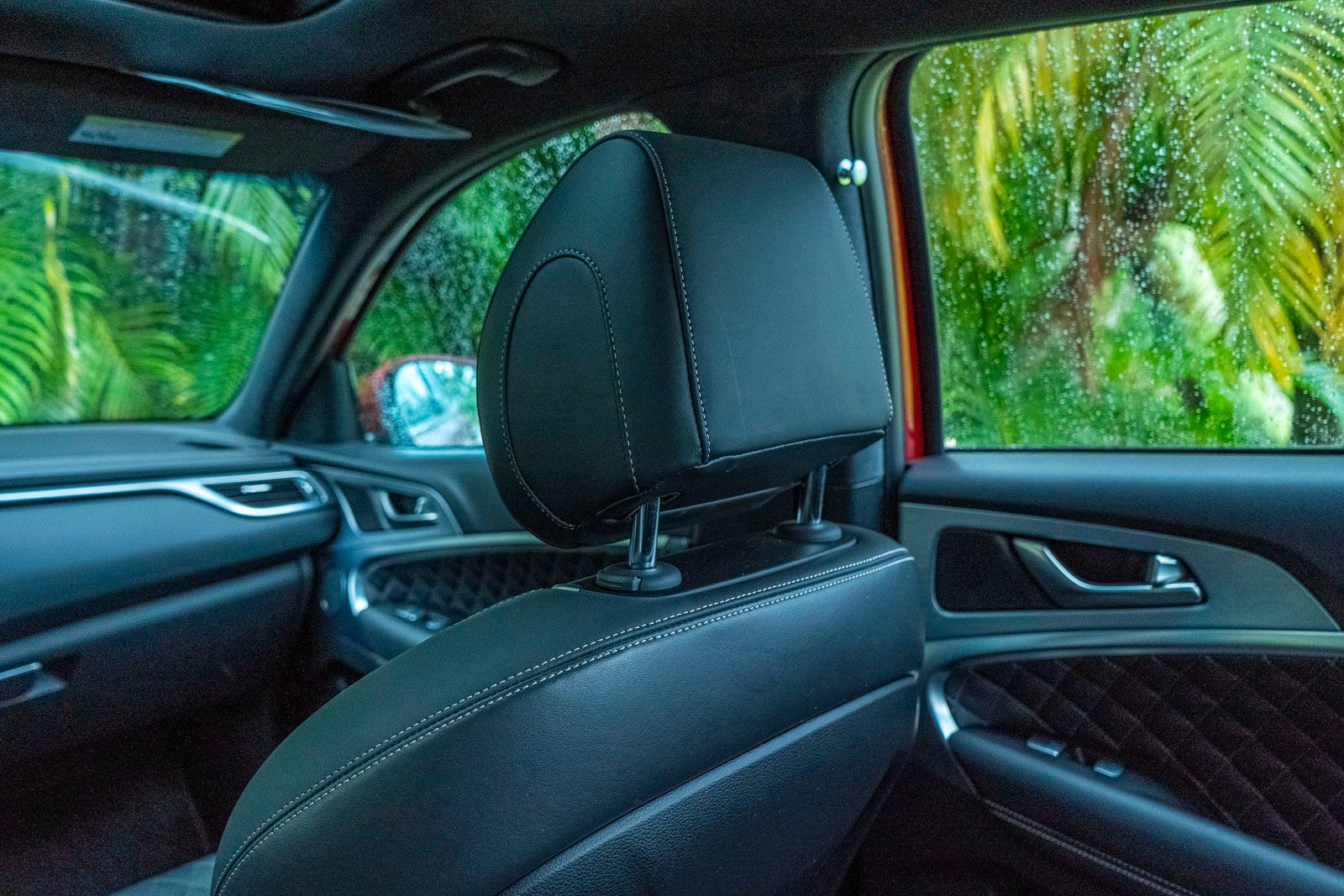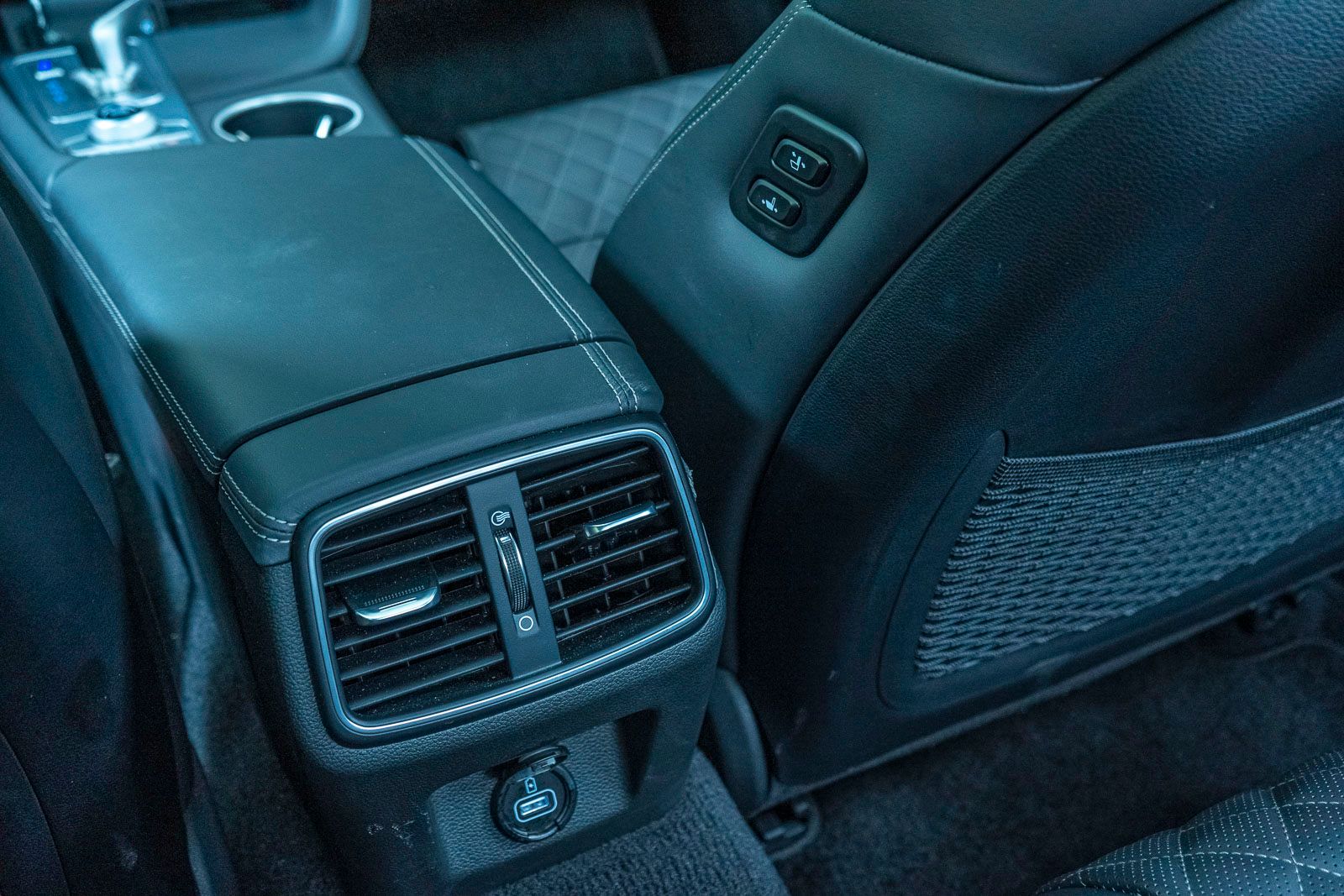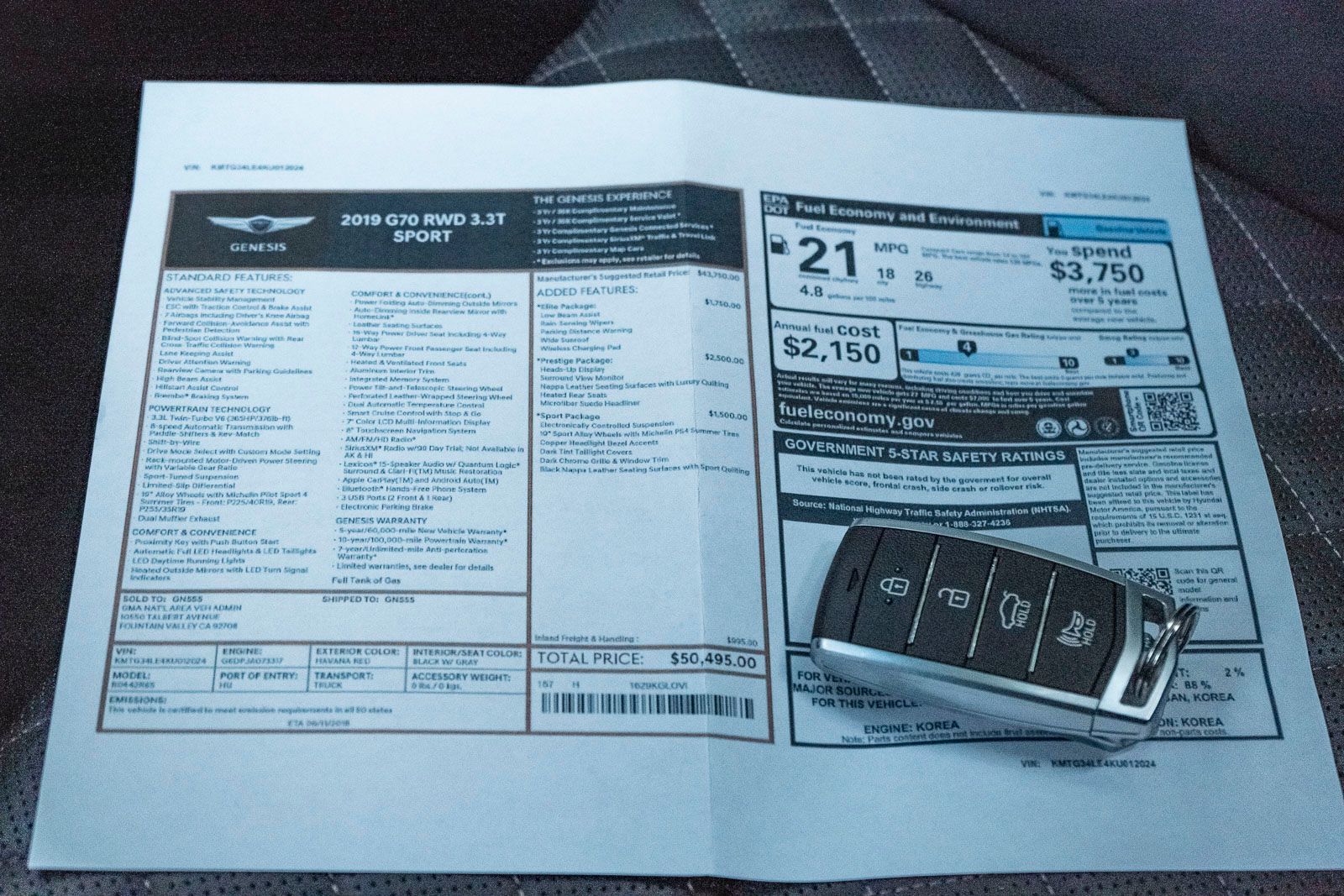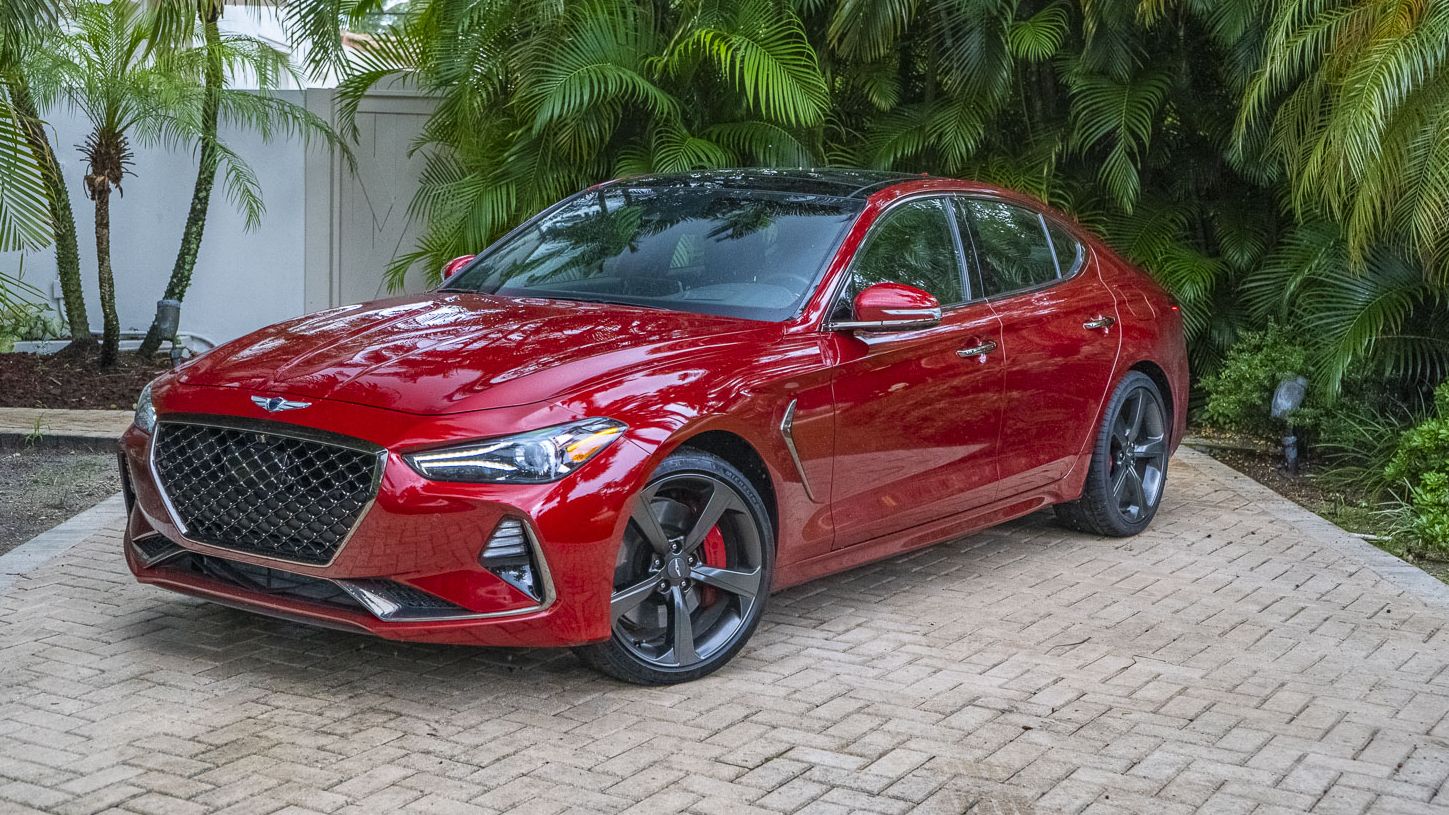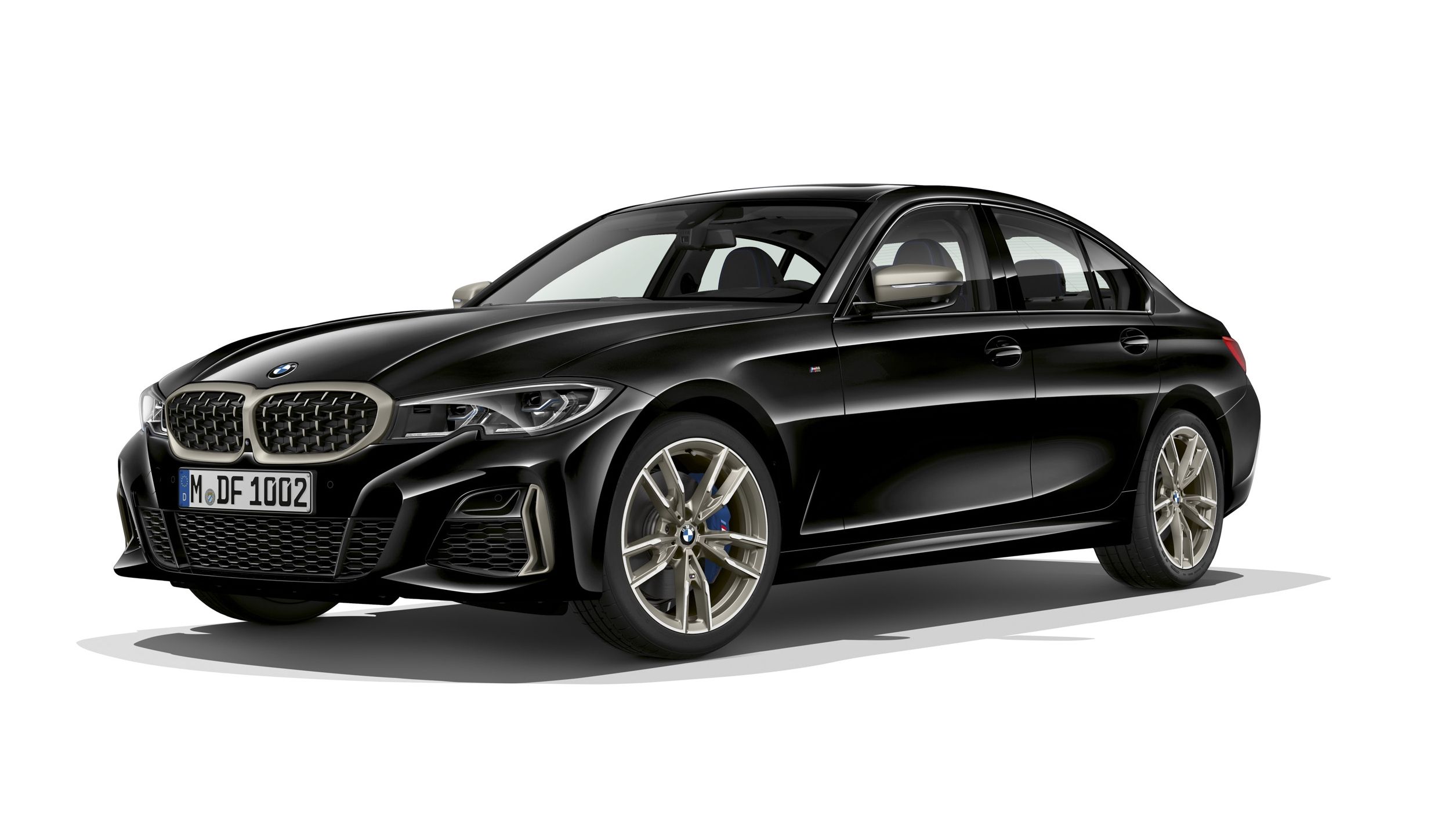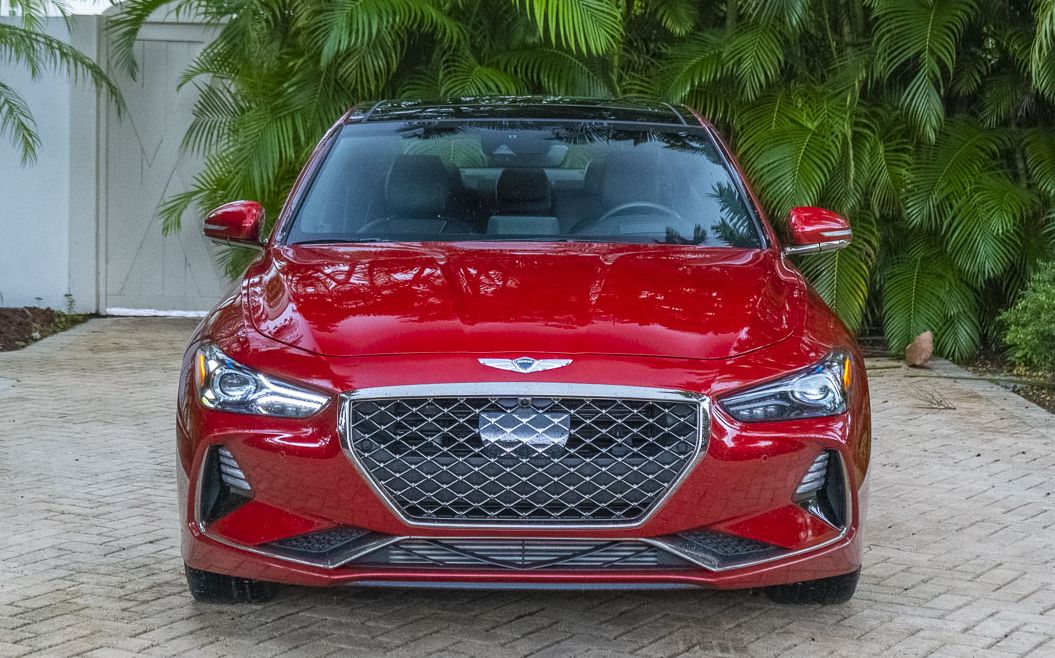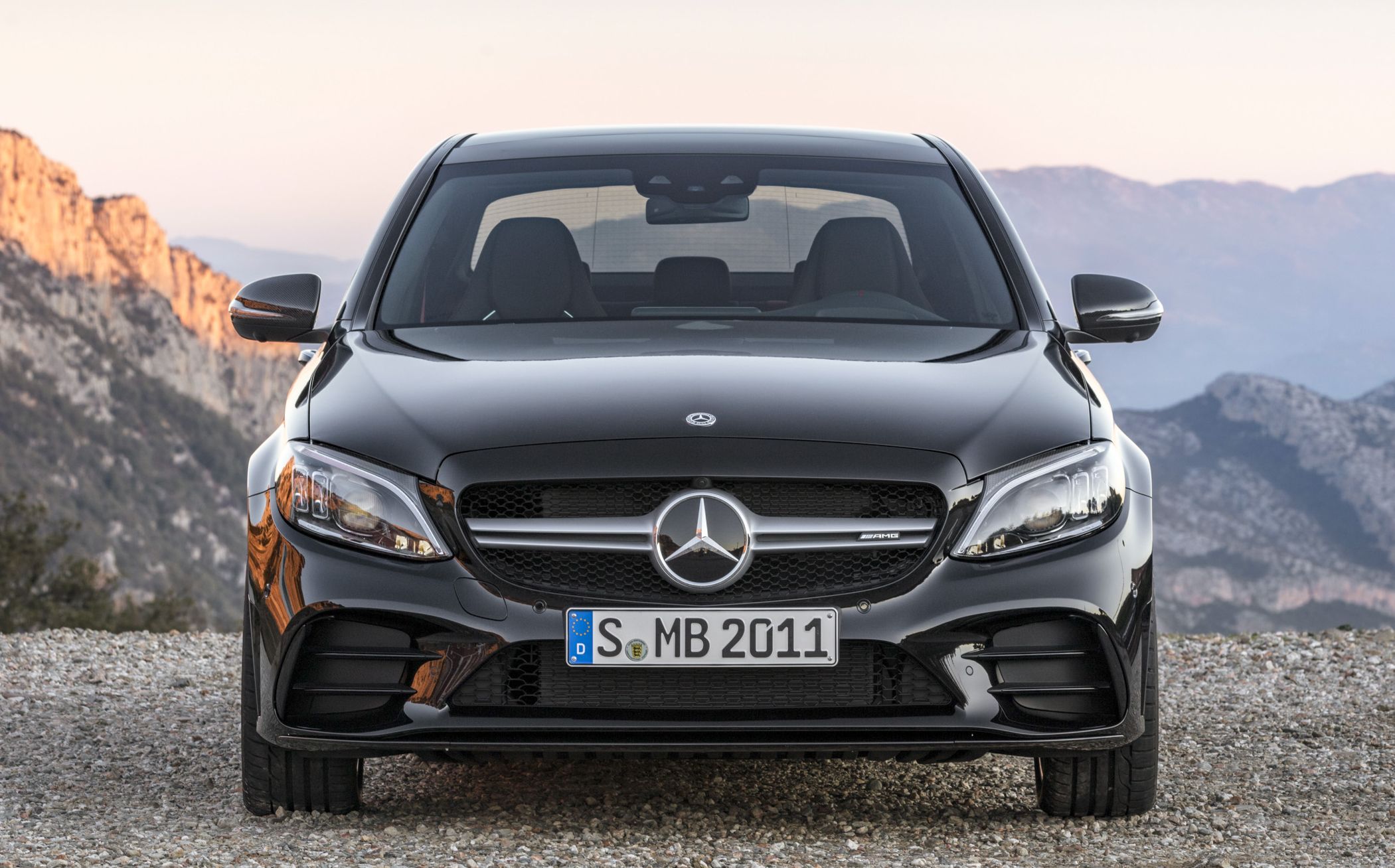We know and you know that if you want a compact luxury sedan without thinking twice you'll check in at your local Audi, BMW or Mercedes-Benz dealer and ask for an offer on one of the Famous Three. But we reckon there are better options out there, cars that'll cost you less and offer more than you could ask for at that price point while also not disappoint you in terms of performance, comfort, quality, and maintenance. Such a car is the Genesis G70, the 2019 North American Car Of The Year. We drove one powered by the 3.3-liter turbocharged engine and we think you shouldn't jump straight to a Merc C43 or BMW M340i before taking a good close look at the G70.
The compact luxury sedan market is packed at the moment, as it always has been. The German stranglehold on the segment may seem like an unbreakable status quo and it's not for lack of trying from the likes of Infiniti, Acura or Lexus. More recently, the Koreans also want a piece of the action and there's some promise in what they offer: Kia's coming forth with the Stinger that has impressed us in its top-of-the-line specification while Genesis, Hyundai's luxury brand, launched the G70 in 2017 as its third model and a direct rival to the 3 Series, C Class, and A4. It was penned by the same guy who came up with the Stinger's aggressive lines but the G70 is a much more traditional-looking sedan. Still, it's not a car you would be blamed for turning around to get another look at and it's got more tricks up its sleeve under the skin. Overall, it may not be a complete match for the offering from Stuttgart, Munich, and Ingolstadt but we think this is a car that's perfect for the conscious buyer who's stepping up to a luxury compact sedan.
2019 Genesis G70 - Driven
- Make: Array
- Model: 2019 Genesis G70 - Driven
- Horsepower: 365 @ 6000
- Torque: 376 @ 1300
- [do not use] Vehicle Model: Array
Genesis G70 Exterior Design
The Genesis G70 may have been named the 2019 North American Car Of The Year precisely a decade after the Hyundai Genesis was picked North American Car Of The Year but it wasn't on grounds of appearance. It's not to say the Genesis G70 is ugly, far from it. In fact, it's a good looking car, aggressive and poised when viewed from the front, yet boasting a rather elegant profile. The thing is, however, that it's not really something to knock our socks off. We know it's nigh on impossible to come up with something genuinely fresh in this segment but the Genesis looks generic in some areas, borrowing cues from other executive sedans coming from upmarket divisions of Asian brands.
The broad grille is, by now, almost standard on cars nowadays but then there are the headlights that are quite similar to those on the Stinger - as mentioned, Peter Schreyer designed both of them - and there's no party in the back either, it's all bland. And that's before we get to the plethora of fake vents and bits and pieces added in the name of style.
In the front, the G70 sports the brand's signature grille with its hard edges and blacked-out mesh with large diamond-shaped opening with pointed links. You'll easily notice the camera incorporated in the grille that's literally trying to hide in plain sight, being placed towards the top of the grille above the frame bar that's behind the grille.
The two upper tips of the grille stem one ridge on either side, each going back across the hood all the way to the windscreen. The headlights that wrap around the front corners have that typical hawkeye appearance with one main beam and two curved LED strips placed inboard within the light cluster. Just below the headlights on either side, there's a vertical, triangular inlet that's placed in a caved-in area of the multi-faceted front bumper.
These lower vents are actually fake and the whole arrangement is only there merely to offer a setting for the fog lights (four on each side).
From the side, you'll notice the protruding rocker panels, which seem to eke out further than the door panels, echoed only by the upper beltline of the car's profile. The lines are clean yet well defined, making the G70 feel sporty. Refinement is added via the boomerang-shaped element behind the front arches. This chromed bit actually hides a rearward-facing grille that doesn't seem fake.
The 3.3T Sport we had boasts the large 19-inch gunmetal gray five-spoke wheels that aren't available on other 3.3T versions. In short, with the G70, you get a choice of three trim levels and then each trim level comes with a host of optional packages. The 'Sport' package for the 3.3T (the top-tier trim level) is the most expensive of the lot but the good news is that the color doesn't cost you extra - including the Havana Red seen here. It's worth noting that while the A and C-pillars are painted in the color of the bodywork, half of the roof, around the sunroof to be precise, is black (but not the roof rails, as you can see).
In the back, the G70 lacks surprises.
At the end of the day, the G70 is a car that's interesting to look at, especially from the front, but that won't sell on looks alone. It looks a bit generic and you can argue that the Audi A4 and the Mercedes C Class are classier options, while the latest 3 Series Bimmer employs a similarly complicated front end plagued by the oversized kidneys that seem to have taken BMW over for good for the time being.
Genesis G70 Exterior Dimensions
|
Genesis G70 3.3T RWD Sport |
Length |
184.4 Inches |
|
|---|---|---|---|
|
Width |
72.8 Inches |
||
|
Height |
55.1 Inches |
||
|
Wheelbase |
111.6 Inches |
||
|
Ground Clearance |
5.51 Inches |
||
|
Front Track |
62.8 Inches |
||
|
Rear Track |
63.1 Inches |
||
|
Curb Weight |
3,516 Pounds |
Genesis G70 Interior Design
The G70 isn't a particularly large car but the differences between it and its main German rivals are incremental. To put things into perspective, the G70 is 12 inches shorter than the Genesis G80, formerly known as the Hyundai Genesis, that acts as Genesis' mid-size luxury sedan. The current flagship model called the G90 measures 204.7 inches in length which is over 20 inches over the length of the G70. Even the Stinger is longer than a G70 with a length of 190.16 inches.
The G70 isn't the smallest car in its class with the Alfa Romeo Giulia (182.6 inches in length), the Volvo S60 (182.48 inches in length), and the Jaguar XE (183.9 inches in length) all shorter than the Genesis. However, the Genesis features shorter overhangs than most of its rivals which means the wheelbase is big despite the fact that the car isn't particularly long for a compact executive car.
Genesis G70 Exterior Dimensions Comparison
|
Genesis G70 3.3T RWD Sport |
BMW 3 Series M340i |
Mercedes-AMG C43 |
Length |
184.4 Inches |
185.7 Inches |
185.0 Inches |
|
|---|---|---|---|---|---|---|---|
|
Width |
72.8 Inches |
71.9 Inches |
71.3 Inches |
||||
|
Height |
55.1 Inches |
56.4 Inches |
56.3 Inches |
||||
|
Wheelbase |
111.6 Inches |
112.2 Inches |
111.8 Inches |
||||
|
Ground Clearance |
5.51 Inches |
5.4 Inches |
3.5 Inches |
||||
|
Front Track |
62.8 Inches |
62.3 Inches |
63.1 Inches |
||||
|
Rear Track |
63.1 Inches |
61.8 Inches |
61.0 Inches |
||||
|
Curb Weight |
3,516 Pounds |
3,849 Pounds |
3,825 Pounds |
Genesis G70 Drivetrain and Performance
There is good news and then there is some bad news when it comes to the G70's cabin. The good news is that this isn't the interior from some other Hyundai sedan as Hyundai made the effort to give its luxury models different dashboards and interior door panels. However, the materials aren't really the best in the class but, then again, you'll be surprised at how tacky some of the plastics in the latest G20-generation 3 Series are so, given the G70's price point, it's nothing to complain about really - unless you're particularly nitpicky. We've talked before about the longer wheelbase (when compared with the C Class and the 3 Series) but, surprisingly, this doesn't translate into a bigger cabin as the space in the back is average. In fact, you could say it's a bit cramped there in the back, like in the Merc.
From a visual standpoint, it can be added that this screen also interrupts a nice line of polished metal that runs all the way from the passenger's side (where it wraps around the passenger's A/C vent) to the driver's side, ending just next to the gauge cluster. Below the screen, there are the two central A/C vents placed horizontally with many buttons placed in a line below them - made out of a combination of generic black plastic and the metal that cross through this area of the center console. The three HVAC knobs below are rather similar in design to those in an Elantra and other run-of-the-mill Hyundais but they're not taken straight out of another, lesser product of the Korean automaker. Towards the bottom end of the center console, you'll find some storage space, a USB slot (we think there should be a couple there but there's only one and, in total, there are three in the whole cabin).
The shifter for the automatic transmission is placed on a metallic overlay on top of the dark-colored plastic in this area of the center console. To the right of the shifter and another rotating knob (that's not for the infotainment system which you operate simply by pressing on the touch screen), you'll find a pair of cup holders (there's more storage space between the seats and in the pockets of the interior door panels).
In the back, there's not a tremendous amount of room and, truth be told, you should be riding in the front if you're a tall person - despite the fact that the G70 doesn't have a particularly low rear roofline. Looking at the numbers, you'll notice that rear headroom is the lowest in the case of the Genesis compared to the C43 AMG and the M340i from BMW but the difference is small (just 0.7 inches between the Genesis and the new 3 Series). Shoulder room in the back is almost identical across the board (0.4 inches more in the BMW but that's negligible) and you get more legroom in the Genesis than in a C Class (by 2.8 inches to be precise) - the BMW's 35.2 inches of rear legroom puts it at the top of the pile between these three cars but only by 0.4 inches over the G70 which is, again, hardly noticeable.
In the front, the G70 offers the most headroom (one inch more than the BMW and 2.6 inches more than the Mercedes), shoulder room, and legroom - but the margins are all small, under an inch across the board. The logical conclusion would be that the added wheelbase gives passengers in the front more room as those in the back are lacking slightly. Still, there's enough room in the back for two child seats (there are two LATCH systems there) and both forward-facing and rearward facing seats can be fitted with ease, although rearward-facing ones would require taller passengers in the front to move their seats forward a bit.
The G70's cabin received WardsAuto's 10 Best prize for the best interior in 2019, beating 31 rivals in the process. WardsAuto praised the G70's metallic steering-wheel tabs, aluminum trim pieces, the diamond-stitched pattern of the Nappa leather, and the extra controls on the side of the passenger's seat. We did find all of these to be nice touches but we disagree that the backseat is as nice as the seats in the front and we also don't think the infotainment system is big enough - more on that below.
Genesis G70 Interior Dimension Comparison
|
Genesis G70 3.3T RWD Sport |
BMW 3 Series M340i |
Mercedes-AMG C43 |
Front Headroom |
39.7 Inches |
38.7 Inches |
37.1 Inches |
|
|---|---|---|---|---|---|---|---|
|
Front Shoulder Room |
56.3 Inches |
56.0 Inches |
55.3 Inches |
||||
|
Front Leg Room |
42.6 Inches |
42.0 Inches |
41.7 Inches |
||||
|
Rear Head Room |
36.9 Inches |
37.6 Inches |
37.1 Inches |
||||
|
Rear Shoulder Room |
54.6 Inches |
54.6 Inches |
55.0 Inches |
||||
|
Rear Leg Room |
34.8 Inches |
35.2 Inches |
32.0 Inches |
||||
|
Minimum Cargo Capacity |
10.5 CU-FT |
17.0 CU-FT |
12.6 CU-FT |
Genesis G70 Fuel Economy
While the Korean compact luxury sedan won an award for its cabin, it sure won't come on top in a contest that rewards the model with the most cargo space in the back.
To make matters even worse, the Bimmer and the Merc are far from being class leaders when it comes to cargo capacity. The Kia Stinger, for instance, with its hatchback rear end boasts 23.3 cubic feet of cargo room while cars like the Infiniti Q50 also are claimed to come with bigger trunks but, at least in the case of the Q50, the floor isn't flat because the battery is hidden underneath and that's a disadvantage. The floor of the G70 (underneath the floor is where you'll find the spare wheel) is flat and loading/unloading stuff in the back isn't a particularly arduous task at all.
Genesis G70 Cargo Room Comparison
|
Min Cargo Room |
10.5 CU-FT |
17.0 CU-FT |
12.6 CU-FT |
|---|
BMW M340i
You'll have no problem getting in and out of the G70 if you seat in the front, no matter your height. However, things get a bit trickier in the back due to the cramped back seat and the shorter rear doors. You'll have to showcase at least some minimal acrobatic skills when getting in the back if you're tall as you're required to bend a little to fit in there. It's nothing dramatic but ingress and egress aren't as easy as you'd expect, although this also applies for the back seats of many other compact-sized sedans that seem to prioritize front seat occupants.
Read our full review on the BMW M340i1
The infotainment system itself is supposed to be standalone, bespoke for Genesis cars but, in reality, it shares quite a bit of hardware with Hyundai's BlueLink infotainment system and this may become evident when you browse through the menus. Voice recognition is available on upper trim levels and it's actually very easy to use and responsive, picking up your desired destination that you wanna input in the GPS system right away. As you browse through those menus you'll find some interesting stuff such as the ’Active Engine Sound’ tab in the ’Vehicle Settings’. From there you can pick an engine sound mode: you can have it turned off, you can have it minimized, normal, or enhanced. This effectively changes how loud you'll hear the engine in the cabin.
Siri Eyes Free and Google Assistant work via Bluetooth but the problem is that the infotainment system offers no app integration for Android Auto or Apple CarPlay and the same goes for other third-party apps. You do get, though, 'Connected Services,' the iOS app that allows you to remotely start, lock, unlock, turn on lights and honk the horn, as well as track the car.
All the packages available for the G70 3.3T Standard (namely the 'Elite,' 'Prestige,' and 'Sport') come with a number of added safety features including forward collision-avoidance assist with pedestrian detection, lane-keeping assist, park-distance control, blind-spot collision warning with rear cross-traffic collision warning assist, smart cruise control, and intelligent drive modes - as well as a HUD.
Read our full review on the 2019 Mercedes-AMG C430
The G70 3.3T is a sporty compact sedan and this is noticeable right away. It's powerful, accelerates quickly, and manages to also go fast in the corners thanks to a well-sorted chassis, Michelin PS4 tires, and an electronically controlled adaptive suspension. The engine is the Stinger GT's 3.3-liter, DOHC, turbocharged V-6 that churns out 365 horsepower at 6,000 rpm and 376 pound-feet of torque from 1,300 rpm under the hood of the G70. If you don't want to pay $2,000 for AWD, all of the oomph will be directed to the back tires which can be fun. Officially, in 'Sport' mode, the car goes from naught to 60 mph in 4.6 seconds and this seems to be correct as Car & Driver recorded a time of 4.7 seconds for the 3.3T.
The suspension is only independent in the front (on the BMW and the Mercedes it's independent all around), but you do get Brembo brakes that help you slow down particularly fast. The steering is by rack & pinion assisted.
In terms of numbers alone, the G70 3.3T Sport lags a bit behind its German rivals: the M340i cranks out 382 horsepower at 5,800 rpm from a 3.0-liter inline-six, while the C43 AMG's 3.0-liter V-6 is good for 385 horsepower at 6,100 rpm.
Genesis G70 Specification Comparison
|
Genesis G70 3.3T RWD Sport |
BMW 3 Series M340i |
Mercedes-AMG C43 |
Engine |
3.3-Liter DOHC |
3.0-liter Inline-Six |
3.0-liter V-6 |
|
|---|---|---|---|---|---|---|---|
|
Transmission |
Eight-Speed Automatic |
Eight-Speed Automatic |
Nine-Speed Automatic |
||||
|
Horsepower |
365 @ 6,000 RPM |
382 @ 5,800 RPM |
385 @ 6,100 RPM |
||||
|
Torque |
376 LB-FT @ 1,300 RPM |
369 LB-FT @ 1,800 RPM |
384 LB-FT @ 2,500 RPM |
||||
|
Driveline |
RWD |
RWD\AWD (optional) |
AWD |
||||
|
Fuel |
Premium |
Premium |
Premium |
||||
|
Fuel Economy |
17/26/20 |
22/30/25 |
19/27/22 |
||||
|
Range |
284 - 410 miles |
340 - 468 miles |
330 - 469 miles |
||||
|
Suspension |
Front Independent |
M Sport Independent |
4 Corner Independent Sport |
||||
|
Steering |
Electric Assisted |
Electric Assisted |
Electric Assisted |
||||
|
Turning Circle |
36.1 Feet |
37.4 Feet |
38.4 Feet |
||||
|
Front Tire Size |
P255/35R19 |
P255/40R18 |
225/45R18 |
||||
|
Rear Tire Size |
P255/35R19 |
P255/40R18 |
P245/40R18 |
||||
|
0-60 MPH |
4.5 Seconds |
4.4 Seconds |
4.5 Seconds |
||||
|
Top Speed |
167 MPH |
155 MPH (limited) |
155 MPH (limted) |
Read our full review on the 2018 Genesis G70.1
Genesis G70 Fuel Economy Comparison (mpg)
|
City |
Highway |
Combined |
Genesis G70 3.3T RWD Sport |
17 |
26 |
20 |
|
|---|---|---|---|---|---|---|---|
|
BMW 3 Series M340i |
22 |
30 |
25 |
||||
|
Mercedes-AMG C43 |
19 |
27 |
22 |
Genesis G70 Driving Impressions
The G70 is a properly well balanced and well-behaved car on the road. It takes the bends in its stride, the chassis proving stiff with little body roll. It’s neutral on turn-in, and the steering doesn't feel too detached or too light - it's just right. The pedal feel is good too so, all in all, it's a great car to push down a winding ribbon of road. However, it can also become a relaxed cruiser at the touch of a few buttons: on the highway, in Eco mode, you won't hear the engine and the gearbox will silently move into the highest gear for top economy and the smart cruise control system does its job admirably even in thick traffic. The system can stop the car in its tracks and then get it back going again as well as applying the brakes and accelerating as needed without your interference (although you should always be alert because, if the sensors get damaged, the car may become a bit erratic). Luckily, we didn't experience any of that in our time with the G70 3.3T Sport but it can happen.
Genesis G70 Pricing
The car we tested, the 3.3T Sport, costs just under $50,500. That includes the price of the 3.3T Standard ($44,745) and the price of the Sport package - $5,750. The Prestige package will set you back $4,250 while the Elite package comes with a price of $1,750. As mentioned, 4WD is a $2,000 option no matter the trim level/package. The manual gearbox is not available on the 3.3T but you can get it if you pay a $3,000 premium coupled with the 2.0-liter turbocharged mill.
To put things into perspective, the MSRP of a BMW 3 Series M340i is $54,000 ($13,000 more than the base four-cylinder 330i model) while a Mercedes AMG C43 starts at $55,250. Like in the Genesis case, AWD is a $2,000 option on the BMW M340i.
Within the compact luxury sedan segment, the Genesis G70 isn't the cheapest of the lot but the 3.3T Sport offers tons of good stuff (both in terms of tech and passive/active safety), all covered in a nice bodywork with an above-average interior (you'll be surprised by some of the sub-standard plastics or fake metals used in a C Class, S60 or 3 Series). Looking at some of the similar rivals (from Infiniti and Lexus), both the IS and the Q50 are more expensive than the G70, to begin with. The British Jaguar XE is almost $40,000 (base MSRP0, but that's still $1,000 below the base MSRP of the C-Class. This gives you an idea of how reasonable the G70 is, considering the 3.3T Sport we tested is, basically, the range-topping model with the most expensive package.
Genesis G70 MSRP Comparison
|
MSRP |
Genesis G70 3.3T RWD Sport |
$43,750 |
|
|---|---|---|---|
|
BMW 3 Series M340i |
$54,000 |
||
|
Mercedes-AMG C43 |
$55,250 |
Genesis G70 Competition
BMW M340i
|
|
ids=857245,857246 |
no_overlay=false |
before_label=Genesis G70 |
after_label=BMW M340i> |
The BMW 3 Series M340i is your gateway to inline-six fun in the body of a G20 3 Series over here in the United States. No other version comes with the turbocharged 3.0-liter mill that reminds us why BMW's legacy was built on inline-sixes. A limited-slip differential is standard on the M340i and there are other changes compared to a standard 330i that make the M340i significantly more sporty: stiffer springs, a 0.4-inch-lower ride height, and cambered wheels.
There are M badges everywhere on the body and you'll get bigger rims (19 inches in diameter) and an M steering wheel inside. On the list of luxury creature comforts that you get from standard, there's a power trunk lid, laser headlights, and heated seats. But if you want even more goodies, you can keep adding stuff until the price of an M340i surpasses the price of the outgoing F30-generation M3. Yes, all loaded up, an M340i xDrive costs $69,000 - over $15,000 more than the Genesis G70 3.3T Sport AWD.
Of course, you can argue that the BMW badge has got a lot to do with the difference in price and we tend to agree as the materials inside, while better in some areas, aren't $69,000 better. The cabin isn't bigger, but the tech is a step above, which is to be expected - the G70 was introduced in 2017 and was already falling behind the moment it reached showrooms while the G20 arrived this year. As with the Mercedes below, choosing a BMW isn't necessarily a rational choice as much as it is one that's got to do with your status. A BMW, especially an M340i, the peak of the 3 Series range, is a status symbol.
Genesis G70 vs. BMW M340i
|
Genesis G70 3.3T RWD Sport |
BMW 3 Series M340i |
Engine |
3.3-Liter DOHC |
3.0-liter Inline-Six |
|
|---|---|---|---|---|---|
|
Transmission |
Eight-Speed Automatic |
Eight-Speed Automatic |
|||
|
Horsepower |
365 @ 6,000 RPM |
382 @ 5,800 RPM |
|||
|
Torque |
376 LB-FT @ 1,300 RPM |
369 LB-FT @ 1,800 RPM |
|||
|
Driveline |
RWD |
RWD\AWD (optional) |
|||
|
Fuel |
Premium |
Premium |
|||
|
Fuel Economy |
17/26/20 |
22/30/25 |
|||
|
Range |
284 - 410 miles |
340 - 468 miles |
|||
|
Suspension |
Front Independent |
M Sport Independent |
|||
|
Steering |
Electric Assisted |
Electric Assisted |
|||
|
Turning Circle |
36.1 Feet |
37.4 Feet |
|||
|
Front Tire Size |
P255/35R19 |
P255/40R18 |
|||
|
Rear Tire Size |
P255/35R19 |
P255/40R18 |
|||
|
0-60 MPH |
4.5 Seconds |
4.4 Seconds |
|||
|
Top Speed |
167 MPH |
155 MPH (limited) |
Read our full review on the BMW M340i
Mercedes-AMG C43
|
|
ids=857247,857248 |
no_overlay=false |
before_label=Genesis G70 |
after_label=Mercedes-AMG C43> |
The Mercedes-AMG C43 may be the baby brother of the insane C63 but it still offers enough of a thrill and a cabin that stands as one of the reasons behind the +$56,000 MSRP. That V-6 twin-turbocharged engine was blessed with more power (it put out 362 horsepower last year) for the 2019 MY but this isn't the only thing that's changed. The C43 was at the receiving end of a new grille, new wheel designs, and revised front and rear bumpers.
That V-6 is one of the key features of this car. Its power is plentiful as is its torque and, coupled with a nine-speed automatic that's lightning-fast and sends the oomph to all four corners, the C43 feels fast at all times and never seems like it needs a moment to catch its breath. The quick steering that's both direct and precise, as well as its rear-biased all-wheel-drive system make it fun to manhandle and you can adjust the suspension between Comfort, Sport, and Sport+ settings. However, all of these are stiff and the sportiest of them all is stiffer than the Sport driving mode of the G70 3.3T Sport.
Mercedes-Benz knows that it's the interior that, at the end of the day, makes or breaks a luxury car and the C43's cabin is appropriately luxurious looking (and feeling). The metals all seem expensive and the center console is minimalistic with its reduced number of buttons and knobs (there are rotating switches for operating the standard dual-zone automatic climate control but that's almost it). The 10.5-inch screen on the dash is big enough and you can option it with a digital dash (that still doesn't come close to Audi's Virtual Cockpit, though). The infotainment system is Mercedes' own COMAND infotainment software with Apple CarPlay and Android Auto standard. You control it using the rolling knob/touchpad on the center console - these are, as you know, sometimes tough to work with but, overall, the Merc's interior is above anything the Genesis G70 has to offer but, in a way, you'd expect that and, given the price gap, we think anyone would be more than happy with the beautifully stitched Nappa leather and aluminum inside the G70.
Genesis G70 vs. Mercedes-AMG C43
|
Genesis G70 3.3T RWD Sport |
Mercedes-AMG C43 |
Engine |
3.3-Liter DOHC |
3.0-liter V-6 |
|
|---|---|---|---|---|---|
|
Transmission |
Eight-Speed Automatic |
Nine-Speed Automatic |
|||
|
Horsepower |
365 @ 6,000 RPM |
385 @ 6,100 RPM |
|||
|
Torque |
376 LB-FT @ 1,300 RPM |
384 LB-FT @ 2,500 RPM |
|||
|
Driveline |
RWD |
AWD |
|||
|
Fuel |
Premium |
Premium |
|||
|
Fuel Economy |
17/26/20 |
19/27/22 |
|||
|
Range |
284 - 410 miles |
330 - 469 miles |
|||
|
Suspension |
Front Independent |
4 Corner Independent Sport |
|||
|
Steering |
Electric Assisted |
Electric Assisted |
|||
|
Turning Circle |
36.1 Feet |
38.4 Feet |
|||
|
Front Tire Size |
P255/35R19 |
225/45R18 |
|||
|
Rear Tire Size |
P255/35R19 |
P245/40R18 |
|||
|
0-60 MPH |
4.5 Seconds |
4.5 Seconds |
|||
|
Top Speed |
167 MPH |
155 MPH (limted) |
Read our full review on the 2019 Mercedes-AMG C43
Final Thoughts
The Genesis G70 is, we think, a worthy recipient of the North American Car of the Year award. For starters, it's a rather affordable compact-sized luxury sedan and the options don't really push the price up too much while giving you a lot for your bucks. The engine of the 3.3T version is very good, as you know if you've already experienced the Stinger GT, and while a bit down on power compared to its German peers, it will take you to higher top speed as it's not electronically limited.
You can pick on the G70's limited room in the back or its trunk that can barely fit two golf bags but you can't complain about that price point that's well below the MSRP of the rivals we've focused on here, the Mercedes-AMG C43 and the BMW 3 Series M340i. Yes, both come with slightly better materials inside (especially the Mercedes), but the options are crazy expensive and, as per usual, some stuff that you'd expect to have from the very beginning given that you're not buying a base model C-Class or 3 Series, aren't there and you have to pay extra (but they are there in the G70, for instance, the navigation system in the Mercedes).
We think the G70 3.3T Sport is a car you should consider if you are in the market for a sporty luxury sedan that won't break the bank while still not embarrassing you in front of your friends who own Mercs, BMWs, Audis, Volvos and so on and so forth. In fact, you may be able to pull some mischevious smiles as they complain about having to pay extra on basic stuff that wasn't available from standard on their (much more) steeply-priced sedans.
Further reading
Read our full review on the 2018 Genesis G70.

